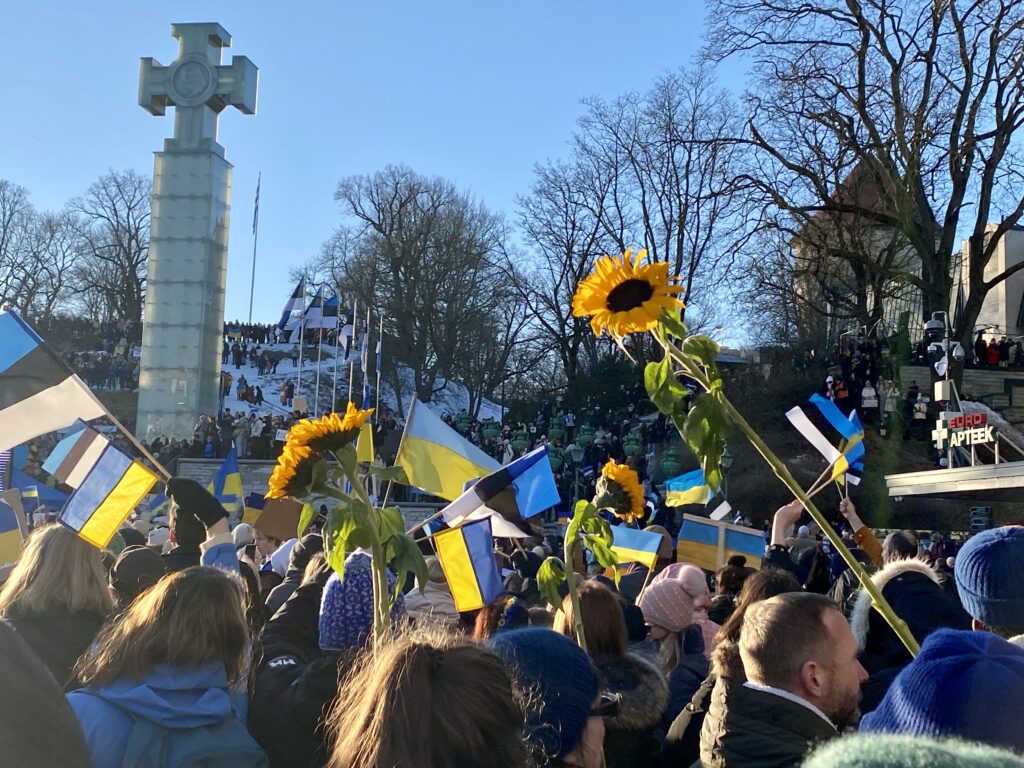31 March 2022 – Estonia seeks to outlaw public displays of symbols supporting Russian aggression
The Estonian government today approved and is submitting to the parliament amendments to the Penal Code in accordance with which the offensive use of antagonistic symbols will be classed as a punishable misdemeanour. Affiliating with, participating in or supporting crimes of aggression perpetrated by a foreign state, ie abetting Russia in the war in Ukraine will become an act punishable pursuant to criminal procedure.
Anyone convicted of the misdemeanour shall be subject to a fine or detention for displaying symbols used in committing an act of aggression, genocide, crimes against humanity or war crimes for the purpose of supporting or justifying those acts or intimidating, denigrating or otherwise significantly offending others. If the misdemeanour is committed by a legal entity, the fine will be up to €32,000, the government said in a statement.
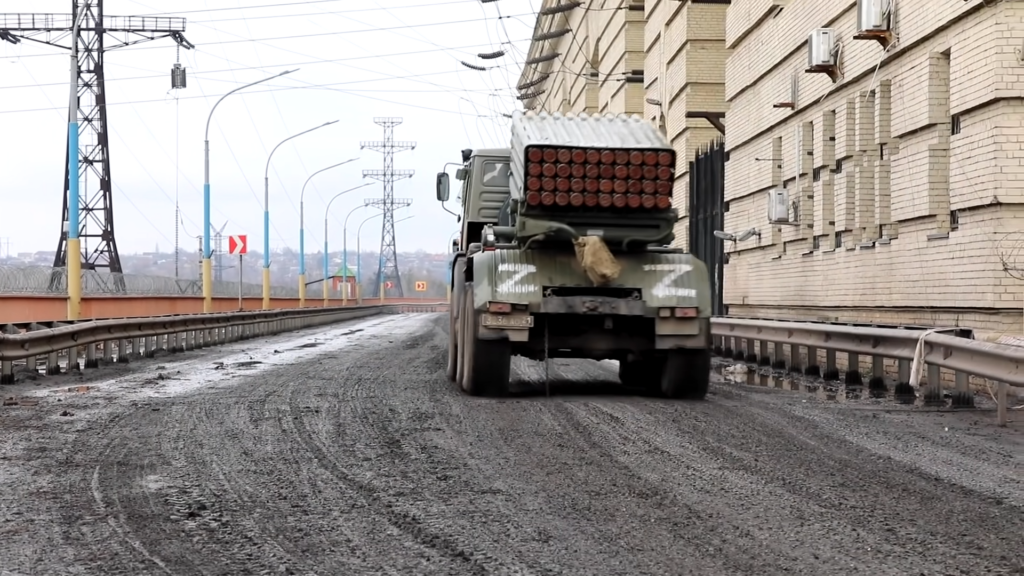
31 March 2022 – The foreign ministers of the NATO Eastern Flank discuss Russia’s war against Ukraine
Nine foreign ministers of the NATO Eastern Flank, including the Estonian foreign minister, Eva-Maria Liimets, met today in Bratislava, Slovakia, and discussed Russia’s military aggression in Ukraine, the future of NATO, including its new Strategic Concept and reinforcing the alliance’s defence and deterrence posture. They also spoke about how to continue and improve supporting Ukraine and make the cost of the aggression for Russia as severe as possible. Ukraine’s Foreign Minister Dmytro Kuleba attended the meeting via video.
At the discussion on NATO’s Strategic Concept, the foreign ministers emphasised that reinforcing collective defence was and remained the main task of NATO. At the same time, NATO must increasingly address new challenges when boosting collective defence, including China, emerging technologies, cyber and hybrid and the security impact of climate change.
The Bucharest Nine platform was launched in 2015 with the aim of holding discussions on security interests and informal consultations between its nine members – Estonia, Latvia, Lithuania, Bulgaria, Poland, Romania, Slovakia, the Czech Republic and Hungary. In addition to the nine Eastern Flank countries, NATO and the USA were also represented at the meeting.
30 March 2022 – Bank of Estonia: the Russian invasion of Ukraine will affect the Estonian economy
How the Estonian and global economies perform will for the time being be steered by Russia’s invasion of Ukraine and how the war progresses, according to the Bank of Estonia, the country’s central bank. “There is a lot of uncertainty about the forecast made under current conditions, as prices of commodities and the resolution of supply problems will depend very much on the progress of the war and the sanctions imposed by the West on Russia,” the bank said in its analysis.
“The Estonian economy will grow strongly this year by over 9% in euros at current prices, but the countereffect of inflation means real growth in the economy will probably be close to zero or even slightly negative. The Estonian economy had reached close to its limit of production capacity by the end of last year, and earlier forecasts already expected growth to slow sharply,” the bank noted.
“The changed geopolitical circumstances and their economic impact will darken the outlook even further, and for this year as a whole it is expected that growth will be zero or that the economy will shrink a little in size at constant prices, which show the nominal size of the economy minus inflation. The reason for growth stopping will be the fall in trade in goods, the decline in purchasing power because inflation is higher than expected, increased uncertainty, and the discontinuation of large one-off transactions.”
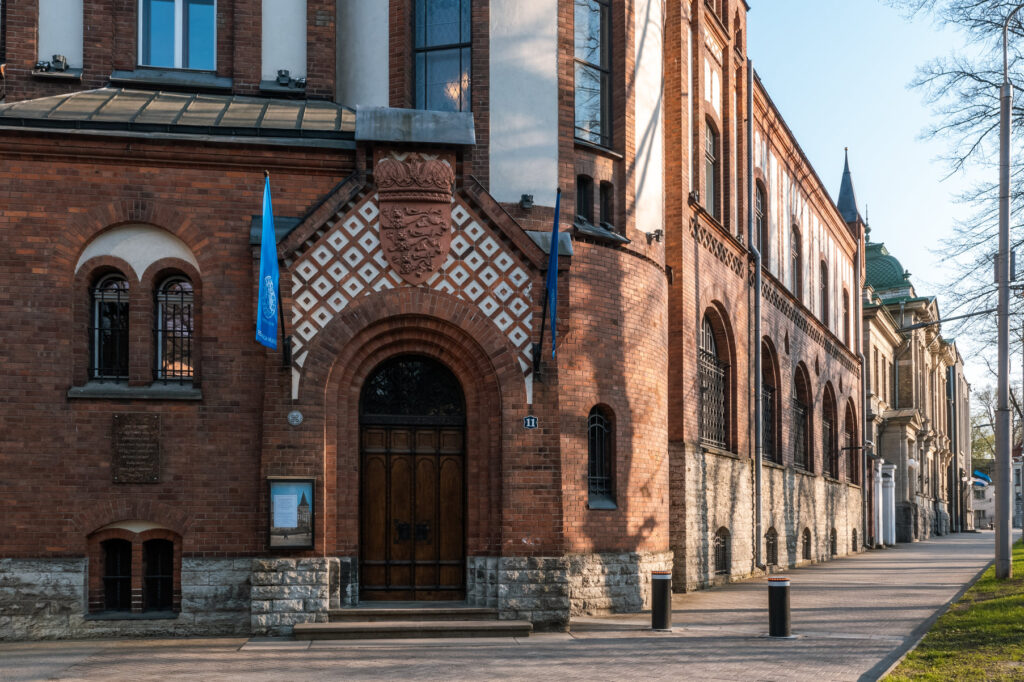
30 March 2022 – Danish PM Mette Frederiksen meets the Estonian PM Kallas in Tapa, Estonia
The prime minister of Denmark, Mette Frederiksen, visited Tapa-based Danish troops today and afterwards gave a joint press conference with her Estonian counterpart, Kaja Kallas. Approximately 200 Danish troops serve in the UK-led NATO battlegroup in Estonia. A day before, Frederiksen said Denmark was prepared to send additional 800 NATO troops to Baltic states.
The Estonian prime minister said at a press conference that two per cent of GDP on defence spending by NATO member states “must be the floor, not the ceiling”. In a reference to NATO’s protection of Estonia, Kallas called for more “credible defence on land, in air and at sea”.
“The current situation in our region is not sufficient in this regard. We must close the gap. We would need combat ready divisions supported by enablers to provide air defence, long range fires, and a command element. We must move from air-policing to air-defence. We need more NATO ships patrolling the Baltic Sea. To have peace, we have to prepare for war. Deterrence and defence are better and also cheaper than war,” Kallas said.
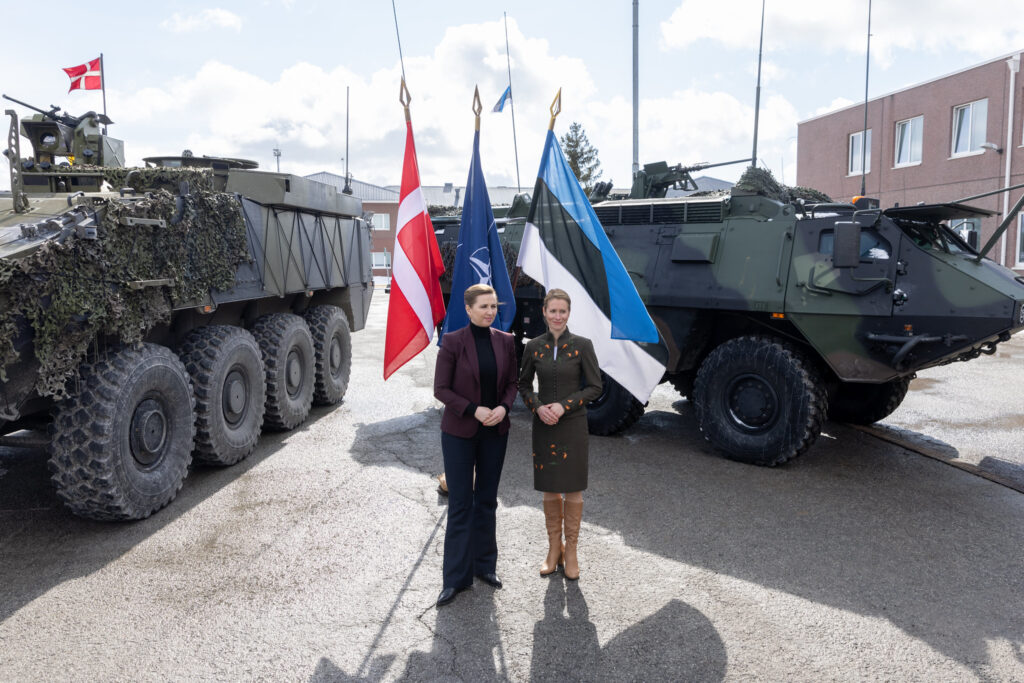
30 March 2022 – Almost 500 Ukrainian war refugees enter Estonia in one day
According to the Estonian Police and Border Guard Board, on Monday, 436 Ukrainian war refugees entered Estonia, of whom 119 were children. Of the arrived refugees, 108 were transiting, meaning they wanted to move on from Estonia. From 27 February onwards, Estonia has accepted 24,610 Ukrainian war refugees.
30 March 2022 – Estonian PM Kaja Kallas discussing the Russian invasion of Ukraine on CNN
29 March 2022 – Ukraine calls on Estonia to rename the street the Russian embassy is located in Tallinn
The Ukrainian foreign ministry is calling on Estonians to sign a petition that demands the stretch of Pikk Street in Tallinn where the Russian embassy is located to be renamed Ukraine Street. “It would be a symbolic show of support for the Ukrainian nation that is defending its independence against a war started by Russia,” the Ukrainian foreign ministry says.
The petition also mentions the countries who have renamed streets in honor of Ukraine – Albania has renamed the street where the Russian embassy is located Free Ukraine Street; Lithuania has renamed the street of the Russian embassy location Ukraine’s Heroes’ Street; Latvia has named the street Independent Ukraine Street; and Norway has renamed the plaza in front of the Russian embassy Ukraine Square.
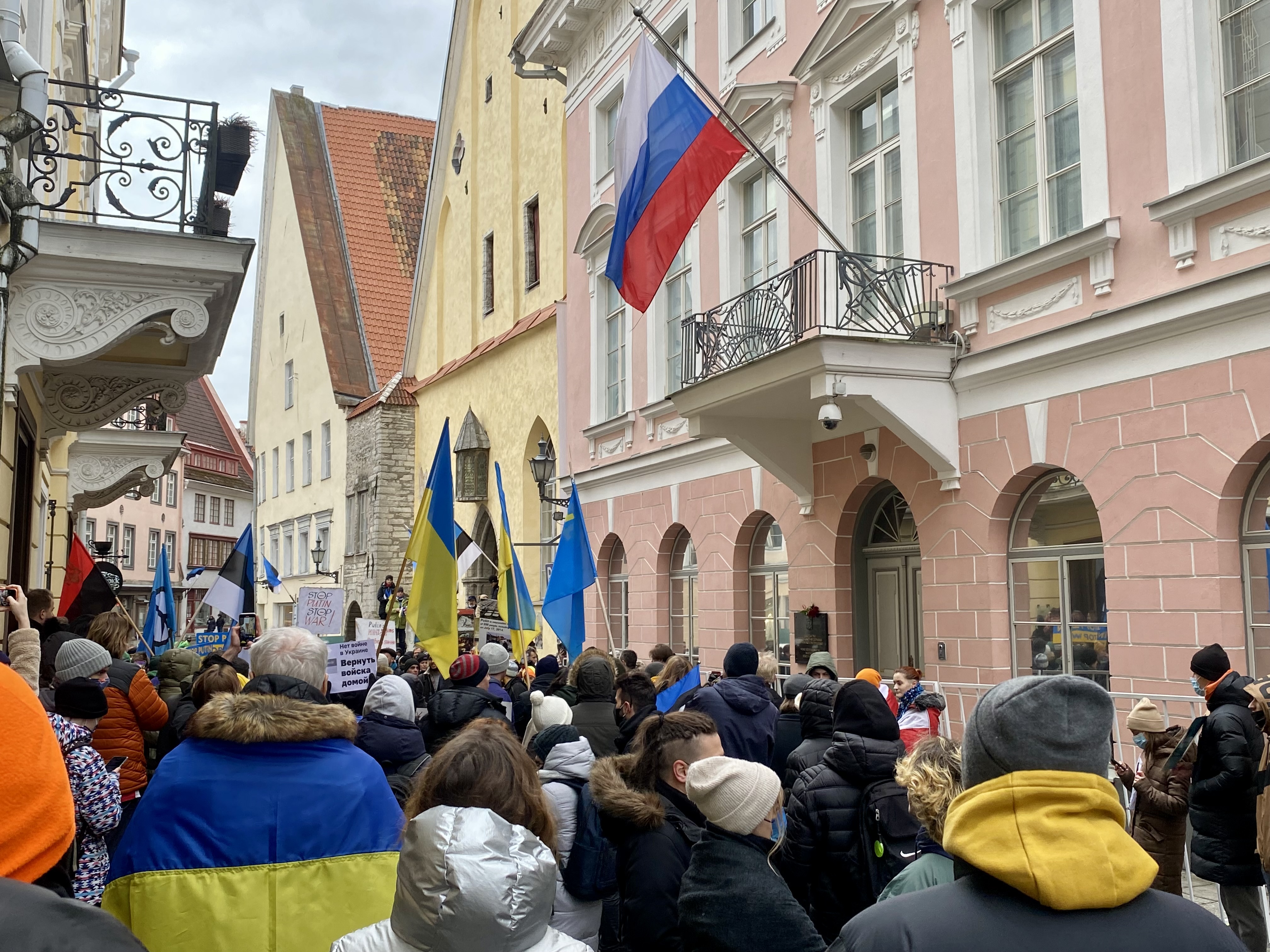
28 March 2022 – Estonian president in FT: Russia’s aggression threatens the entire democratic world
The Estonian president, Alar Karis, writes in an opinion piece in the Financial Times that the West needs to acknowledge that “Russia’s aggression threatens the entire democratic world, especially those countries that are closest to Russia. Let us acknowledge that Putin poses a military threat to us all.”
“The Russian-Georgian war in August 2008, when the Russian army invaded the Georgian cities of Gori and Poti just outside of South Ossetia, made the west flinch, but it was quickly forgotten. When countries on the eastern flank spoke of strengthening NATO’s defences, some dismissed this as tedious complaining. The wake-up call came as late as 2014, when Russia annexed Crimea and started lending military support to the separatists in eastern Ukraine. People started to realise that perhaps there was some truth in the warnings issued by Poland and the Baltic states,” the Estonian president said.
“The west’s deterrence failed in Ukraine. NATO must now be prepared for future threats. Let us acknowledge that Russia’s aggression threatens the entire democratic world, especially those countries that are closest to Russia. Let us acknowledge that Putin poses a military threat to us all.” Karis adds that there is only one answer to that: “[C]redible, visible and effective deterrence. Let us establish a strengthened and permanent allied presence in the countries on NATO’s eastern flank.”
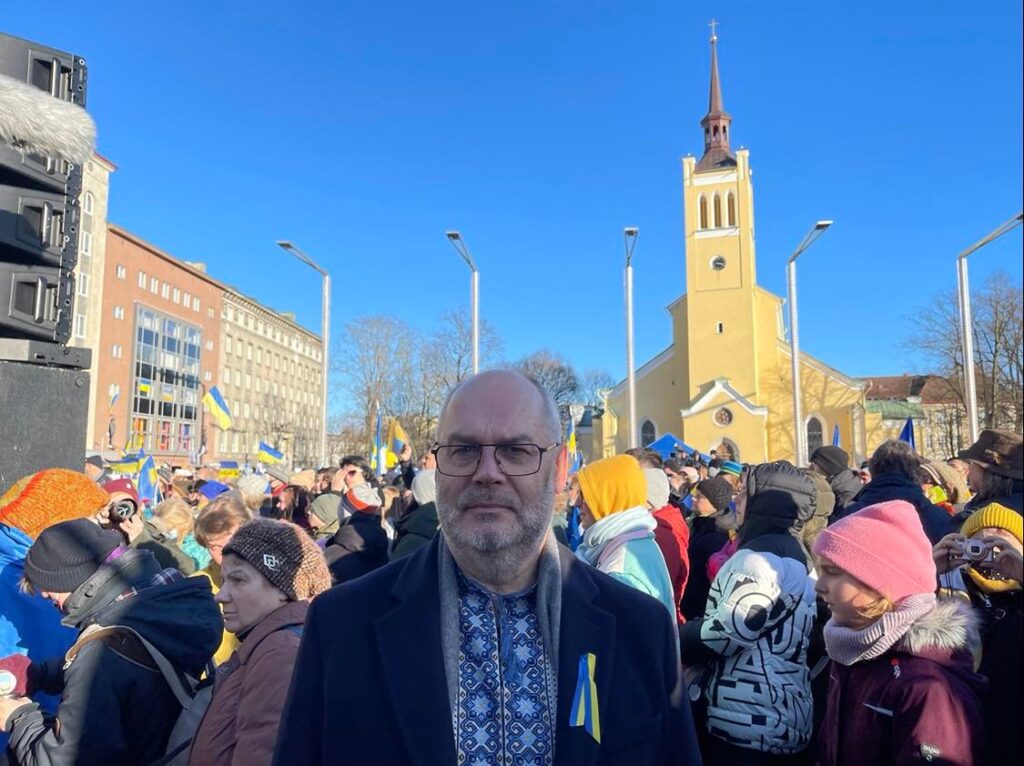
28 March 2022 – EU foreign affairs committee chairs call on increasing aid to Ukraine
The chairs of the foreign affairs committees of European parliaments made a joint statement in which they call on supporting Ukraine and helping the war refugees, and underline that all those responsible for the aggression must be brought to justice by international courts. The statement also appeals to the European Union to provide financial resources to support the countries which are taking in refugees from Ukraine.
In the statement, the chairs call on the authorities of the EU member states and NATO, “and all friendly countries that respect democracy, freedom and human rights, to introduce the strongest possible sanctions that will prevent the Russian Federation from continuing its war against Ukraine”.
The chairs of the foreign affairs committees also call on the EU to provide financial resources to support the countries which are taking in refugees from Ukraine. “Helping the victims of war is our duty, but it is also a huge challenge. We, therefore, appeal to the international community to show solidarity and provide all possible assistance to the refugees.”
28 March 2022 – Ivanna Klympush-Tsintsadze: Prosecute Putin
Ivanna Klympush-Tsintsadze, the chair of Ukraine’s Parliamentary Committee on Integration of Ukraine to the EU, calls for a revocation of Russia’s veto at the United Nations Security Council, followed by a special war-crimes tribunal to prosecute Putin and other culpable officials for the crimes against humanity that have become a staple of Russian policy in Ukraine.
28 March 2022 – Head of the Estonian Refugee Council: Ukrainians need money, not used stuff
Eero Janson, the head of the Estonian Refugee Council, said that what the people in Ukraine needed now, first and foremost, was money, not “our old stuff”. “Helping is a noble act, but it is important to do it in a systematic, meaningful way, based on common principles and in coordination with others,” he wrote in an opinion piece, published by the Estonian Public Broadcasting’s portal.
“For example, near the Medyka [Polish-Ukrainian] border crossing, where much of the crossing of people fleeing the war has taken place, the roads are lined with soaked piles of clothes, mixed with now-perished foodstuffs, children’s safety chairs, toys and everything else imaginable. In other words: aid has become rubbish.”
Janson said the international humanitarian system worked on a different basis. “Its focus is on needs-driven aid, efficiency, coordination and the involvement of those in need. For these reasons, the humanitarian sector has gradually moved away from the distribution of aid packages, replacing them as far as possible with ‘cash-based assistance‘.”
“As long as there is food available in Kyiv, Zaporizhzhia or Lviv, we should help the people there mainly with money, not with food parcels. Not to mention clothes, which are not in short supply in Ukraine for the most part,” Janson underlined.
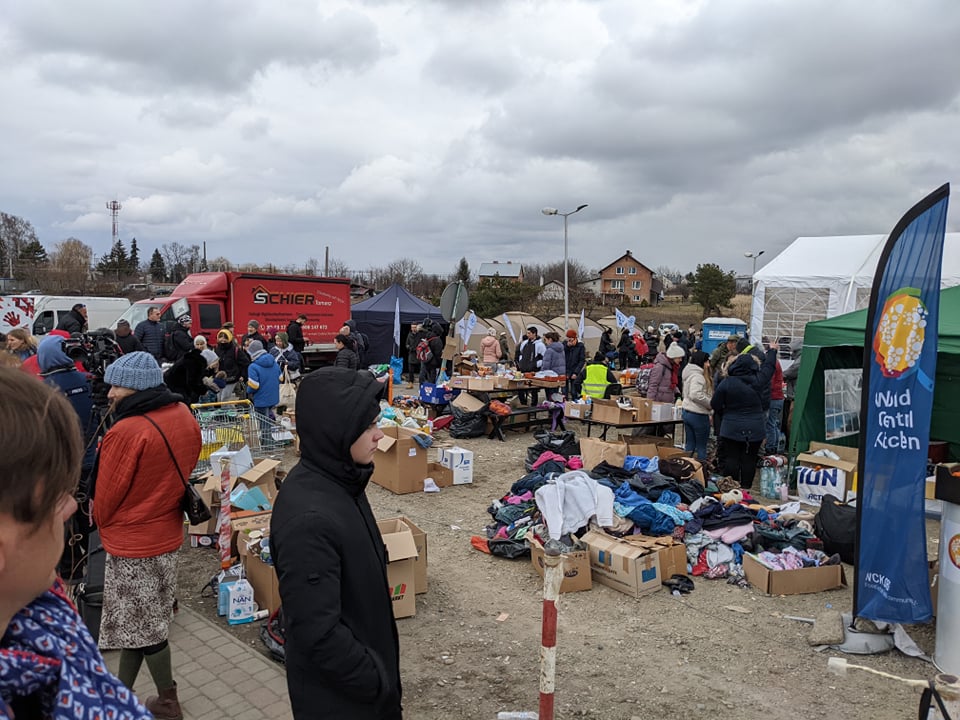
27 March 2022 – Interior minister: Russia’s intelligence has become more active in Estonia
The Estonian interior minister, Kristian Jaani, said in an interview with British newspaper The Times that the Russian intelligence services have become more active in their recruiting activities in Estonia. Jaani said that the Russian intelligence workers are putting in more efforts to create contact with Estonian people and the people who are entering Estonia to gain information that interests the intelligence services or recruit them. He also said the Russian intelligence services try to gain information about Estonian border security and how to covertly cross the border.

25 March 2022 – International charity concert in support of Ukraine to take place on 27 March
An international charity concert, “Save Ukraine – #StopWar”, organised by Ukrainian media companies, is to take place at 5:30 PM CEST (6:30 PM EEST) on Sunday, 27 March. Musicians, artists and civic activists from around the world will be supporting Ukraine during the two-hour broadcasting that will be rebroadcast by the TV channels, including the Estonian Television, from about 20 countries in Europe and the world, as well as by streaming platforms and social networks. Funds to address humanitarian issues caused by the Russian military invasion of Ukraine will be raised before, during and after the broadcasting.
The concert will be live streamed at Tallinn Freedom Square at 6:30 PM.
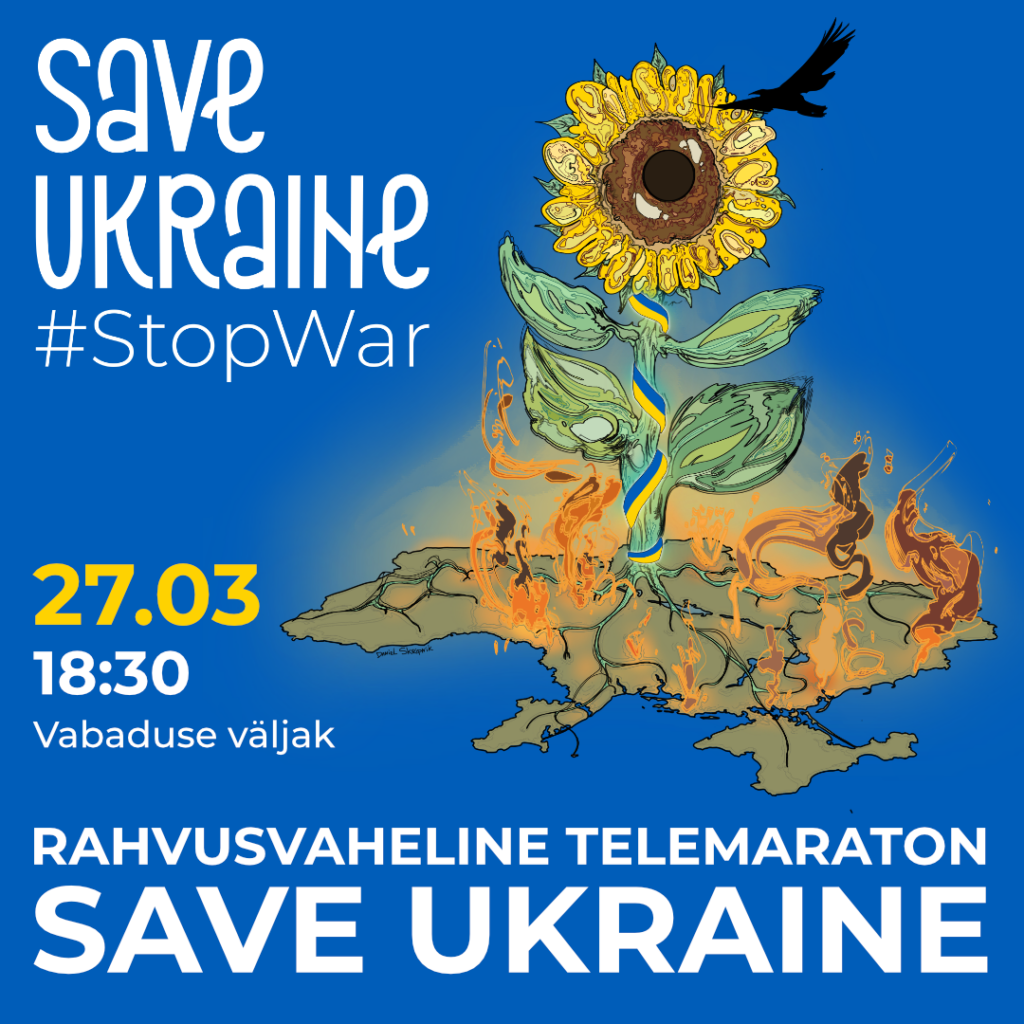
25 March 2022 – Estonian NGO calls on companies to donate to the Ukrainians
Estonian NGO Mondo is looking for companies who’d like to donate their products or sell them at net value to the Ukrainians. The NGO is also seeking companies who can provide transportation and storage services either for free or at a low price. Mondo says it’s particularly looking for foods with lengthy best before dates, hygiene products, solar energy products, water purifiers, sleeping bags and mattresses, generators and liquid containers and charging banks. In the first month of the war in Ukraine, Mondo has sent 90 tons of humanitarian aid to the country.
25 March 2022 – Foreign policy expert: “Signs of war-weariness in the West”
Kristi Raik, the director of the Estonian Foreign Policy Institute, told the country’s public broadcasting’s radio service that there are signs of weariness in the Western leaders’ attitudes to the Russian-initiated war in Ukraine.
“It seems to me that we have reached the point where the Western countries are beginning to tire of this war. Both the European Union and NATO took very strong decisions – the sanctions against Russia and the arms aid to Ukraine are unprecedentedly strong, but now we should move on from here, because this is not enough,” she said.
For the West, the most important thing is to end the war as soon as possible and return to normality, and to this end they are ready to look for different solutions, such as a truce to stop the fighting, Raik noted. But she added that for Ukraine, this is not good enough. “For Ukraine – and I would say for Estonia as well – the most important goal is to achieve an outcome where Russia is completely defeated and Ukraine’s territorial integrity and sovereignty are fully assured.”
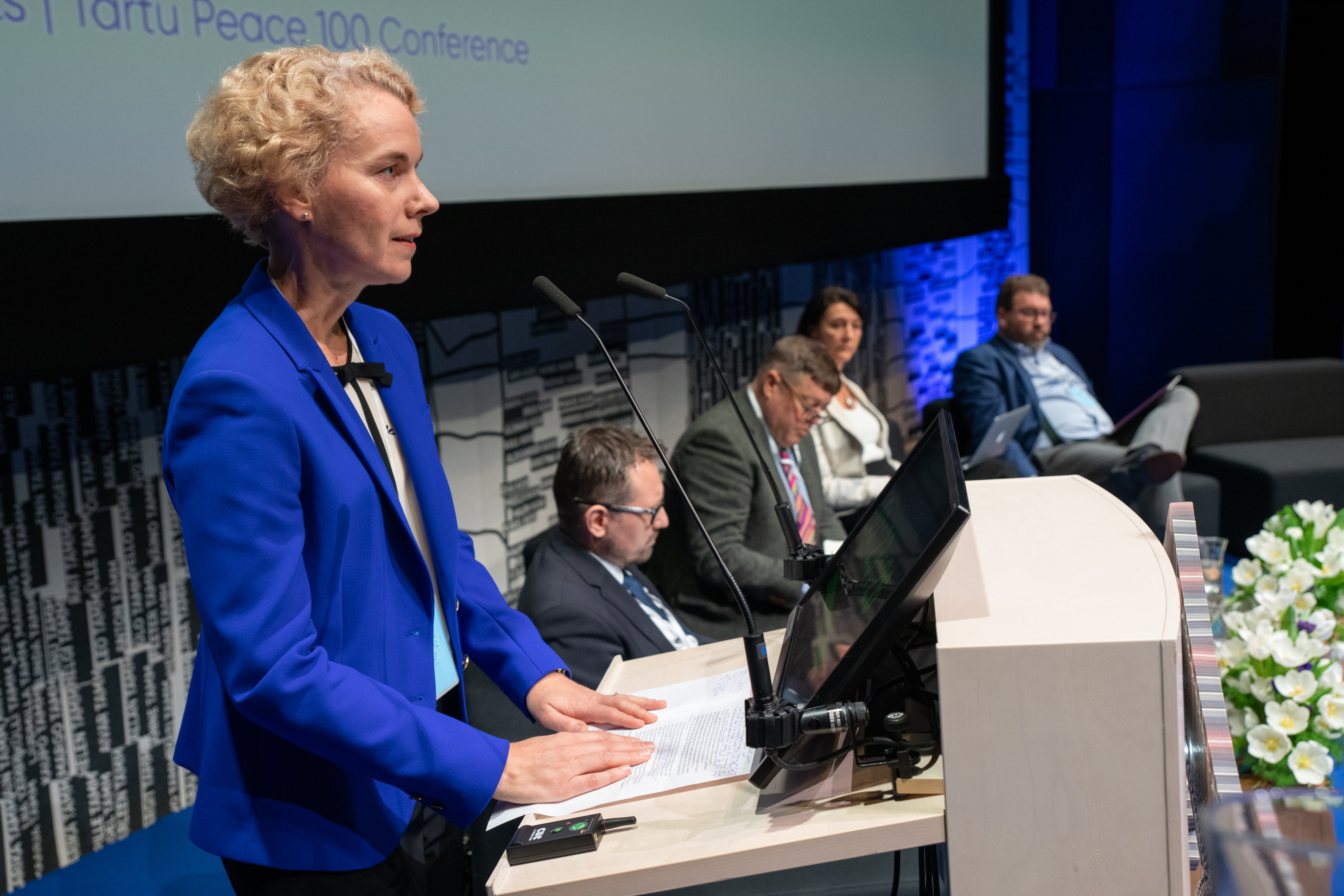
25 March 2022 – The victims of Soviet deportations remembered in Estonia
On 25 March 1949, twenty thousand men, women and children from Estonia were deported by the Soviets to Siberia. Nearly three per cent of the Estonian population were seized in a few days and dispatched to remote areas of Siberia. The two deportations that affected Estonia the most, on 14 June 1941 and 25 March 1949, are annually observed as days of mourning.
24 March 2022 – PM at NATO summit: Estonia needs a battle-ready division, air defences
The Estonian prime minister, Kaja Kallas, said at the NATO summit, held today in Brussels, that Estonia needs a full battle-ready NATO division in the country and stronger air defences. “The first goal of defence readiness is to avoid war and, if need be, to push back in case of any attempt to attack,” she said.
24 March 2022 – Defence ministry official: it’s getting more difficult to find solutions to help Ukraine
The chief of staff of the Estonian defence ministry, Kusti Salm, said on a programme on the Estonian Public Broadcasting that the Western countries have helped Ukraine as much as they can; however, it’s more difficult to find new solutions on how to arm Ukraine without Russia seeing it as direct involvement. Direct NATO involvement in the war, according to him, is not under discussion. Right now, the allies are discussing on how to make sure the war ends with Ukraine’s victory, not some suspicious peace deal, but the withdrawal of the Russian troops.
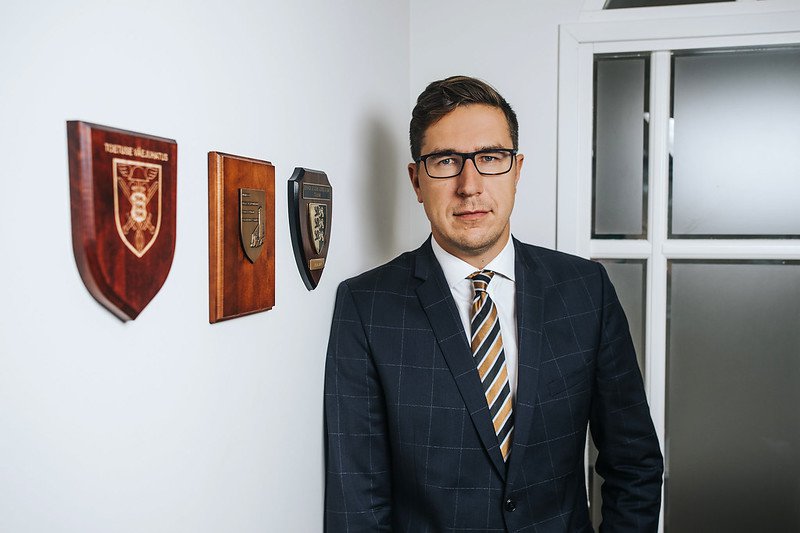
24 March 2022 – Estonia to allocate over €500 million for its defence capabilities
The Estonian government today decided to allocate a further €476 million for the reinforcement of the national defence of Estonia and €86 million for the capability of the society to cope in a crisis situation. This, along with the €380 million the government already extraordinarily allocated to national defence in January, will raise the level of the Estonian defence expenses to 2.5% of the GDP, on average, in the next four years.
24 March 2022 – The speakers of the Baltic parliaments visit Kyiv
Jüri Ratas, the speaker of the Estonian parliament, Riigikogu, and his Latvian and Lithuanian counterparts addressed the Ukrainian parliament, Verkhovna Rada, in Kyiv today. The speakers also met with the Ukrainian president, Volodymyr Zelenskyy, and the prime minister, Denys Shmyhal.
“International support to Ukraine is strong at present, but it needs to be upheld for a long period,” Ratas said in a statement. “First the war must be ended, Russian forces expelled, and the integrity of Ukraine restored. And then we need to rebuild the cities and towns crushed by the Russian forces.”
“Ukraine is also fighting to defend Europe as a whole, and our values. In the light of this, we should focus on supporting Ukraine in all areas possible, isolating Russia and raising the cost of the aggression,” the Estonian parliament speaker added. Ratas was accompanied on the visit by two Estonian MPs, Mati Raidma and Urmas Reinsalu.
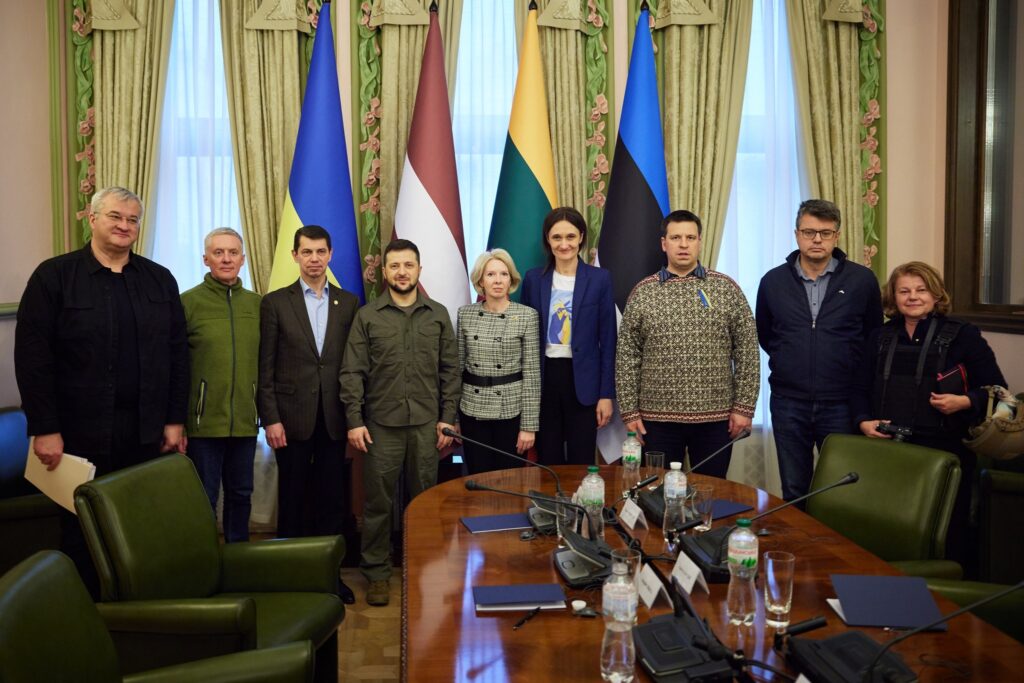
24 March 2022 – Education ministry opens an Ukrainian-language psychologists’ hotline
The Estonian education ministry, together with the Estonian Association of School Psychologists, has opened a free of charge Ukrainian-language school psychologists’ helpline with the aim to provide an easily accessible opportunity for educational staff, children as well as parents to talk to a qualified school psychologist in a comfortable and anonymous way. The helpline’s phone number is 1227 and it’s open to calls on Wednesdays 4PM to 8 PM, starting from 23 March.
23 March 2022 – Internal security: there is no fifth column in Estonia
The deputy chief of the Estonian Internal Security Service, Martin Arpo, said there was no fifth column in Estonia that would be a danger to the Estonian security. “There is no fifth column in Estonia in this sense. Yes, there are people who are Kremlin-minded. There are smaller groups. They don’t have any wider influence in the society,” he said on an Estonian Public Broadcasting’s radio programme.
He admitted that there had always been provocateurs who deserve surveillance, but there were no signs that their supporters’ numbers had grown. “It’s clear that in today’s situation, we have to look at their activities a little closer,” he said.
23 March 2022 – Almost 150 Estonian companies have trouble due to the war
Almost 150 Estonian companies are having trouble due to the war in Ukraine, according to Enterprise Estonia and Kredex, right now it’s not clear how many of them continue operating in Ukraine. Among the companies that have problems due to the war are rideshare company Bolt and IT firm Cybernetica.
23 March 2022 – Tallinn mayor: favouring war refugees can bring Russians’ disapproval and tensions
The mayor of Tallinn, Mihhail Kõlvart, said that Estonia’s Russophones may start feeling pushed aside in comparison how the Ukrainian war refugees are being treated and that might cause problems in the Estonian society, the Estonian Public Broadcasting reports. “These people (the Estonian Russophones – editor) have never gotten so much positive attention and attitude that the war refugees are getting, despite having lived here long and being loyal to the state. They might develop a certain feeling of jealousy,” Kõlvart said.
The mayor claimed that the Estonian Russians may see that Ukrainians are getting bigger treatment than the locals and that may cause bad feelings. According to him, that is the most noticeable on social media where people are expressing a lot of bad feelings and also anger. This may start growing as a snowball and turn the situation explosive, if it’s not being dealt with.
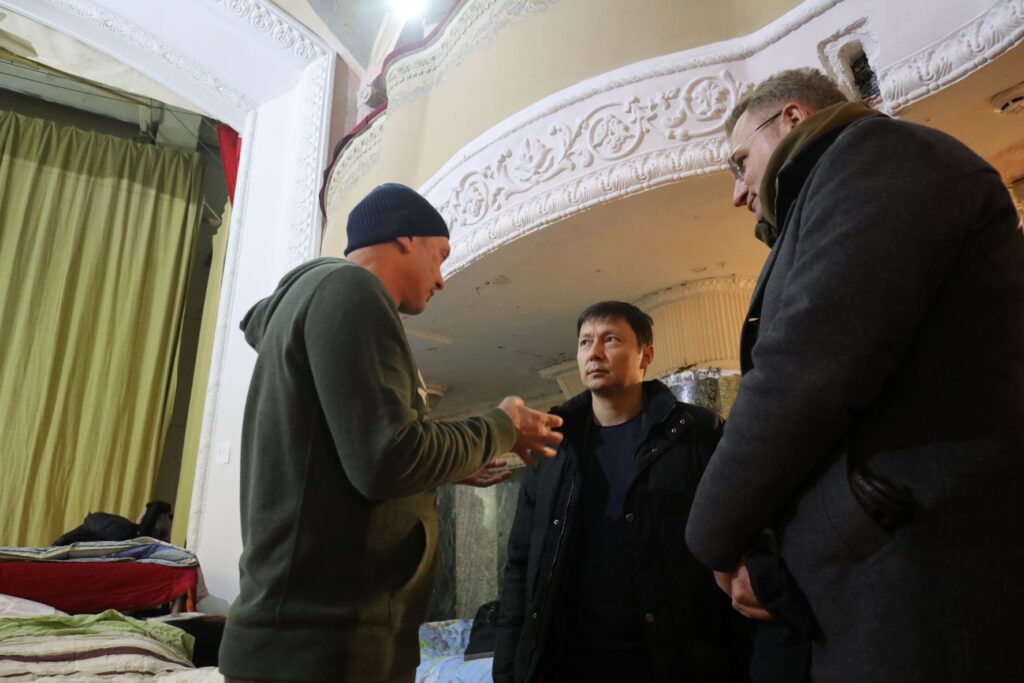
23 March 2022 – Ex-president Kaljulaid’s foundation collected €100,000 of donations for Ukraine’s media
The foundation of the former Estonian president, Kersti Kaljulaid, collected €100,000 of donations for the independent media in Ukraine; today, the foundation transferred the donation to the recipients.
In this round of donations, the ex-president’s foundation donated the collected money to media outlets Ukrainskaya Pravda and Novoye Vremya, that are among the Ukrainian media houses with the biggest following. They’re publishing newspapers, news portals, airing radio and TV stations, in both Ukrainian and English.
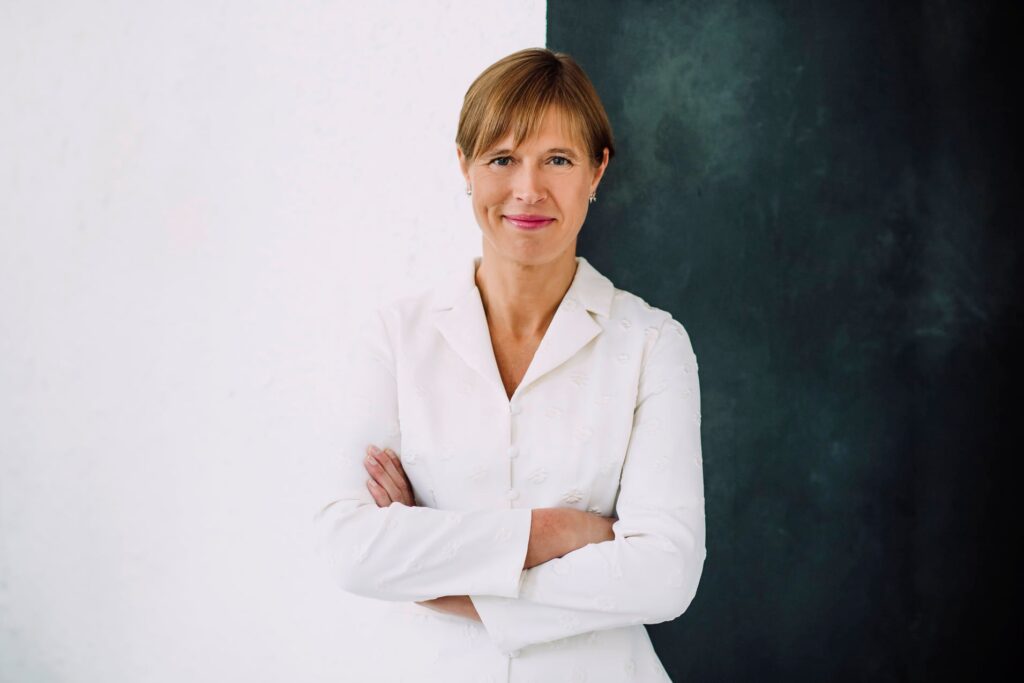
23 March 2022 – NYT: Israel refused to sell the Pegasus spyware tool to Estonia
According to the New York Times, the Israeli government refused to sell its powerful spyware tool, Pegasus, to Estonia and Ukraine, fearing that selling a cyberweapon to Russia’s enemies would damage Israel’s relationship with the Kremlin. Both Estonia and Ukraine had hoped to buy Pegasus to get access to Russian phones – the New York Times presumes it was a part of intelligence operations targeting “their increasingly menacing neighbor in the years before Russia carried out its invasion of Ukraine”.
The newspaper says Estonia started negotiations to buy Pegasus in 2018, and Israel at first authorised Estonia to have the system, “apparently unaware that Estonia planned to use the system to attack Russian phones”. Estonia even paid a down payment of USD30 million. In 2019, however, a senior Russian defence official notified Israel that Russia had learned of Estonia’s plan to use the software against Russia. The Israeli defence ministry then blocked Estonia from using the spyware.
Pegasus is spyware developed by the Israeli cyber-arms company NSO Group that can be covertly installed on mobile phones. As of 2022, it was capable of reading text messages, tracking calls, collecting passwords, location tracking, accessing the target device’s microphone and camera, and harvesting information from apps.

23 March 2022 – Moscow increasingly furious at Baltic responses to Putin’s war in Ukraine
It’s not uncommon for Moscow officials and news outlets to periodically attack the Baltic countries – Estonia, Latvia and Lithuania – for their supposed “mistreatment of ethnic Russians” and the failure of these NATO and EU member states to “adopt a pro-Russian position on key issues”; now, however, such attacks are becoming more frequent since Putin’s expanded invasion of Ukraine.
Few people residing in any of the Baltic countries support the crimes that Putin is committing, and they are making their feelings known in various ways. But Moscow’s heightened attention to this is worrisome because Estonia, Latvia and Lithuania are often listed as potential future targets for the Kremlin ruler.
23 March 2022 – The inventor of pravdamail.com: Our goal is peace in Ukraine and Europe
One of the Estonians behind the new service pravdamail.com – that lets you email random Russian email addresses to tell them what is happening in the war in Ukraine – told Estonian World that the goal of the service is peace in Ukraine and Europe.
A member of the Estonian tech community behind the pravdamail.com service, who spoke with Estonian World under the condition of anonymity, said they got the idea for the service through discussions and exchanges of ideas.
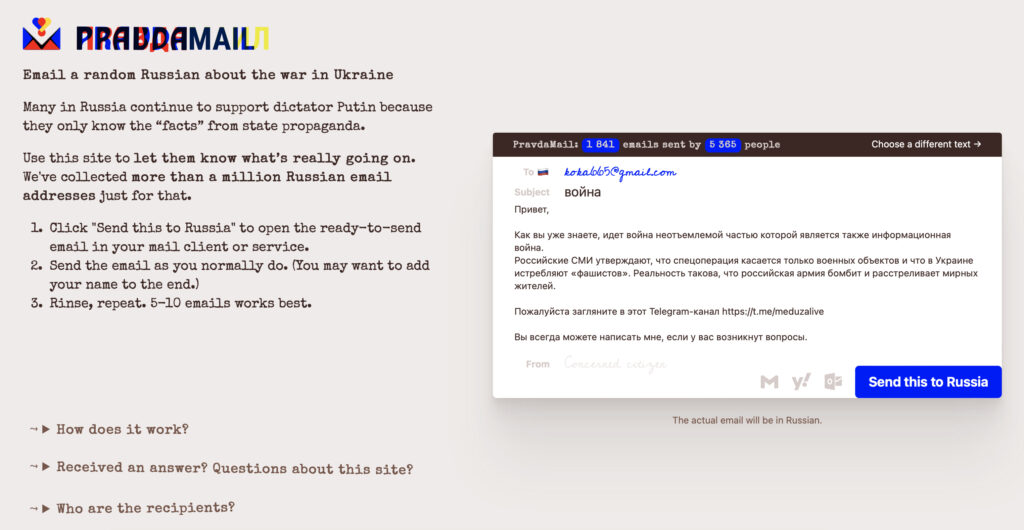
22 March 2022 – Defence chief: Estonia should develop short-range air and anti-tank defences
The Commander of the Estonian Defence Forces, Lieutenant Colonel Martin Herem, said that Estonia should develop short-range air and anti-tank defences rather than thinking about mid-range air defences, because that is cheaper and faster. However, if the country’s goal is a proper mid-range air defence capability, then the cost of that would be about €1 billion.
22 March 2022 – Estonian internal security: Russian students in the West make it more Russia-friendly
According to the vice chief of the Estonian Internal Security Service, Martin Arpo, Russia’s actions today show that students that have left Russia and gone to study and work in the West have made the Western countries naively Russia-friendly, and not made Russia friendlier towards the West. “We understand the good intentions of those who wish to divert Russia into a more democratic country, leaving Estonia open for Russian students and workers, but we don’t think this is adequate means of changing an aggressor country,” Arpo wrote on the internal security service’s website.
He also welcomes the decisions by the organisations that have stopped recruiting workers and students from Russia and Belarus – unless they’ve been granted international protection – leaving these places open for the Ukrainians who need help. “We regard this ethical, smart, thought-through and responsible. It’s part of the democratic world’s solidary reaction to the Russian aggressiveness and war crimes. Blocking entry to Estonia isn’t punishment, it’s a precautionary measure that derives from the state of international security and the society’s means to handle risks.”
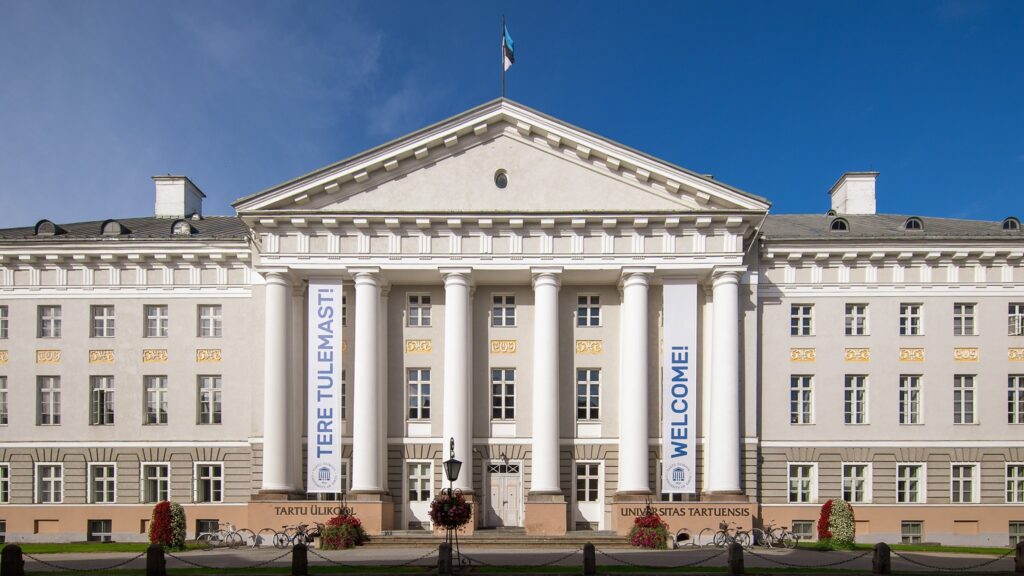
22 March 2022 – Seventy-nine per cent of the Estonian people support of accepting Ukrainian refugees
According to a recent poll commissioned by the Estonian government office, 79 per cent among those surveyed in Estonia are in favour of accepting refugees. The support among the ethnic Estonians is 92 per cent, while 51 per cent of people of other nationalities are in favour.
The poll also found that 89 per cent of ethnic Estonian respondents trust Estonian media coverage and two per cent trust Russian channels. However, among people of other nationalities, only 39 per cent trust Estonian media coverage of the war, while the Russian media is trusted by 27 per cent of the respondents (in February, 34 per cent trusted the Russian media).
Estonia’s biggest minority ethnic group are Russians – of whom approximately 320,000 live in the country.
22 March 2022 – Kaja Kallas: We need to keep providing critical military aid to Ukraine
The Estonian prime minister, Kaja Kallas, said that in order for NATO and the European Union to help Ukraine, we need to keep providing critical military aid to the country so that the Ukrainians can defend themselves and their freedom.
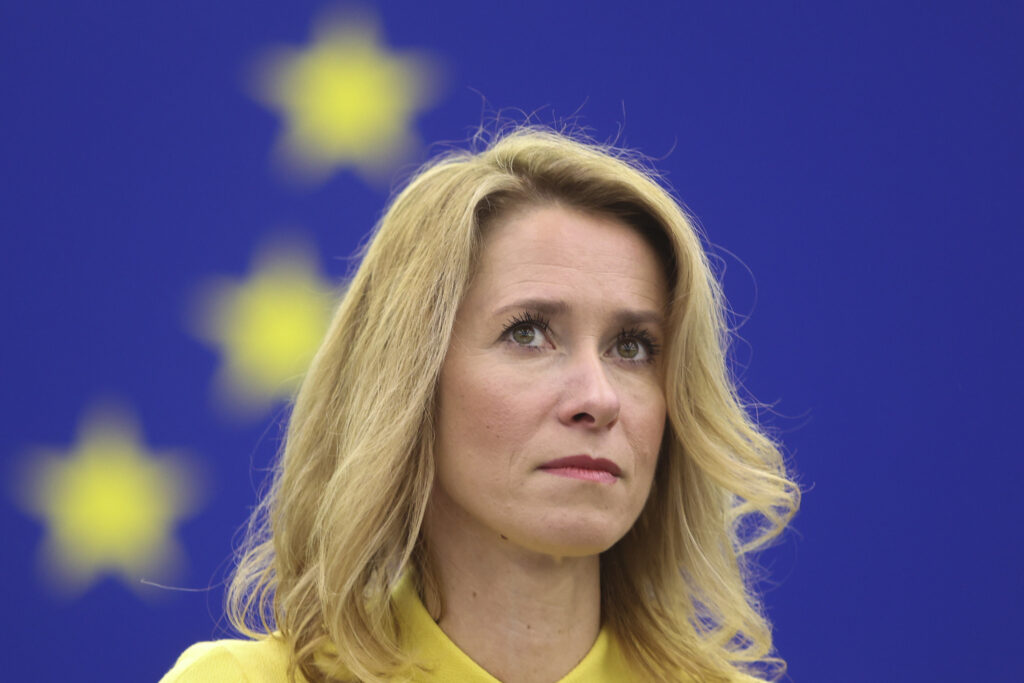
22 March 2022 – Anastasia Radina: Blacklist Putin’s terrorist state
The Ukrainian parliament’s committee on anti-corruption policy is calling on the G7’s Financial Action Task Force on Money Laundering to expel Russia and add it to the blacklist of high-risk jurisdictions, making international transactions with Russia impossible and crippling the country’s war engine, Anastasia Radina, the committee’s head, writes.
21 March 2022 – Estonia wants the EU to sanction Russian crypto currency
Estonia has suggested to the European Union to sanction Russia’s crypto currency. Estonia’s suggestion was to impose similar sanctions on the Russian crypto currency as have been imposed on its banks. Estonia also put out additional banks that should be sanctioned, but haven’t been yet.
The member states of the European Union today proposed additional sanctions against Russia. Now the European foreign service will compile them and see which proposals have the most support. Then the member states can decide on which additional sanctions to propose.
21 March 2022 – Estonian Defence Forces: Russia probably used thermobaric weapons as a demonstration of power
According to the intelligence centre of the Estonian Defence Forces, the Russian military used the thermobaric weapon – also known as aerosol bomb or vacuum bomb – in Ukraine as a demonstration of power and to gain battle experience. “At the same time, the general aerial activity of the Air Force of the Russian Federation has somewhat declined in the last two days,” the intelligence centre said.
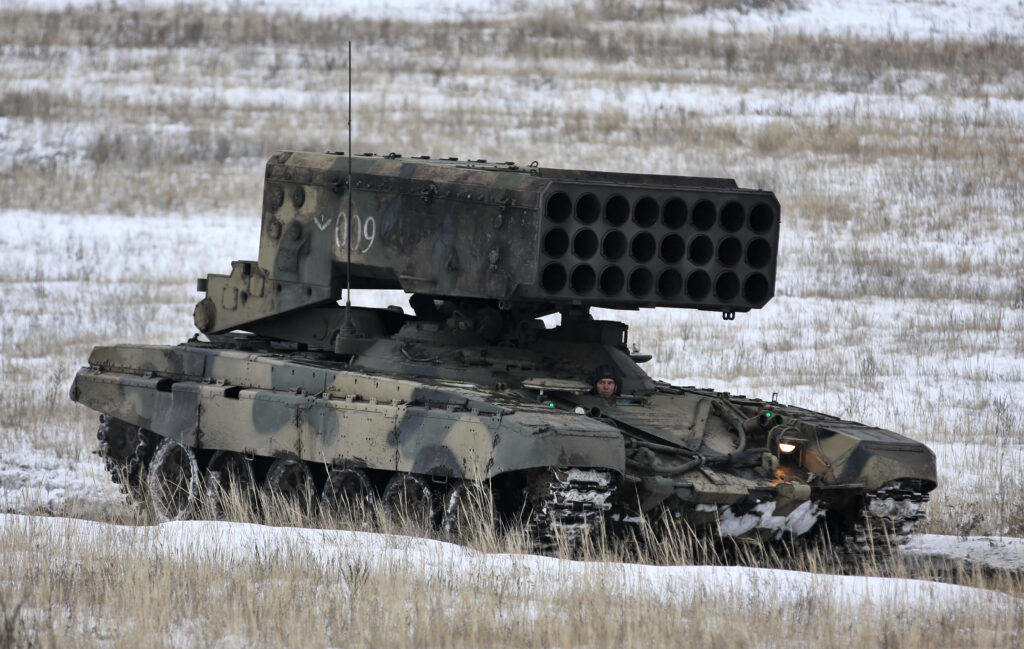
21 March 2022 – Over 21,000 Ukrainian refugees have arrived in Estonia
Estonia has received 21,014 Ukrainian refugees since 27 February. Over 5,600 of them are accommodated by the state and the country’s social ministry has announced it will temporary hire a cruise ship for the refugees. Estonia’s biggest shipping company, Tallink, told the public broadcasting that the company has proposed two of its ferries for the purpose.
21 March 2022 – Martin Herem: Putin is our problem, not the Ukrainian refugees
Lieutenant General Martin Herem, the Commander of the Estonian Defence Forces, writes that Russia is exploiting Ukrainian war refugees to make Western people worry about their own welfare and turn on the refugees, thus pressuring Ukraine into a deceitful peace.
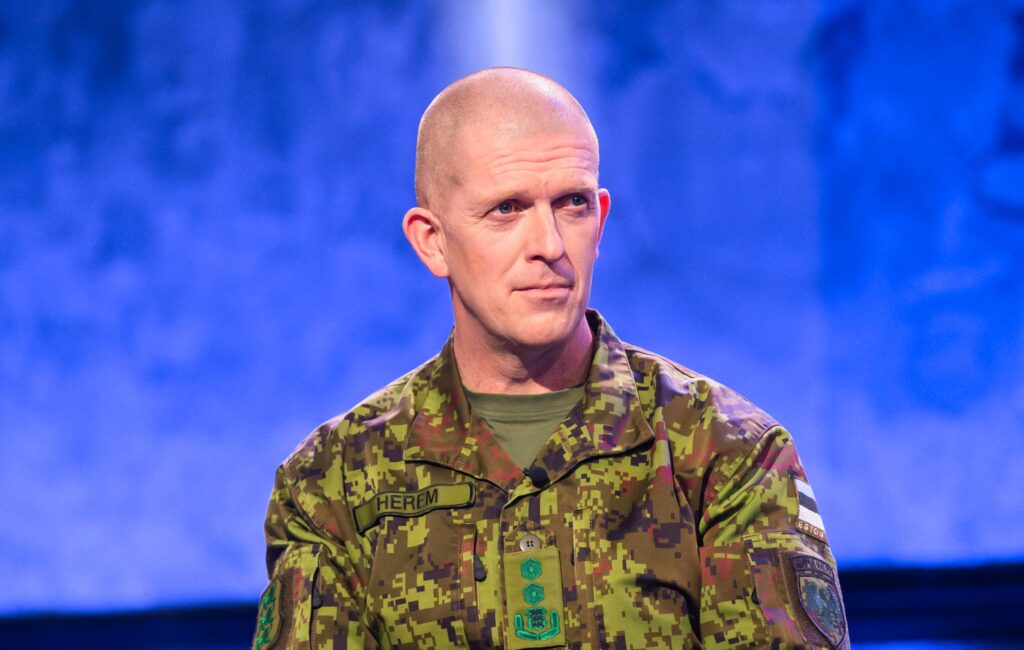
21 March 2022 – Just 40 Estonian citizens remain in Ukraine
According to the Estonian foreign ministry, 40 Estonian citizens are currently in Ukraine – 23 of them have notified that they “are not in a hurry to leave, are following the situation and waiting for a suitable moment to leave, while 14 people want to leave the country at the earliest opportunity”.
“We ask Estonian nationals currently in Ukraine to leave the country at the earliest opportunity and return to Estonia. Due to Russia’s military aggression, we advise against any travel to Ukraine,” the ministry said.
21 March 2022 – The Artis cinema in Tallinn welcomes arrivals from Ukraine free of charge
From today, the Artis cinema in at the Solaris centre in Tallinn is offering Ukrainian refugees the chance to visit the cinema for free. Free admission to screenings is on the basis of proof of Ukrainian citizenship and will be provided until 30 June. Tickets can be purchased at the cinema box office and must be accompanied by a biometric passport, other valid travel document or identity certificate issued by the Ukrainian embassy in Tallinn.
The films will be screened at Artis in their original language with subtitles in Estonian and Russian.
20 March 2022 – Pärnu to open a refugee acceptance centre
The southern Estonian town of Pärnu is set to open a centre for accepting the Ukrainian war refugees. The centre is located at the former police department building at Pikk Street 18. The war refugees arriving at the Ikla border crossing between Estonia and Latvia will be diverted to the refugee acceptance centre.
“We’ll do the COVID tests, we’ll talk, figure out what kind of social aid they need, if they need medical assistance. We’ll give them a personal identification code and temporary protection, should they wish so. And then we’ll send them to the local municipality that is ready to accept them and assist them further – to find them kindergartens, schools, medical aid, jobs,” the police chief of the Western Police Department, Kaido Kõplas, told the Estonian Public Broadcasting.
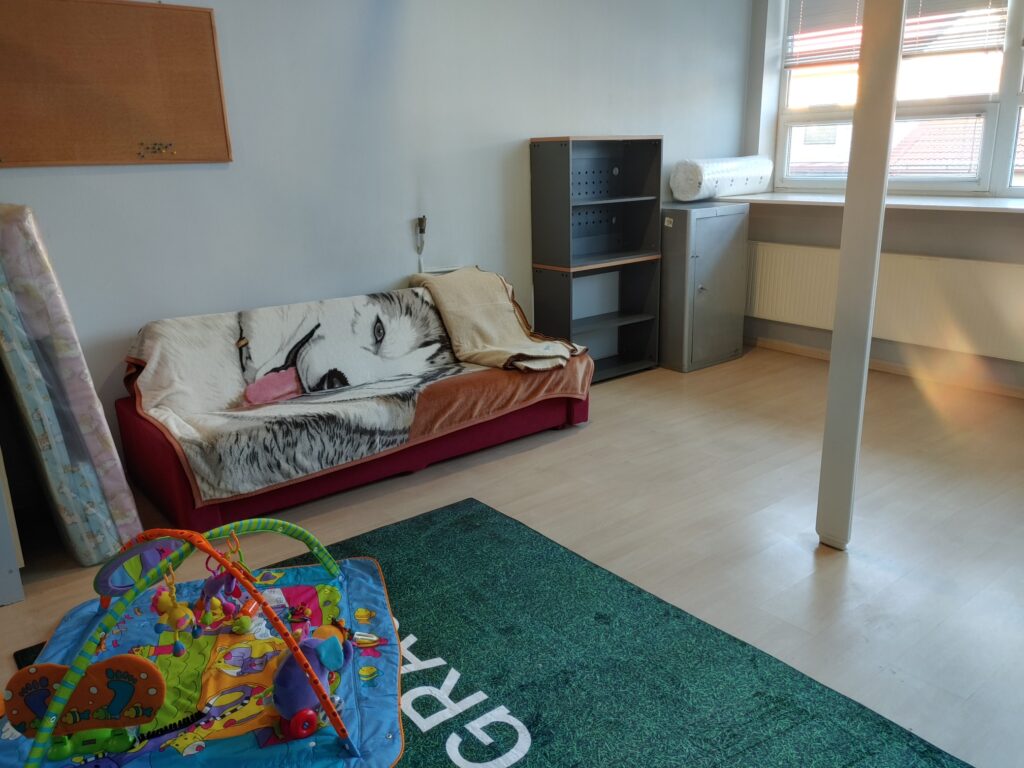
20 March 2022 – Estonian Rescue Department to come up with an evacuation plan
The Estonian Rescue Department, together with the local municipalities, are developing an evacuation plan for people in the case that an area is threatened to become inhabitable. “By the mid-year, we’re going to have an evacuation plan on how to evacuate tens of thousands of people in Estonia from one area to another. Once we’ve completed the plan, together with the local municipalities and the state authorities, then we definitely need to inform the people about it,” the deputy chief of the Rescue Department, Tauno Suurkivi, told the Estonian Public Broadcasting.
In addition, the Rescue Department is mapping the potential shelters in case there’s an immediate danger. At a Soviet-era shelter, right now there’s a movie archive. According to the Rescue Department, the potential shelters are unaccommodated and unmarked as of now and the people haven’t been informed on what to do should Estonia be the subject of a military attack.
19 March 2022 – Is Russia setting the agenda on Ukraine? With former Estonian president Toomas Hendrik Ilves
Russia’s war in Ukraine has challenged preconceptions in western Europe – and confirmed the views of many in Russia’s more immediate neighbourhood, including the Baltic states. The New Statesman’s Emily Tamkin is joined by former Estonian president Toomas Hendrik Ilves to discuss Europe and America’s response to the war so far and why Putin miscalculated the invasion.
19 March 2022 – Almost 20,000 Ukrainian war refugees have arrived in Estonia
As of yesterday, 19,628 Ukrainian war refugees had arrived in Estonia, according to the country’ Police and Border Guard Board. Only on Friday, 1,215 refugees made their way into the county, including 432 children. Of the newcomers, 340 were in Estonia temporarily and informed the authorities that they wished to move on.
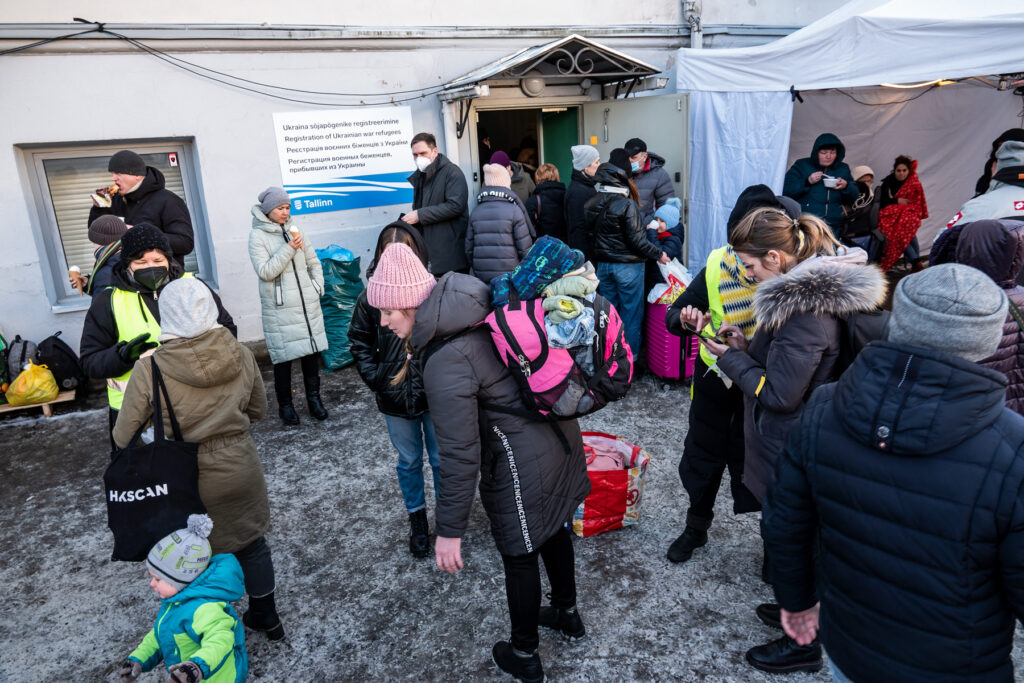
19 March 2022 – Political parties disagree on Russian citizens’ gun permits
The representatives of the Estonian political parties disagree on whether the state should suspend gun permits held by the Russian citizens living in Estonia. The Estonian Gun Owners’ Association had earlier proposed that the gun permits of foreigners living or having the right of residence in Estonia who hold citizenship of the Russian Federation and its allies should be suspended immediately.
The Estonian interior minister, Kristian Jaani (Centre) told the Estonian Public Broadcasting that the security threats stemming from gun owners should be analysed case by case. “The Weapons Act doesn’t foresee declining gun permits based on citizenship,” he said. He also pointed out that as of 11 March, Estonia had issued over 25,000 gun permits, just 627 of them to Russian citizens. The chairman of the Centre Party’s parliamentary group, Jaanus Karilaid, said he supported the minister’s statement.
The chairman of the populist Estonian Conservative People’s Party parliamentary group, Anti Poolamets, told the public broadcasting that the gun permits issued to Russian citizens should be suspended. A member of the Isamaa party, Tarmo Kruusimäe MP, seconded Poolamets, saying that Russia is an aggressor state and the citizens of an aggressor state are a direct security threat if they’re in possession of firearms.
The chairman of the Social Democrats, Lauri Läänemets told the public broadcasting that the perquisite of getting a gun permit shouldn’t be citizenship, but loyalty to the Estonian state. The chairman of the Estonian Reform Party parliamentary group, Mart Võrklaev, said they’re discussing the issue with the justice ministry and law enforcement on whether the current system needs a revamp and if so, how it can be done.
18 March 2022 – Unions: Ukrainian refugees are offered four times lower salaries than Estonians
The Confederation of Estonian Trade Unions says it’s got many signals that the Ukrainian refugees are offered work for four times lower salaries than Estonians are paid. The confederation says that doing so would contradict the Equal Treatment Act, hurt the interests of both the refugees and the locals, and go against equal competition, according to Postimees, an Estonian newspaper.
At the same time, Eesti Päevaleht, another Estonian newspaper, reports that the Confido medical centre held an information event for doctors and nurses who have escaped Ukraine, and even though the Ukrainian medics’ interest was great, some were offended by the offered salaries – Confido is reportedly offering Ukrainian doctors €1,000 a month (40% less than the Estonian minimum for doctors) and nurses €800 a month (53% of the minimum).

18 March 2022 – Estonian general: The more Russia wears itself out, the earlier it will give up the attack
Estonian Brigadier General Vahur Karus says that the more Russia wears itself out, the earlier it is forced to give up its attack on Ukraine. “I think the Ukrainians are very resilient. As long as we can support them with humanitarian aid and weapons, Ukraine will fight for a long time,” he told Delfi.
18 March 2022 – Oleg Ustenko: Boycott Russian energy now
Policymakers and the public can either boycott Russian energy fully today, to stop the invasion immediately; or they can watch Russian forces commit one outrage after another – every day moving closer to the territory of the EU, writes Oleg Ustenko, an economic adviser to the Ukrainian president, Volodymyr Zelensky.
18 March 2022 – Estonia expels three Russian diplomats
The Estonian foreign ministry today summoned the Russian ambassador to the country and handed over a diplomatic note stating that three staff members with diplomatic status of the Russian Embassy have been declared persona non grata.
According to the foreign ministry, the activity of the people in question has been in violation of the Vienna Convention on Diplomatic Relations, and therefore they must leave Estonia within 72 hours. All three have directly and actively undermined Estonia’s security and spread propaganda justifying Russia’s military action, the foreign ministry said.
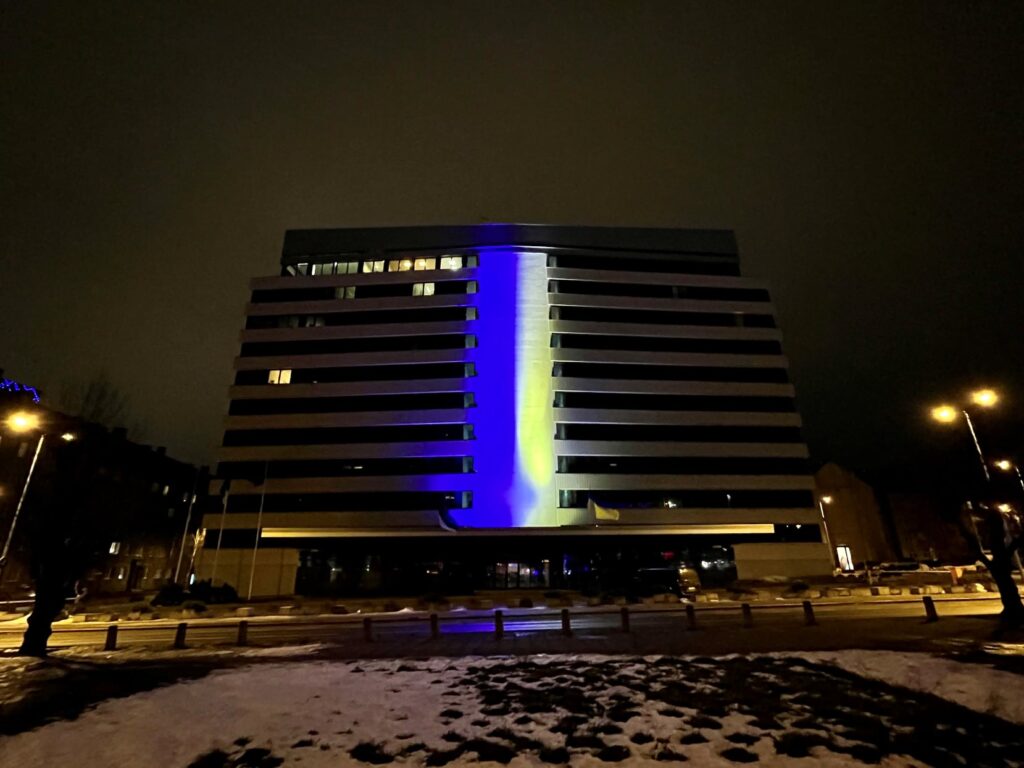
18 March 2022 – The Royal Welsh battalion to lead NATO battlegroup in Estonia
The British Army’s Royal Welsh battalion has taken over as the lead unit of the NATO battlegroup in Estonia. The formal ceremony was held today in Tapa military base, Estonia. The British battalion will lead the 1,700-strong NATO battlegroup that also includes French and Danish troops.
18 March 2022 – Tallinn sends aid to Lviv in Ukraine
A humanitarian aid shipment from the Estonian capital, Tallinn, is due to arrive in Lviv in western Ukraine in the coming days. The aid consignment for Lviv consists of 33 pallets, mainly containing non-perishable food and hygiene items: tinned fish and meat, biscuits and sweets, tea and coffee, shampoos, shower gels, napkins, soaps, sanitary towels, toothpastes and toothbrushes. In addition, blankets, pillows, bed linen and washing powder are also included.
Mihhail Kõlvart, the mayor of Tallinn, visited Lviv on 17 March to meet with the city government and to learn about the situation of refugees. “At the moment, Ukrainian city leaders need humanitarian aid to cope with the influx of refugees, but they also need moral support from their European counterparts,” Kõlvart said in a statement.
On 15 March, Tallinn also sent a trailer truck, containing more than 50,000 items of food supplies and essentials, for the people of Kyiv. The consignment is being delivered by a Ukrainian driver, who claimed to stay in Kyiv to defend his country after the delivery.
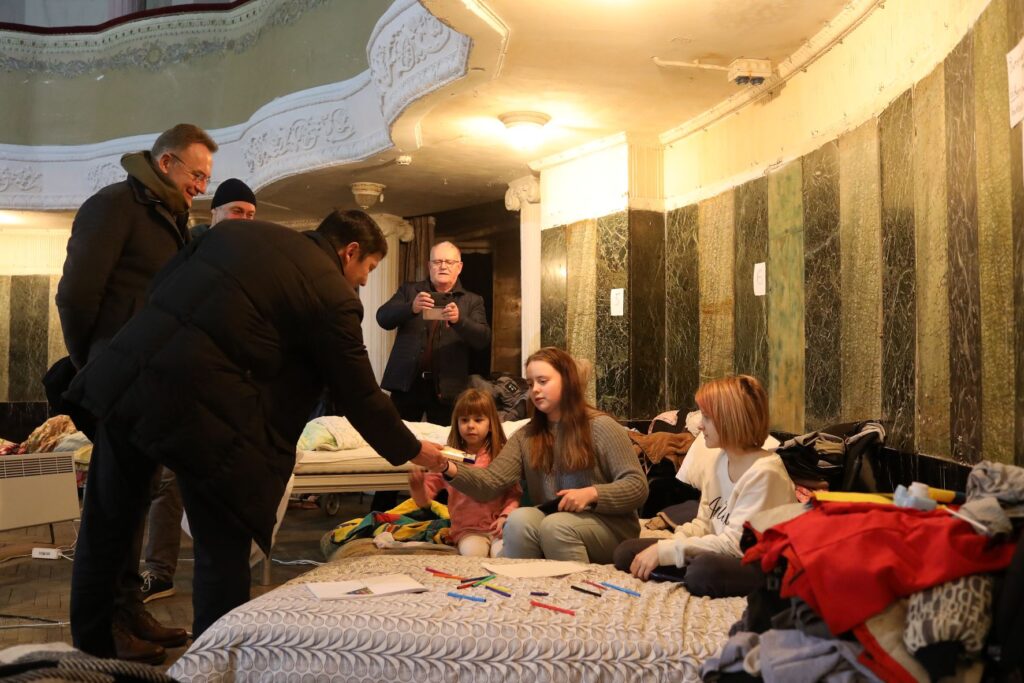
17 March 2022 – Estonia’s religious leaders: We condemn Russia’s military action in Ukraine
The Estonian Council of Churches and the leaders of member churches, including Eugene, the head of the Estonian Orthodox Church of the Moscow Patriarchate, issued a statement regarding the Russian invasion of Ukraine and the reception of war refugees in Estonia.
17 March 2022 – Estonia has contributed €220 million worth of aid to Ukraine
So far, Estonia has contributed €220 million worth of aid to Ukraine, the lion’s share of which is military aid, but the country has also sent medical and humanitarian aid, according to the Estonian defence ministry. Estonia has sent an undisclosed number of Javelin anti-tank missiles to Ukraine as well as Soviet-made 122-mm howitzer D-30s.
Manufactured by US weapons manufacturers Raytheon and Lockheed Martin, the Javelin costs roughly about €160,000, including the launch system and missile. Each replacement missile costs around €70,000.
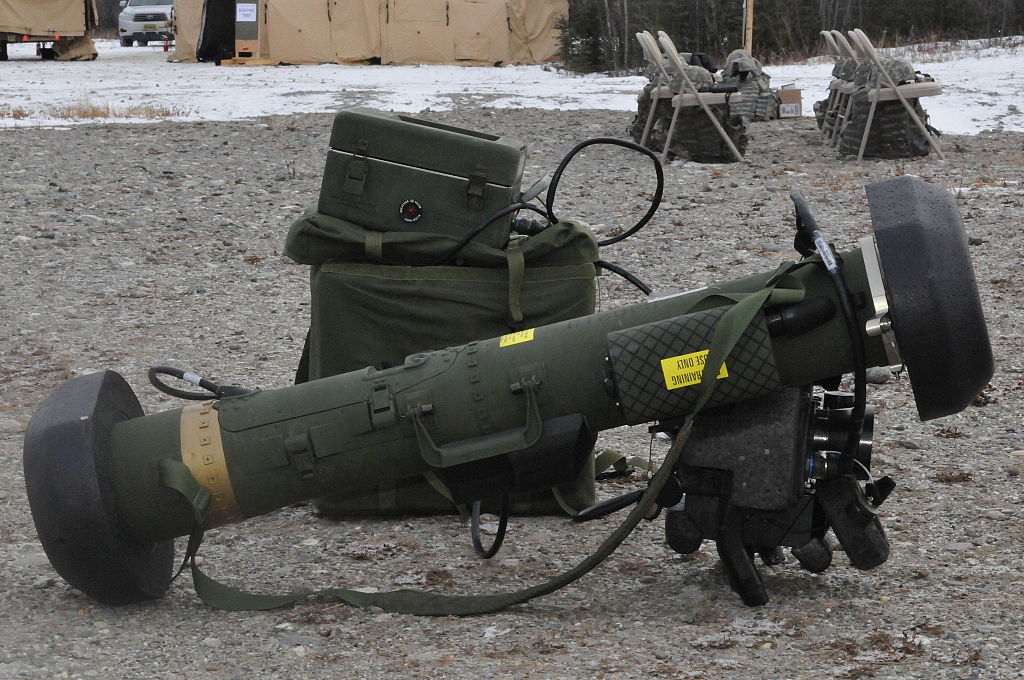
17 March 2022 – Estonia to provide an emergency aid of €100,000 to Moldova to help Ukrainian war refugees
The Estonian foreign ministry has made an emergency allocation of €100,000 to Moldova to support the relief of Ukrainian refugees, both in terms of accommodation and other necessary assistance, and to contribute to the functioning of Moldovan society.
“Due to Russia’s war in Ukraine, more than three million people have been forced to leave their homes. Ukraine’s neighbours, in particular Moldova, that has received more refugees per capita than any other country, have come under severe pressure,” the Estonian foreign minister, Eva-Maria Liimets, said in a statement.
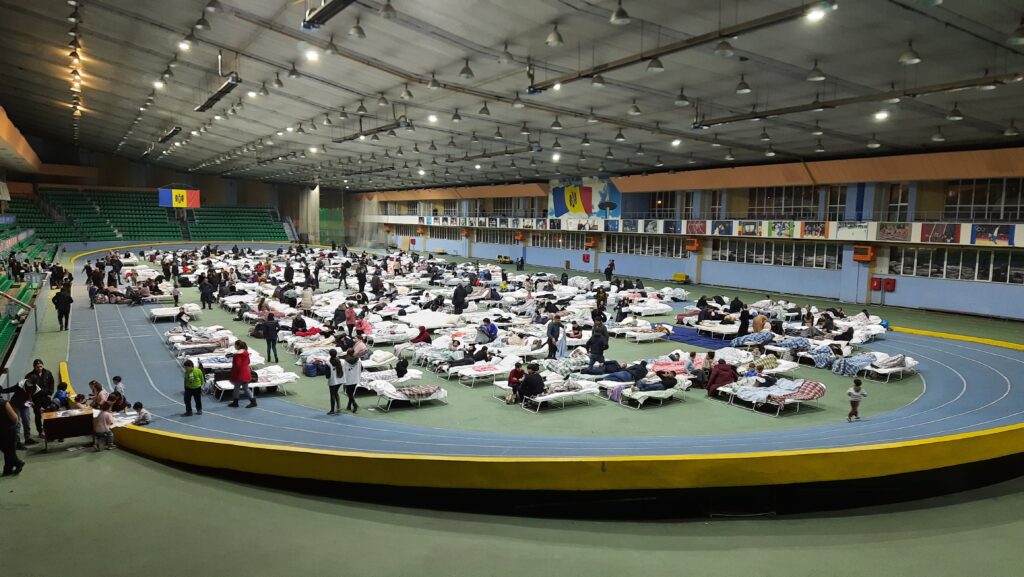
17 March 2022 – Defence minister: Estonia asks NATO for a substantial strengthening of the Eastern flank
The Estonian defence minister, Kalle Laanet, attended yesterday’s meeting of NATO defence ministers at the alliance’s headquarters in Brussels, where the situation in Ukraine and further options for supporting Ukraine were discussed. “Estonia’s message at the NATO table is to significantly strengthen the alliance’s eastern flank, which also means increasing the troops and capabilities stationed in Estonia,” Laanet said in a statement.
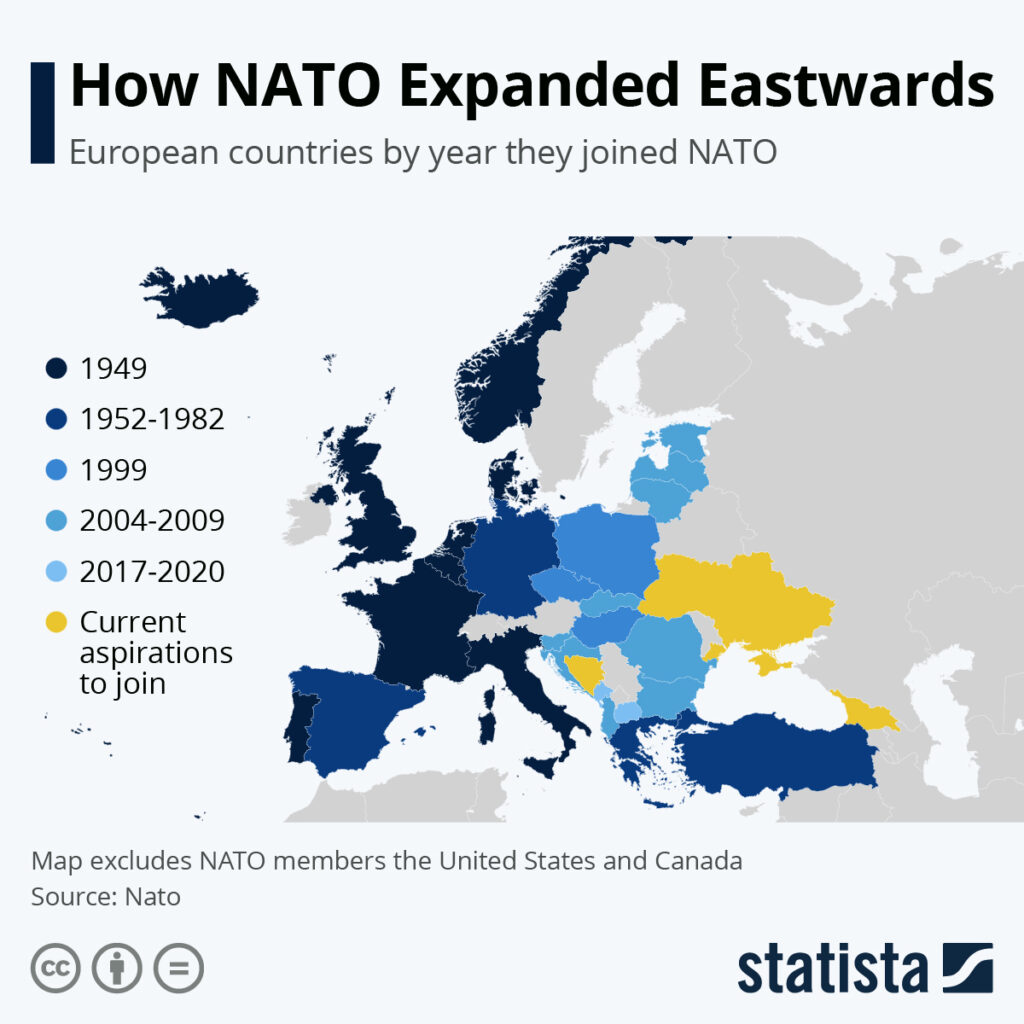
17 March 2022 – The US increases security assistance to the Baltic states
The United States Congress has passed a USD 1.5 trillion budget package that includes USD 180 million in security assistance for Estonia, Latvia and Lithuania in 2022.
16 March 2022 – Estonians donate almost €700,000 in support of Ukraine
During a charity concert today in Tallinn today, Estonians donated over €690,000 in support of Ukraine – which is over twice as much as the organisers had hoped. The concert took place in cooperation of the Estonian musicians and volunteers who all want to help the Ukrainians suffering due to the Russian unprovoked war in the country.
The organisers hoped the Estonian people would donate €300,000 to buy ten ambulances for Ukraine. For the €690,000, they can now donate Ukraine 23 ambulances.
The Estonian president, Alar Karis, gave a speech at a concert, where he said that the missiles falling on Ukrainian cities are falling on every city in Europe and that all of Europe is at war, fighting against the aggressor and for peace.
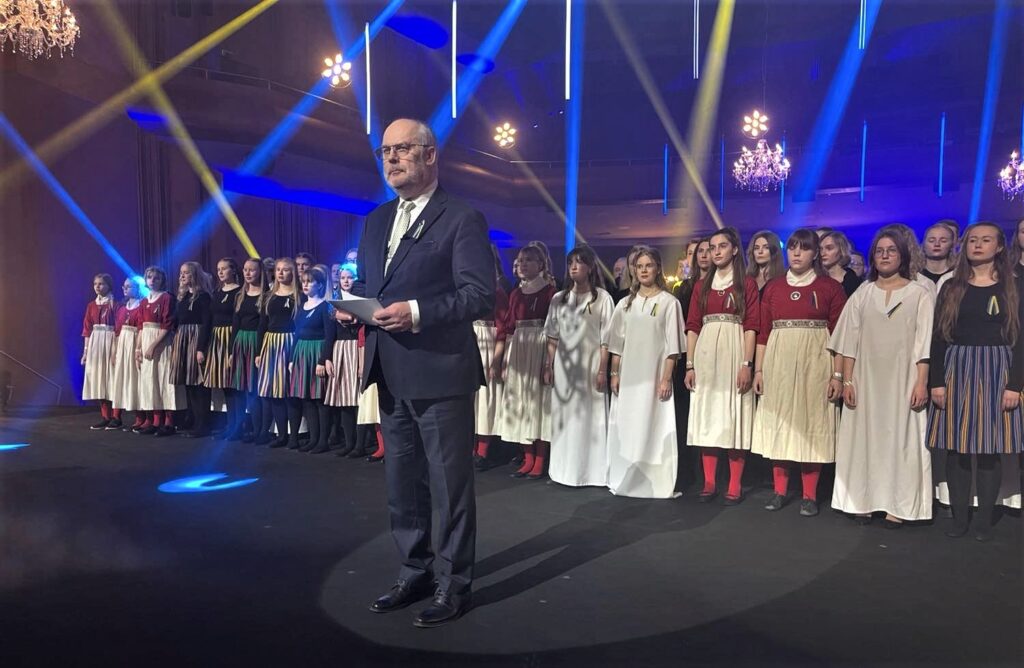
16 March 2022 – Tallinn offers Ukrainian children education opportunities
The Estonian capital, Tallinn, is ready to offer children and youth who have fled the war in Ukraine the opportunity to continue their education in primary, general and vocational education. In order to get a place in a Tallinn municipal kindergarten or school, people from Ukraine must register their wish at the Niine 2 reception centre and apply for temporary protection, after which the Tallinn Education Department will contact the families. The Education Department also holds information sessions for Ukrainian families staying in the accommodation.
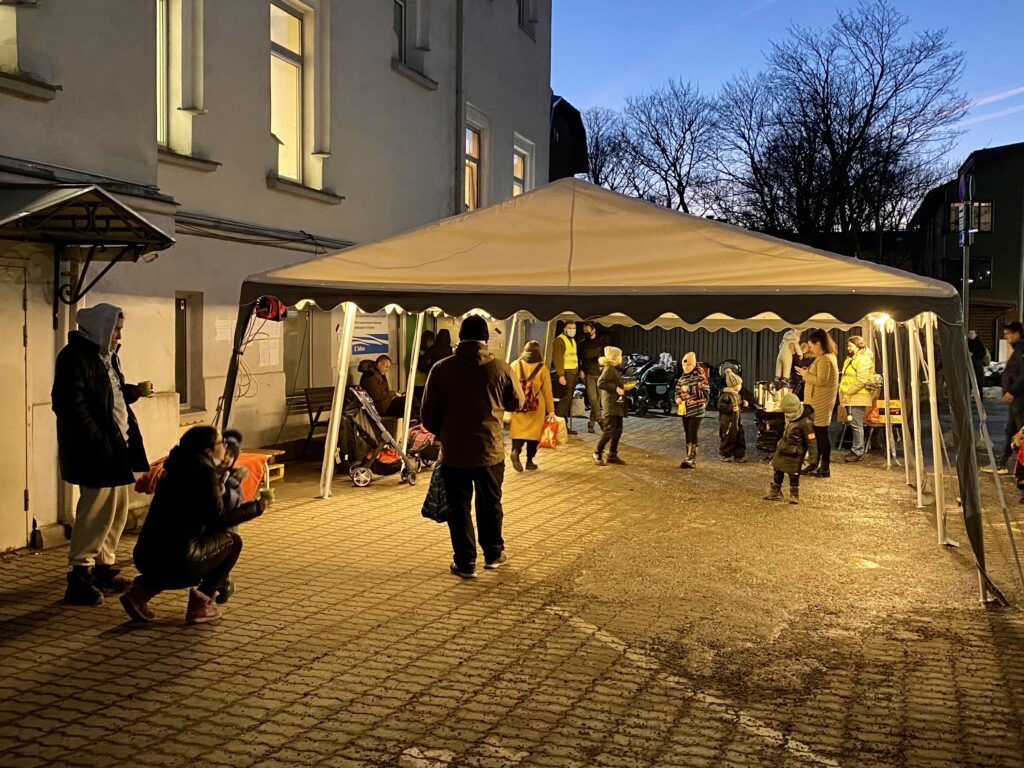
16 March 2022 – The Council of Europe expels Russia
The Council of Europe today expelled Russia from the continent’s foremost human rights body in an unprecedented move over Moscow’s invasion and war in Ukraine. The 47-nation organisation’s committee of ministers said in statement that “the Russian Federation ceases to be a member of the Council of Europe as from today”.
After the decision, the Council of Europe staff went outside of its headquarters in Strasbourg, France, and took down the Russian flag. Russia was a member of the organization for 26 years.
16 March 2022 – Estonia’s PM: The West should not say it will not intervene in Ukraine
The Estonian prime minister, Kaja Kallas, said in an interview with the Estonian Public Broadcasting’s radio service that the West should not openly say it will not intervene in Ukraine under any circumstances – just like the US president, Joe Biden, has repeatedly said, for example.
16 March 2022 – How can NATO and the EU protect Ukrainians?
What more can be done by NATO and the European Union to guarantee the safety of Ukrainians and refugees fleeing the war in Ukraine? Two Estonian members of the European Parliament, Riho Terras and Urmas Paet, an Estonian diplomat in Brussels, Oliver Mõru, and the director of the Estonian Foreign Policy Institute, Kristi Raik, give their opinion.
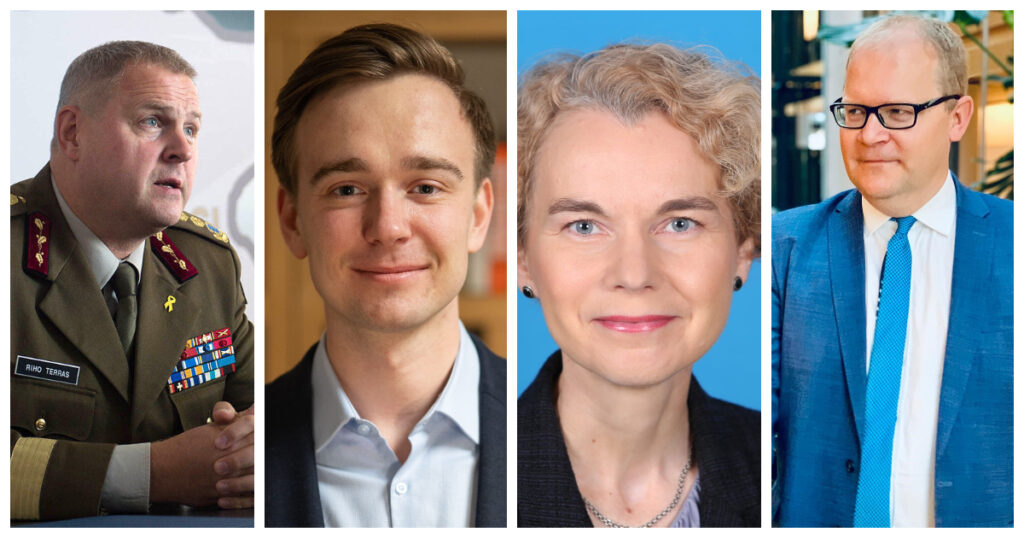
16 March 2022 – Estonia blocks access to seven Russian media sites
The Estonian Consumer Protection and Technical Regulatory Authority has ordered the country’s telecom operators to block access to seven Russian websites that, according to the authority, disseminate war propaganda, justify and support the Russian aggression in Ukraine and incite hatred. The seven sites are ntv.ru, ren.tv, 5-tv.ru, 78.ru, 1tv.com, lenta.ru and tass.ru.
The injunction is valid for 12 months and the authority said it would continue to actively monitor the content of the other Russian websites.
16 March 2022 – Interest in coming to Estonia from Russia increases dramatically
Interest in coming to Estonia from Russia has increased dramatically, several Estonian IT companies report. “The interest has grown a lot. Those who have the opportunities are trying to get out of Russia as fast as they can. I have 48 people on my waiting list right now,” Hanno Ahonen, a representative of MoveMyTalent, an Estonian relocation services company, told the Estonian Public Broadcasting.
“The interest is pretty clear. The number of applications has increased by about four times. People are looking for a place and a job outside Russia quite actively. This volume is growing steadily,” said Agur Jõgi, the CTO of software company Pipedrive, noted.
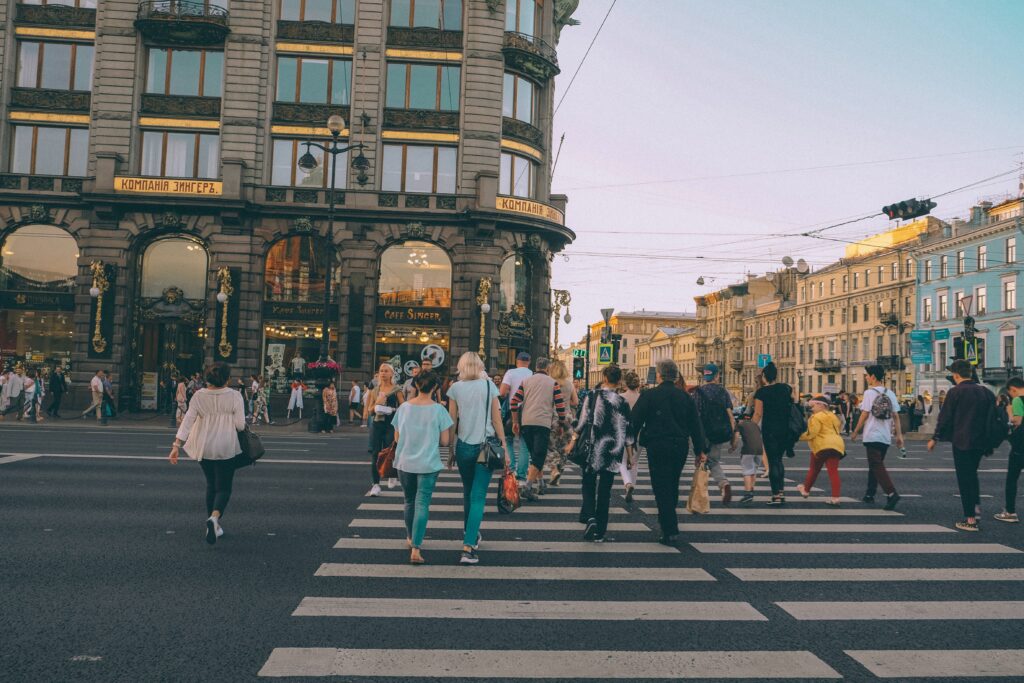
15 March 2022 – Estonian expert: Russia may become more brutal
The director of the Estonian Foreign Policy Institute, Kristi Raik, said on a programme on the Estonian Public Broadcasting that reaching a truce in the negotiations between Russia and Ukraine is, as of now, unlikely, and Russia who’s moving forward slower than planned may become more brutal.
“Right now, the fight is in the battlefield and, to reach the point of real truce talks, the war needs to get to the point where one party finds that they can’t or don’t think it’s reasonable to continue the war,” Raik said. “Russia will go as far as it can. Since Russia hasn’t moved forward as well as they would’ve expected, there’s also the danger that the level of brutality grows.”

15 March 2022 – Joe Biden to join the NATO summit next week
The US president, Joe Biden, will join the extraordinary NATO meeting on 24 March in Brussels to discuss ongoing deterrence and defense efforts in response to the Russian invasion of Ukraine. Biden will also take part in the European Council summit.
15 March 2022 – Former president Ilves: NATO should revoke the NATO-Russia Founding Act
Toomas Hendrik Ilves, Estonia’s president from 2006-2016, told the country’s public broadcasting that “NATO should immediately revoke the alliance’s founding act with Russia”.
The act, agreed with Russia in 1997 during the tenure of the late Russian president, Boris Yeltsin, says among other things that “NATO will carry out its collective defence and other missions through interoperability, integration and capability for reinforcement rather than by additional permanent stationing of substantial combat forces on the territory of new members”. The act thus effectively said that NATO would not establish permanent bases in the new member states, including the Baltic states of Estonia, Latvia and Lithuania that joined the alliance in 2004.
“Immediately, absolutely immediately, revoke, throw in the bin, the NATO-Russia Founding Act, according to which so-called new members – those that have already been in NATO for 23 to 18 years, are not to be allowed permanent bases or soldiers. The Russians are currently engaged in genocidal slaughter, and we here in NATO are sticking to this treaty. It must be revoked immediately,” Ilves said.
The former president also noted that ringing up the Russian president, Vladimir Putin, by some Western leaders is “completely absurd” in the circumstances, where the Russian forces in Ukraine are shooting at evacuation buses full of children, of civilians, and where they are bombing the very same evacuation routes that they themselves have authorised. “They’re war criminals. Did they call Adolf Hitler and say: ‘Oh, listen, maybe you could be nicer over there?’ Absurd!”
Ilves also said he didn’t think a no-fly zone by NATO would be imposed in Ukraine. “I am a realist; it is not coming. Although I am very disappointed that forces much stronger than Russia took seriously its view that ‘no, no, we control the airspace over Ukraine, the country we are invading’. But it’s not coming, so there’s no point in even discussing it”.
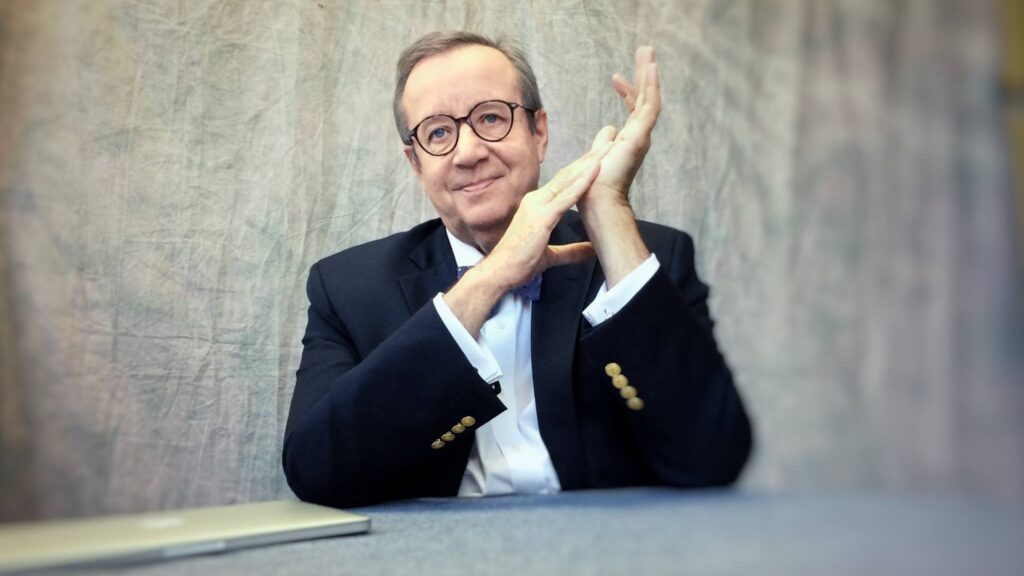
15 March 2022 – Ukrainian war refugees get free access to Estonian museums
More than 60 Estonian museums and exhibition institutions have decided to grant free admission to Ukrainian war refugees with a document proving their citizenship. The aim of the initiative is to facilitate the integration of war refugees in Estonia.
“Free admission to our museums is a small gesture, but hopefully it will help those who have come to Estonia from the crisis area to better adapt and recover from what they have been through,” the Estonian culture minister, Tiit Terik, said.
All state museums and museums of foundations established by the state, as well as several municipal and private museums, offer free admission to Ukrainian war refugees.

15 March 2022 – Tallinn Zoo collects donations for Ukrainian zoos
Tallinn Zoo is one of the many zoos in the world that is collecting donations to help the staff and animals of the Ukrainian zoos affected by war. To allow the Ukrainian zoo staff to focus on the immediate situation during the war, they are being assisted by zoos in other countries, who are helping evacuate endangered animals from war zones where possible and to collect donations.
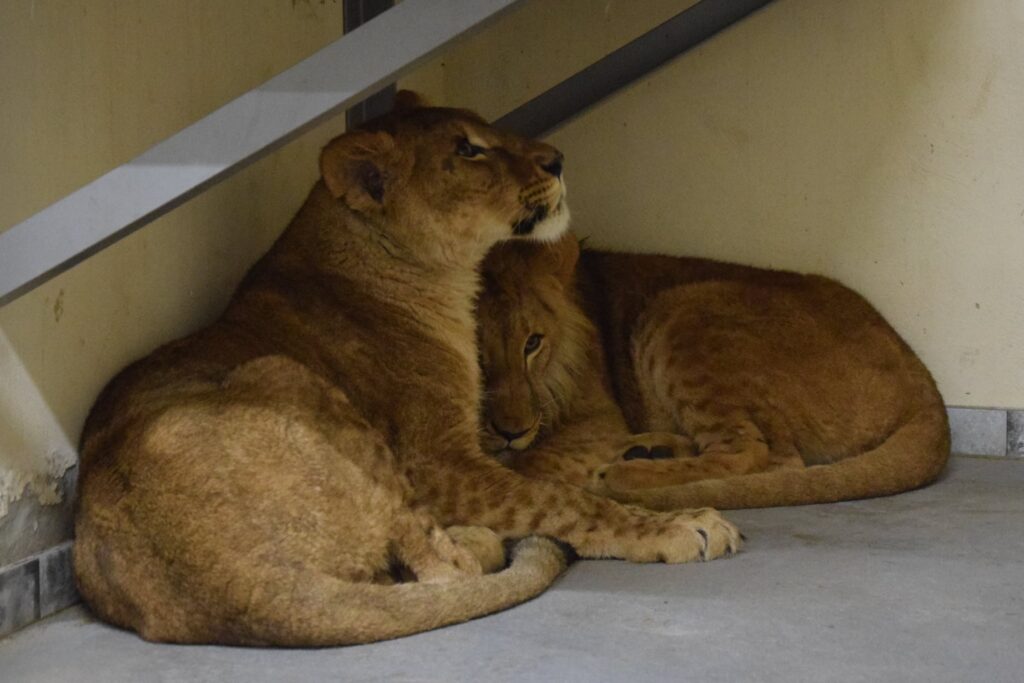
15 March 2022 – Zelensky: NATO is hypnotised by Russia
The Ukrainian president Volodymyr Zelensky has been speaking to the leaders of the Joint Expeditionary Force – a UK-led defence co-operation format that includes Estonia, the Netherlands, Latvia, Lithuania, Norway, Sweden, Finland, Denmark and Iceland – who are currently meeting in London. The meeting in London is also attended by the Estonian prime minister, Kaja Kallas, and the defence minister, Kalle Laanet.
In a video call, Zelensky said NATO was “the strongest alliance in the world” – but “some of the members of this alliance are hypnotised by Russian aggression”.
“We hear a lot of conversations about the third world war, that allegedly it could start if NATO will close the Ukrainian sky for Russian missiles and planes and therefore the humanitarian no-fly zone was not yet established. That allows the Russian army to bombard peaceful cities and blow up housing blocks and hospitals and schools. Four multi-storey buildings in Kyiv in the early morning were bombarded, dozens of dead,” the Ukrainian president said, according to BBC.
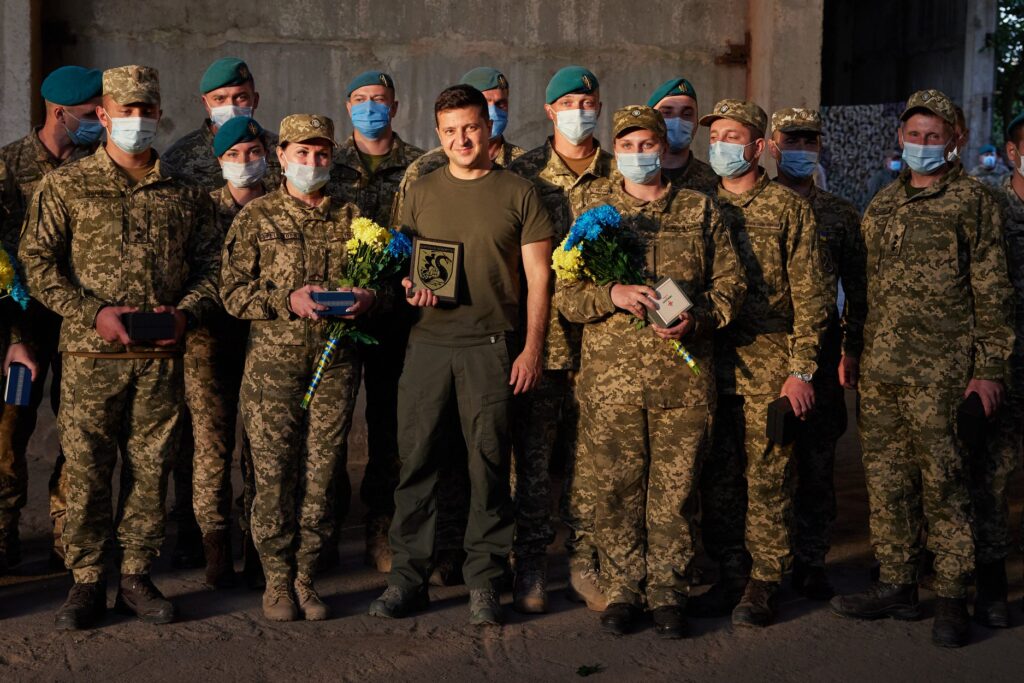
15 March 2022 – Free cinema mornings for Ukrainian children in Tallinn
The “Sõprus” cinema in Tallinn’s city centre invites Ukrainian children for free cinema mornings. The free screenings will start from Friday, 18 March, and will take place from 10 AM to 2 PM every day.
14 March 2022 – Estonian service lets you email random Russians to inform them about the war in Ukraine
The Estonian tech community has created a service that lets you email random Russian email addresses to tell them what is happening in the war in Ukraine – as many Russians only get their information from the Russian propaganda channels and don’t believe there even is a war going on in Ukraine.

14 March 2022 – The Estonian parliament demands a no-fly zone in Ukraine
The Estonian parliament on 14 March adopted a resolution addressed to the parliaments of other EU member states and NATO, as well as to the parliaments of other countries regarding Russia’s aggression against Ukraine, in which the legislative body demands a no-fly zone in Ukraine.
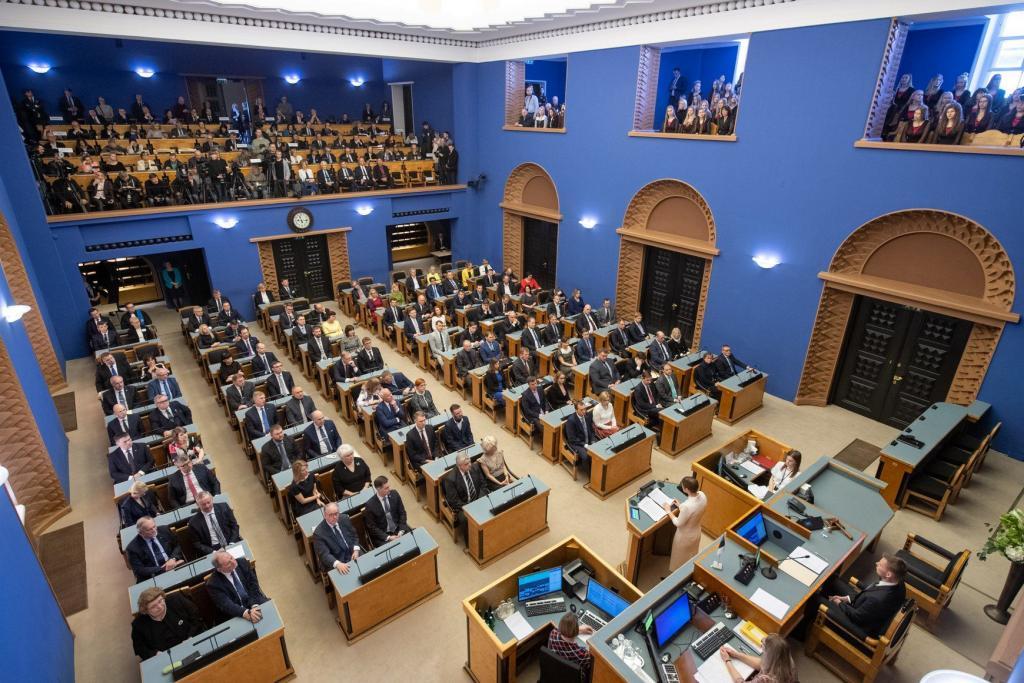
14 March 2022 – 62% of Finns support joining NATO
According to the Finnish Public Broadcasting, Yle, 62% of Finns now support Finland joining NATO, just 16% are against it and about a fifth haven’t made up their mind. Yle says the Russian aggression against Ukraine has made the Finns think more about the country’s security policies. A previous poll on the potential NATO membership in Finland showed just 53% supporting it – but it was still historic as it was the first time over half of the Finns supported joining NATO.
The Estonian prime minister, Kaja Kallas, said, according to Delfi, that Finland has promised to hold its NATO debate within a month. Kallas also noted that Finland and Sweden would probably decide together whether to join the defence alliance. “My efford would be that if one joins, the other one follows,” Kallas said about Sweden. “It’s their internal decision, but in opinion polls, their support for joining has gone up.”
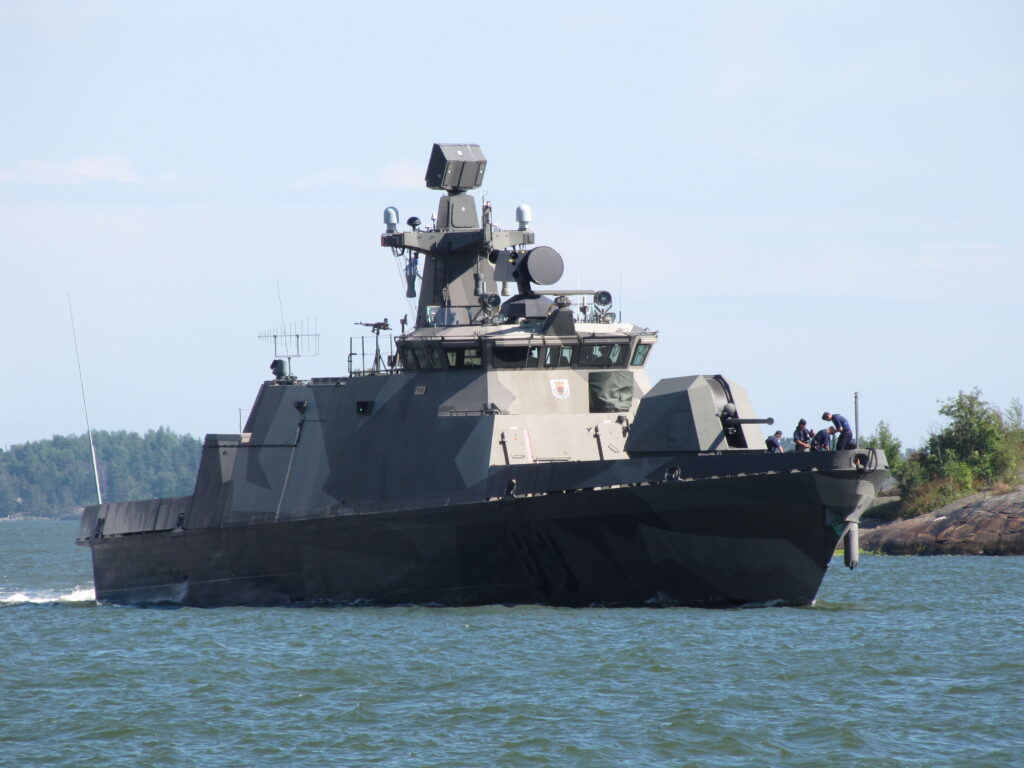
14 March 2022 – 46 Estonian citizens are still in Ukraine
According to the Estonian foreign ministry, 46 Estonian citizens are currently in Ukraine and 28 of them have notified the ministry that they’re not in a hurry to leave. They’re following the situation and waiting for a suitable moment to leave, while 18 people want to leave the country at the earliest opportunity.
More than 150 Estonian citizens who registered their stay in Ukraine with the foreign ministry have left Ukraine and are making their way back to Estonia or have already arrived in Estonia.
The Estonian foreign ministry asks Estonian nationals currently in Ukraine to leave the country at the earliest opportunity and return to Estonia. “Due to Russia’s military aggression, we advise against any travel to Ukraine. However, if you have decided to still go to Ukraine despite the ongoing war, please keep in mind that the assistance capabilities” of the foreign ministry are limited.
14 March 2022 – Jobs for Ukrainians
The Estonian Unemployment Insurance Fund has launched an online platform for employers that are interested in offering jobs to people from Ukraine. Employers can post their job offers, and people from Ukraine – or their contacts in Estonia – can contact employers and inquire about job opportunities.
14 March 2022 – Enterprise Estonia helps Ukrainian companies wishing to relocate to Estonia
Enterprise Estonia, a state-owned agency that attracts investments to Estonia, offers advice and support to all Ukrainian companies wishing to relocate to Estonia. The agency’s consultants can help with finding office space, finding a place to live, a school or a kindergarten and, if necessary, arrange transport between Estonia and the Ukrainian border.
14 March 2022 – The University of Tartu starts teaching Ukrainian
From 15 March, the University of Tartu College of Foreign Languages and Cultures starts teaching Ukrainian. The course is meant for beginner learners and is taught on the basis of Estonian and English. Both students and everyone else interested in learning Ukrainian are welcome to join, the Tartu-based university announced.
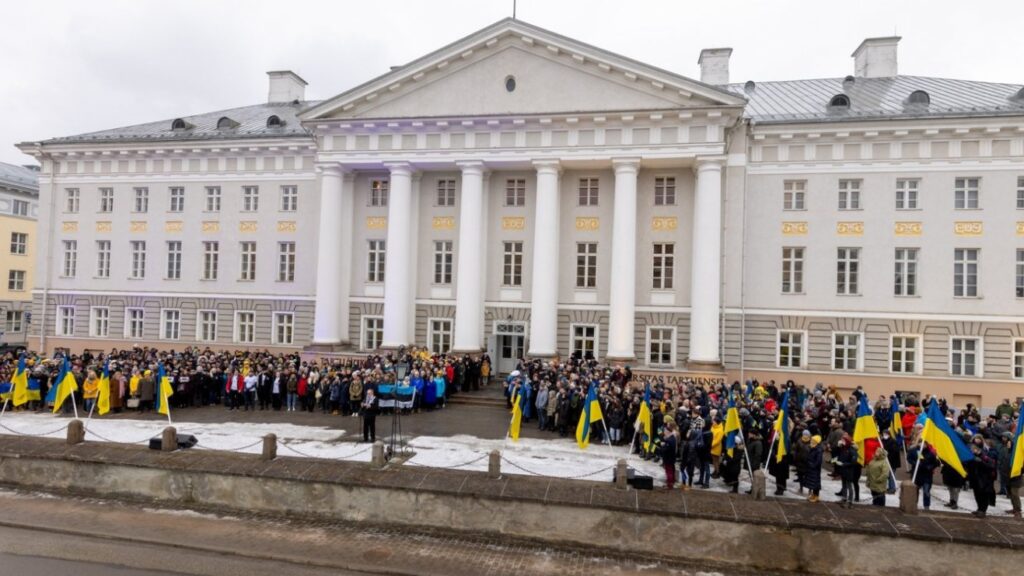
14 March 2022 – Nearly 20,000 Ukrainian refugees have arrived in Estonia
A representative of the Estonian Police and Border Guard told the Estonian Public Broadcasting that from 27 February to 13 March, 19,775 Ukrainian citizens and their family members arrived in Estonia, of whom 5,088 have been in transit. Over 7,000 of the refugees are children.
“Most of the war refugees have found accommodation with relatives or acquaintances. For those who do not have this possibility, the state and local authorities are finding temporary accommodation,” a representative of the police said.
14 March 2022 – Estonia has sent nearly 2,000 tonnes of humanitarian and military aid to Ukraine
Estonia has sent nearly 2,000 tonnes of humanitarian and military aid to Ukraine in response to requests for assistance from the country, according to Magnus-Valdemar Saar, the director of the Estonian Centre for Defence Investments.
“Estonia has supported Ukraine with everything they have asked for and that we have been able to provide. A big part of that has been military aid – arms and ammunition, but medical and humanitarian aid is not insignificant either,” Saar said at a press conference at the Estonian defence ministry today.
Saar noted that all the shipments had arrived and reached the people in need. He added that Estonia was planning to send more humanitarian or military aid – either weapons or ammunition – to Ukraine soon.
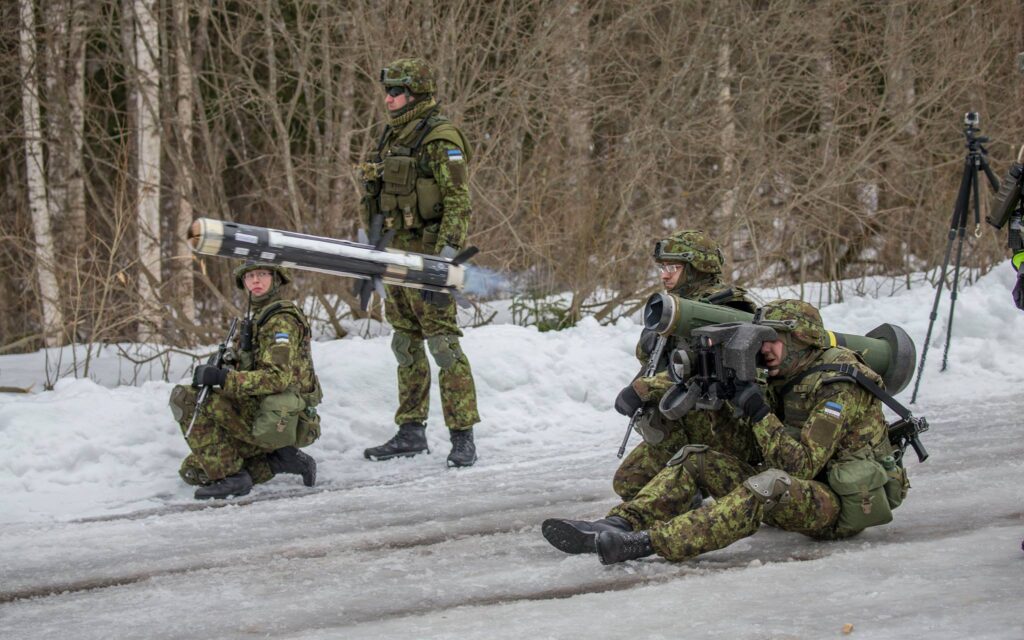
14 March 2022 – Danish troops arrive in Estonia
About 220 Danish troops, a part of the Jutland Dragoon Regiment, have been deployed to Estonia; the troops will serve in the UK-led NATO battlegroup, based at the Tapa military base. The Danish Defence Forces have supported the NATO’s battlegroup in Estonia since 2018. Approximately 1,700 NATO troops, most of them British, are currently based in Tapa.
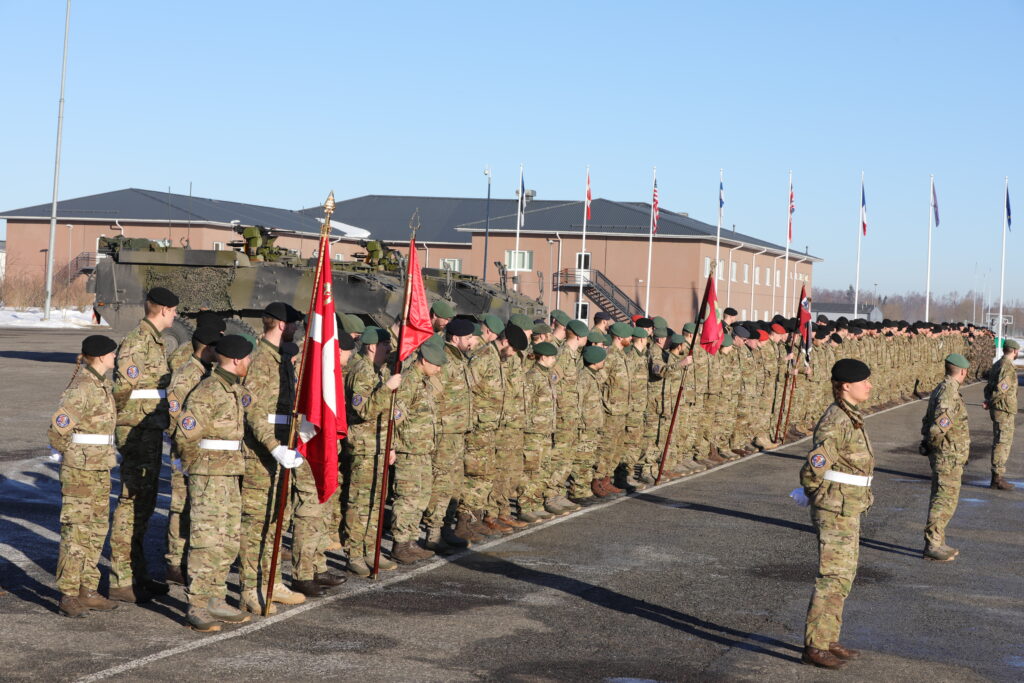
14 March 2022 – The Estonian PM and the defence minister attend a Joint Expeditionary Force meeting in London
At the invitation of the UK’s prime minister, Boris Johnson, the Estonian prime minister, Kaja Kallas, and the defence minister, Kalle Laanet, will attend a meeting of the Joint Expeditionary Force (JEF) in London today and tomorrow.
“The aim of the meeting is to find ways in which the JEF nations can most effectively support Ukraine. They will also discuss how to intensify defence co-operation in the Nordic countries, the North Atlantic, and the Baltic Sea region, and how to increase the capacity of the Joint Expeditionary Force to contribute more effectively to the security of our region,” the Estonian government said in a statement.
The Joint Expeditionary Force is a UK-led defence co-operation format that includes Estonia, the Netherlands, Latvia, Lithuania, Norway, Sweden, Finland, Denmark and Iceland. In a crisis situation, the primary role of the JEF is rapid response.
14 March 2022 – France deploys four fighter jets to Estonia
Four Mirage 2000-5F multirole fighter jets, belonging to the French Air and Space Force, arrived at Ämari Air Base on 13 March. The jets will join the NATO’s Baltic Air Policing mission and they will be based at the Estonian base until 1 August.
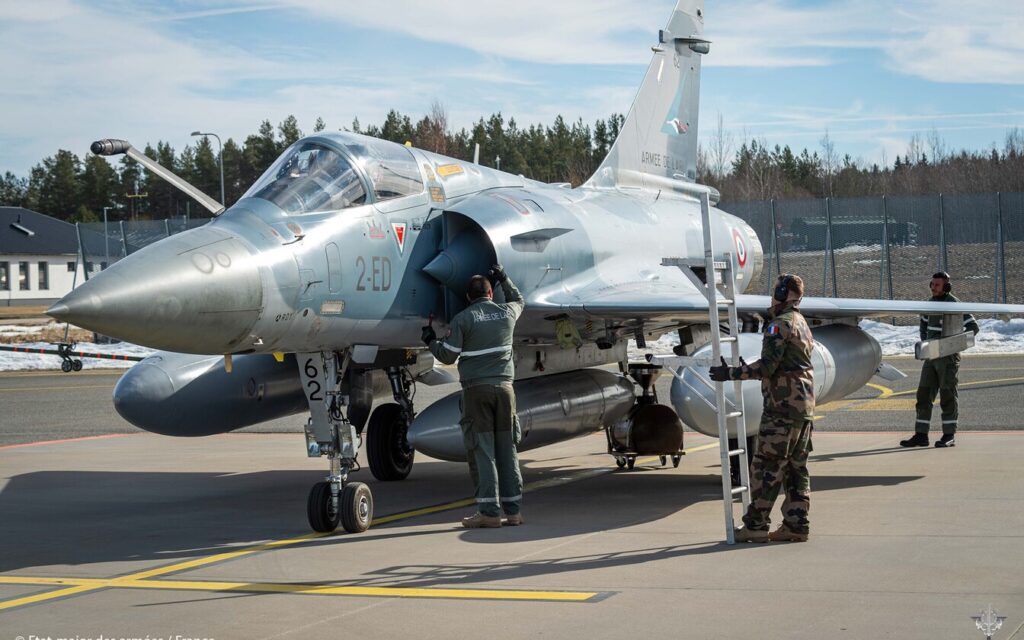
13 March 2022 – Ukrainian war refugees can travel on Estonian public transport free of charge
Ukrainian war refugees can travel by train and buses operated by the Estonian municipal governments free of charge, using a valid public transport card, the Estonian economic and infrastructure ministry announced today. The right to travel free of charge does not extend to commercial intercity bus lines.
To prove their right to travel free of charge, war refugees receive a corresponding public transport card from the local government that is hosting them – or a regional public transport centre. The card is valid on trains, trams, trolleybuses, and buses.
People can plan their trips in the Estonian travel planner – a central channel for public transport connections and data in real-time across the country, published in Estonian, Russian, English and Finnish.

13 March 2022 – Businessman: Russia may need a nuclear “accident” to justify 10,000 dead service members
Estonian businessman Gunnar Kobin wrote on Facebook that Russia has a problem with its 10,000 servicemembers being killed in Ukraine. “I’m a little paranoid now. Russia has a problem – 10,000 of its service members are dead, but they can’t say it publicly, because that would trigger a bigger uprising. They need to invent an event where they can “write off” 10,000 service members but so that they wouldn’t need to send them home in an open coffin,” Kobin said.
“That event would be a nuclear accident in Chernobyl, perpetrated by the Ukrainian ‘terrorists’. The Russians can write off a large number of service members in one go and blame Ukraine for it. I hope that someone smarter has thought about this possibility and can take this card away from [the Russian president, Vladimir] Putin.”
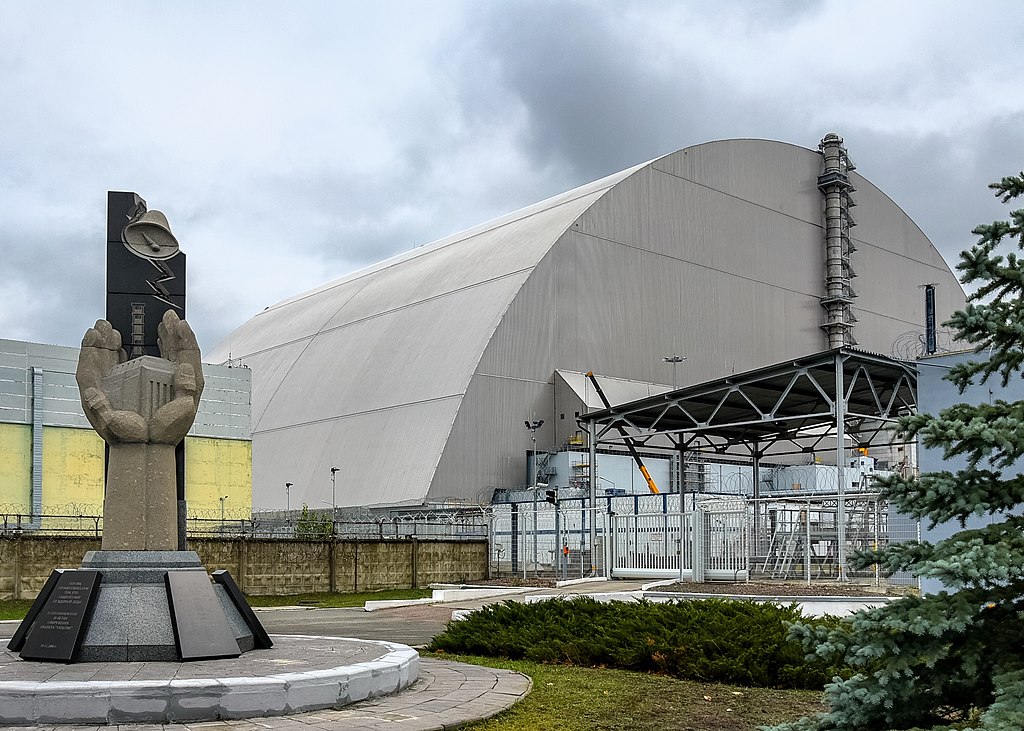
13 March 2022 – Estonian security expert: The Ukrainians’ leadership is today better than two weeks ago
The Estonian security expert, Eerik-Niiles Kross, said in a Facebook post that the Ukrainians’ leadership today is better than two weeks ago. “In war psychology, after the first two weeks – if by that time there is no truce – there’s an important mental breaking point. Two weeks are biologically the time during which the human organism – also the brain – can function and make decisions with minimal sleep and when exhausted,” Kross said.
“This is in inexperienced crisis and battle headquarters the point where the leadership falls, if people don’t work in shifts, don’t get enough sleep and don’t keep the morale high. Today’s video from [the Ukrainian president, Volodymyr] Zelensky eased my mind. The man looks more rested than on the third day of the war. I can take poison that the Ukrainian leadership is better today – definitely not worse – than it was two weeks ago.”
Kross also says that the Ukrainians have a moral superiority over their enemy. “200,000 Ukrainians have returned to the country to fight the enemy. 60,000 foreigners have arrived as volunteers. The free world’s nations support Ukraine’s fight for freedom and even though the free world’s governments are still sometimes vague … the world’s support is a crucial mental motivator for the Ukrainians.”
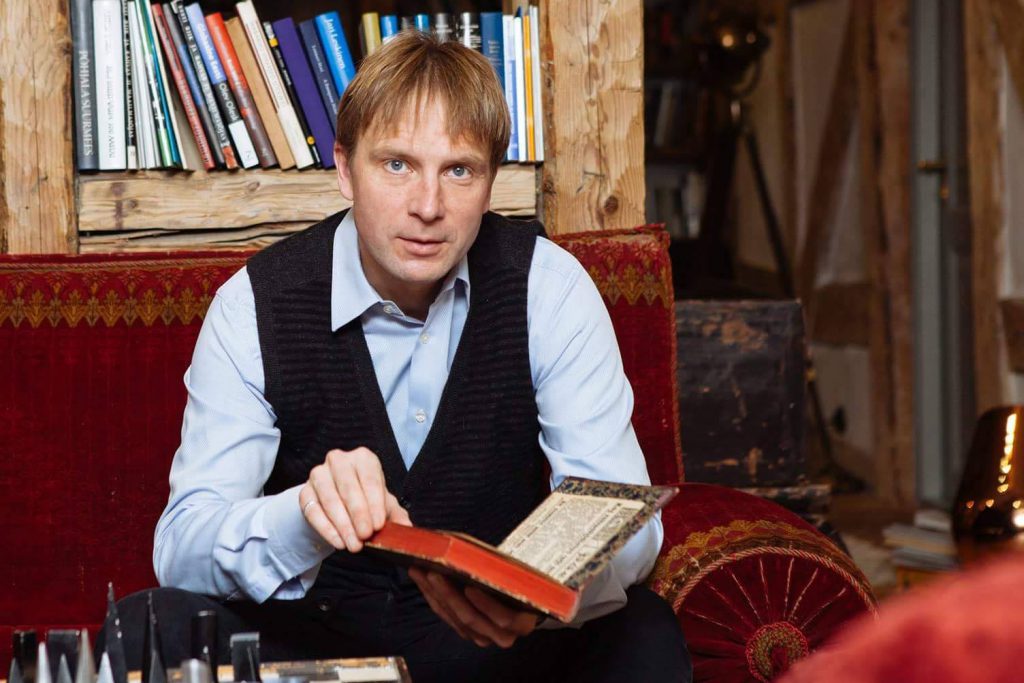
12 March 2022 – Estonian expert: Russia is losing generals in Ukraine due to its communication failures
Leo Kunnas, a reserve Lieutenant Colonel of the Estonian Defence Forces and the vice chairman of the parliament’s national defence committee (EKRE) is writing in Eesti Päevaleht that Russia has lost three generals and three colonels in Ukraine and it’s not very common, that in such a short time, so many high-ranked military leaders get killed in combat.
Kunnas says the reason to that is that the Russian encrypted communication system had failed. “In today’s militaries, it’s a standard that communications are encrypted,” he says. “The Russian army uses a system called Era. It’s a very smart solution – all communication relies on 4G and 3G networks. What happened in Ukraine was, the Russians themselves destroyed the communication towers – to cut the Ukrainians off from being able to communicate. But the result is, the messages of the Russian army went into the air openly. Even British radio amateurs have been able to listen to Russia’s ‘secret’ messages.”
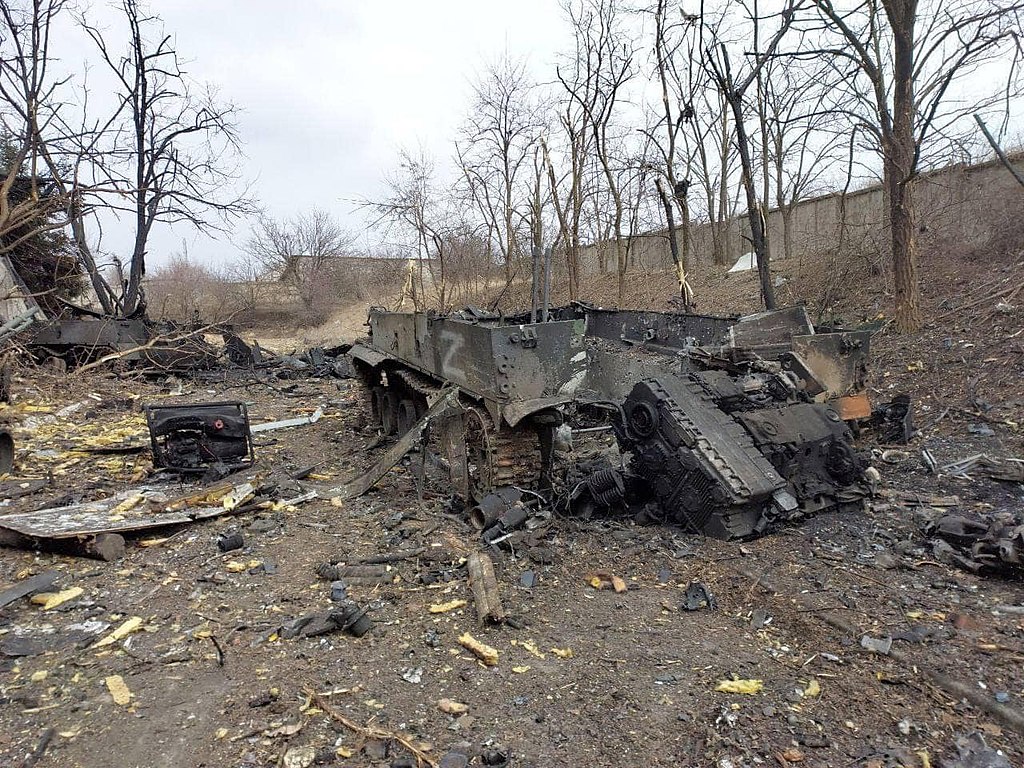
12 March 2022 – Over 16,000 Ukrainian refugees have arrived in Estonia
As of Friday night, 16,136 Ukrainian citizens and their family members have arrived in Estonia, 5,677 of them children, according to the Estonian Police and Border Guard Board. On Friday alone, 1,871 Ukrainian citizens and their family members arrived in the country.
According to Postimees, the border is open for the war refugees and their flow into the country doesn’t seem to end – and thus, Estonia is facing the question, where to accommodate such a large number of people.
The state hasn’t financed the evacuation of the Ukrainians from the border, that has been done by NGO Pagulasabi (the Estonian Refugee Council). According to Postimees, to send buses to the border and back costs €20,000 a day, even though the bus operators have set very low prices. Everything that is offered to the refugees has come from donations. Among the people arriving at the Estonian border are also parentless children.

12 March 2022 – Denmark deploys enforcements to Estonia
About 220 Danish troops, a part of the Jutland Dragoon Regiment, will be deployed to Estonia next week; the troops will serve in the UK-led NATO battlegroup, based at the Tapa military base. A transport ship, carrying Piranha V armoured personnel vehicles and other equipment for the Danish troops, arrived in Estonia few days ago.
The Danish Defence Forces have supported the NATO’s battlegroup in Estonia since 2018.
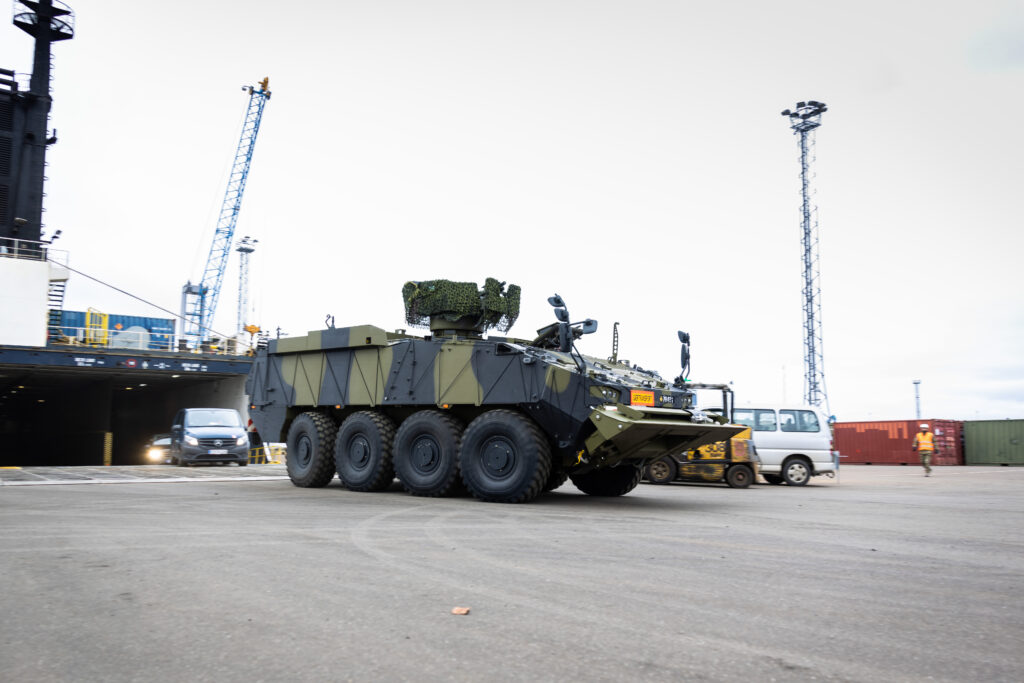
12 March 2022 – Estonian ambassador to NATO: Estonia needs permanent defences
The Estonian ambassador to NATO, Jüri Luik, says the alliance should place permanent troops in Estonia to improve the defence of the eastern flank of NATO.
“Like after Crimea [the Russian annexation of Crimea – editor], first the troops came to Estonia temporarily and later they were made the eFP – the enhanced forward presence. So now, they’ve temporarily sent enforcements, but during the Madrid summit, we’ll try to make them permanent. What does the permanent presence mean? It means troops, it means equipment, it means ammo – everything that the permanent bases in Germany, for example, have,” Luik said.
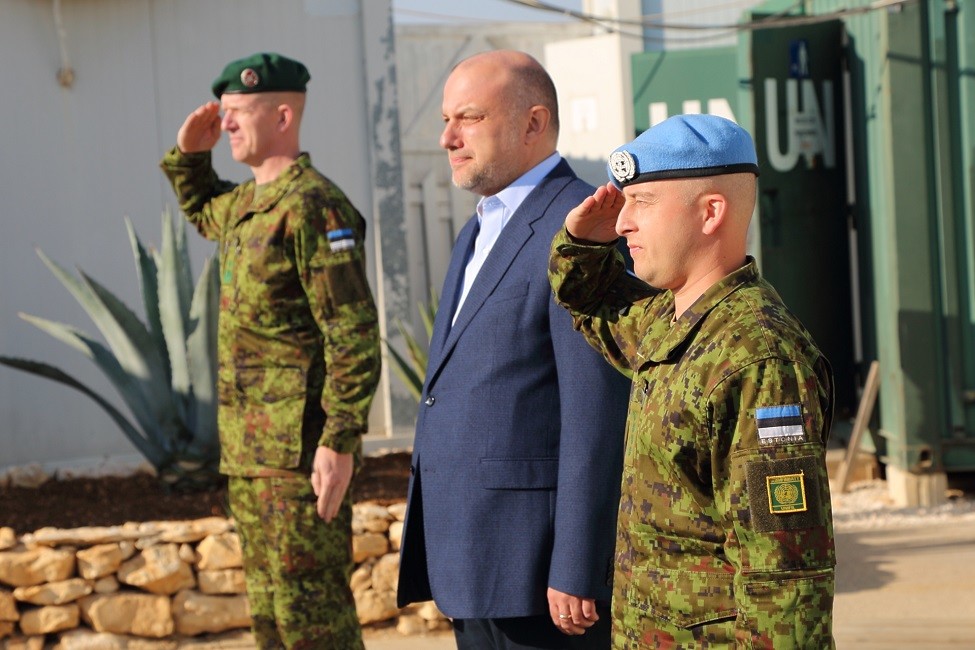
12 March 2022 – The Estonian internal security warns: Russians try to recruit people at the border
The Estonian Internal Security Service – known as KAPO for its Estonian name, Kaitsepolitsei – warns on Twitter that the Russian and Belorussian intelligence services are trying to recruit people after the cross the border to Russia, and that these attempts should be reported.
12 March 2022 – Estonian education startup to offer classes in Ukrainian
Estonian education startup Edumus is starting from 14 March a distance learning school that will offer classes in Ukrainian and psychological support. The school is called “The School of Hope” (“Школа надії” in Ukrainian) and it’s offering classes to kids who have escaped Ukraine. The web-based school will help the Ukrainian children to continue their studies, regardless of their location, and will offer work opportunities to the Ukrainian teachers arriving in Estonia or the Baltic states, the startup said in a statement. Teachers and students can register at the school’s website.
11 March 2022 – Estonian police to lead the effort to help incoming war refugees
The Estonian Police and Border Guard Board is invoking its mass influx emergency situation plan and starts leading the effort to help incoming Ukrainian war refugees. The chief of the Police and Border Guard Board, Elmar Vaher, told Delfi in a video interview that currently, every department and ministry was acting on its own and the emergency situation plan is a national plan of action to get together everyone to together work to help the refugees.
“The emergency situation helps us give tasks to entities that are not in their purview. For example, we can give some logistical tasks to the defence forces or the fire department,” Vaher said.
As of today, over 14,000 Ukrainian war refugees have arrived in Estonia, 4,000 of them children. “Estonia wasn’t ready for this situation, probably no country was. We’re taking one day at the time,” the police chief told Delfi.
11 March 2022 – Infographic: EU sanctions against Russia over Ukraine
The European Union has progressively imposed sanctions and restrictive measures against Russia since 2014, in response to the annexation of Crimea. Following Russia’s invasion of Ukraine, the EU adopted new sanctions. Here’s an infographic of the sanctions as of 11 March 2022.
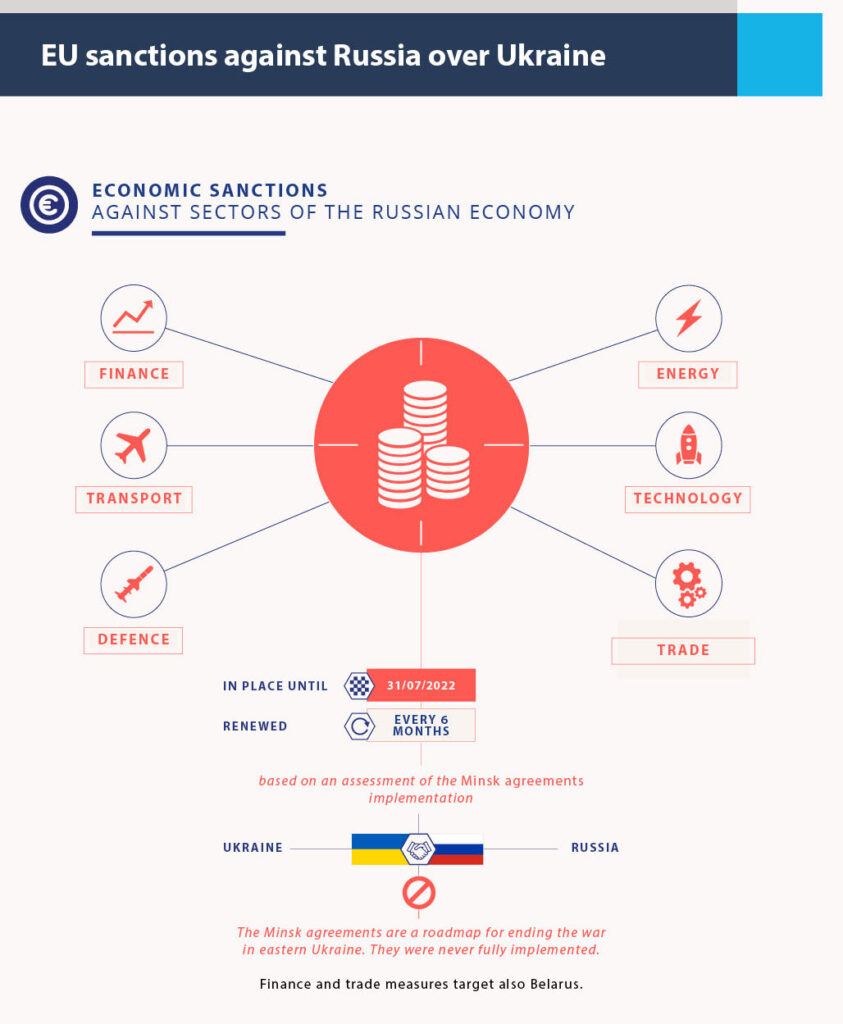
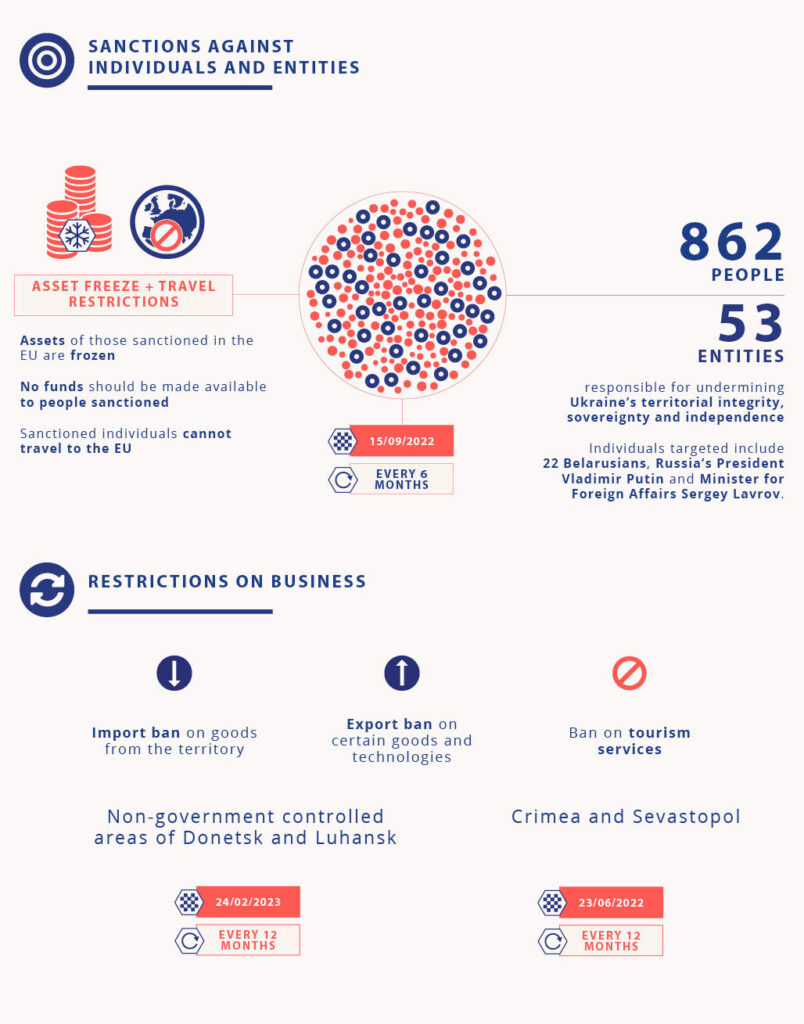
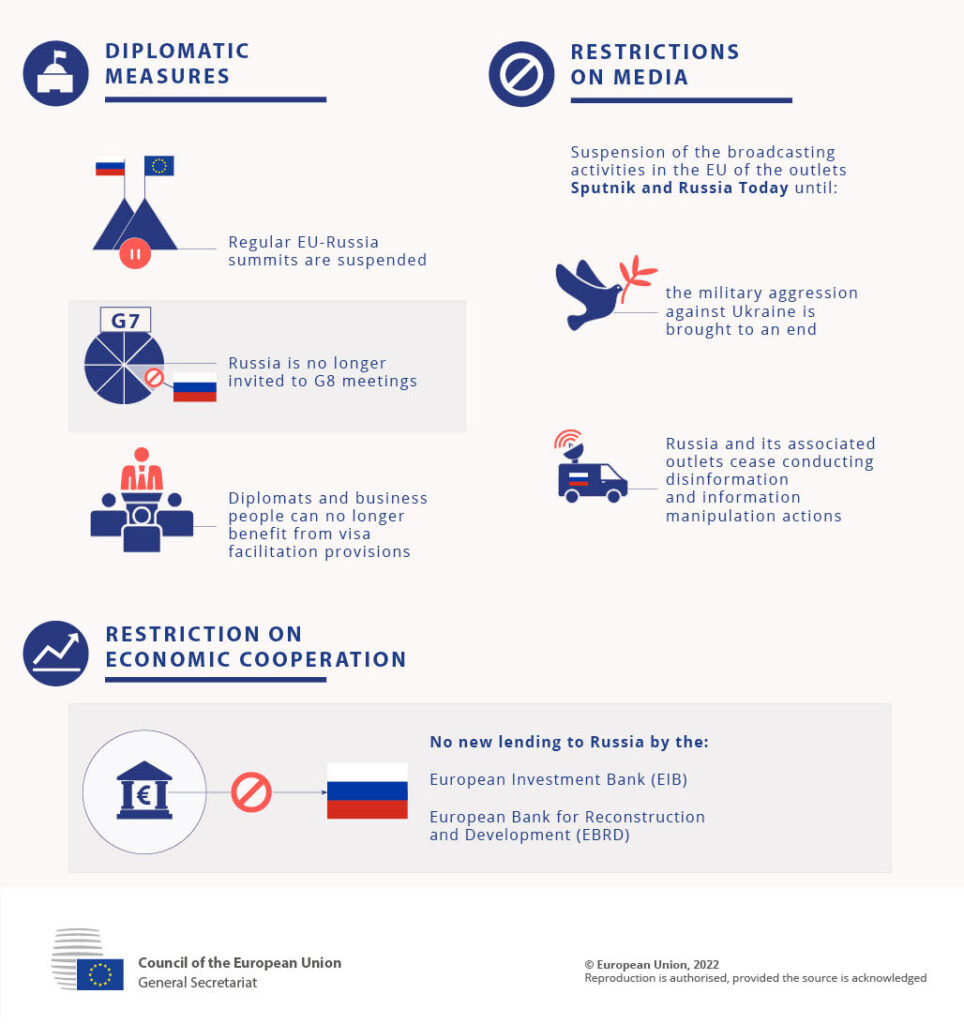
11 March 2022 – Another “Art Against War” fundraiser to take place in Tallinn
Organised by the local and international creative community, another fundraiser to support Ukraine is taking place at Fotografiska Tallinn, today at 7 PM Estonian time.
The organisers said many Estonian artists and designers had donated their work. The auction will showcase paintings, fashion and more. The aim is to raise money for Ukraine’s “The Return Alive Foundation”. People can also join the auction online.
The first “Art Against War” fundraiser, on 2 March, raised over €50,000.
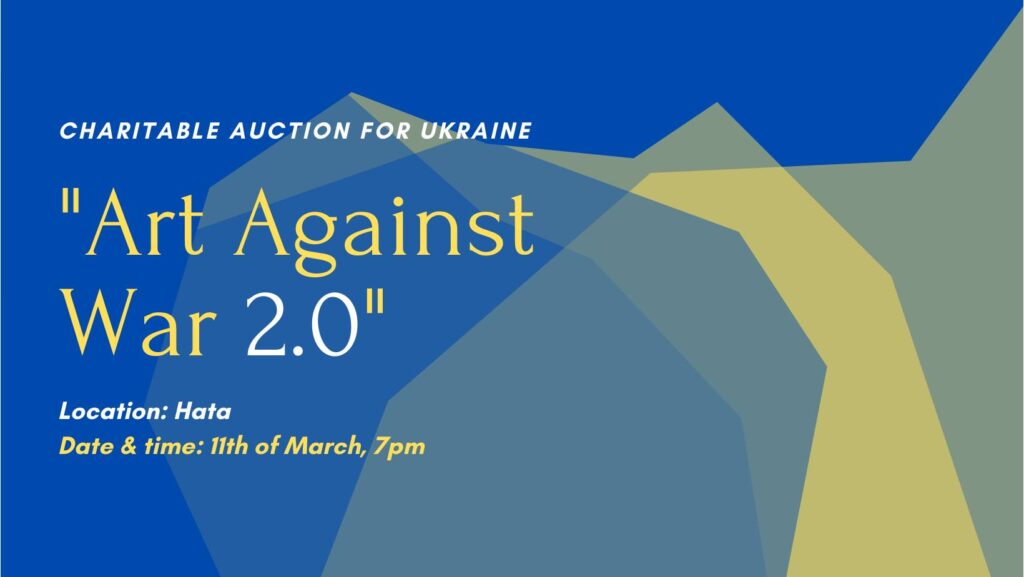
11 March 2022 – The EU leaders “acknowledge” the “European aspirations” of Ukraine
The European Union heads of state and government, including the Estonian prime minister, Kaja Kallas, are since yesterday meeting at the Palace of Versailles in France.
The leaders – collectively known as the European Council – issued a statement, in which they “acknowledged the European aspirations and the European choice of Ukraine”. The statement follows Ukraine’s wish to become a member of the EU – the Ukrainian president, Volodymyr Zelenskyy, submitted the application on behalf of his country on 28 February. The EU leaders said they had “invited” the European Commission to “submit its opinion on this application”.
In a press release, issued by the Estonian government, Kallas appeared to sugar-coat the EU’s bureaucratic-sounding statement, saying that “we agreed with our European colleagues that Ukraine has a place in the European Union, and with today’s joint statement, we have created a legal basis for the accession process. This is a historic and clear step for Ukraine and the European Union”.
Both the German chancellor, Olaf Scholz, and the Dutch prime minister, Mark Rutte, have publicly rejected a fast-track procedure for Ukraine’s membership in the European Union.
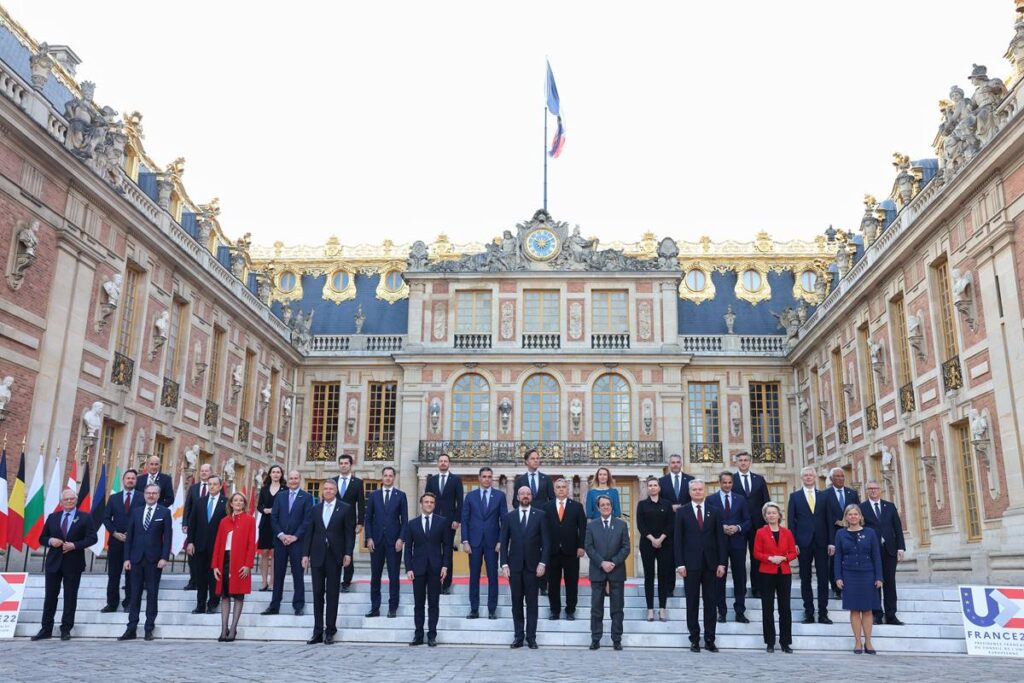
11 March 2022 – Daniil Novikov: A witch-hunt of Estonian Russians is not a solution
Daniil Novikov, an Estonia-based Russian citizen, humanitarian worker and a dad of three children who attend an Estonian-language kindergarten, writes that people in crisis need all our support, but hatred and suspicion of everything Russian will poison us.
11 March 2022 – Estonian folk singer Mari Kalkun releases a Ukraine-themed song
Mari Kalkun, one of the best known Estonian folk music singer-songwriters, has released a song, “Somewhere There’s War”, that she created following the Russian invasion of Ukraine; with the song, the artist calls upon to support Ukrainians.
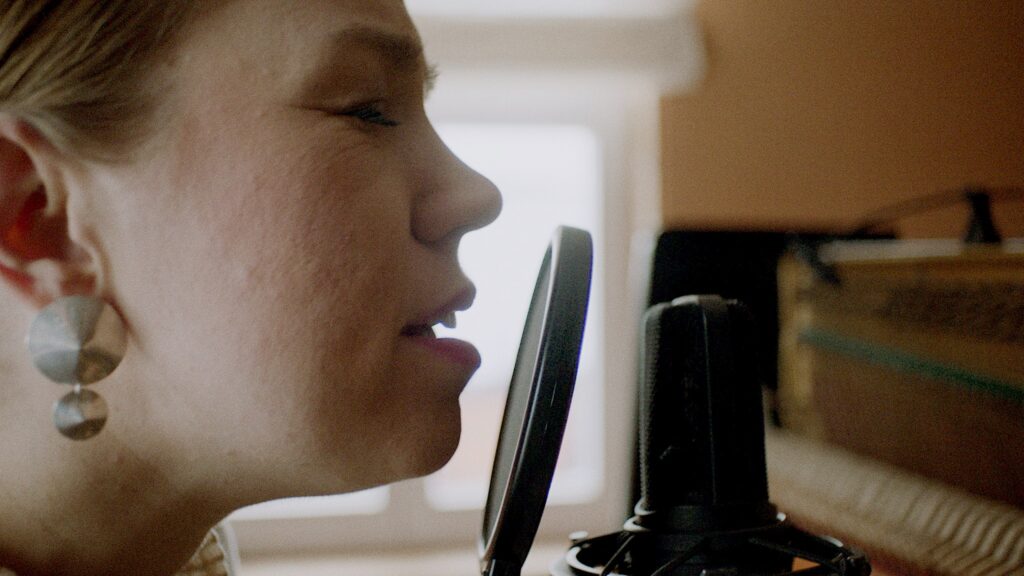
10 March 2022 – Tallinn is about to run out of accommodation options for Ukrainian refugees
According to the mayor of Tallinn, Mihhail Kõlvart, the Estonian capital is about to run out of accommodation options for Ukrainian war refugees. He says that the country’s government had a prognosis that the country will have to deal with a number of refugees from Ukraine, but it didn’t have an acceptance plan, a plan how to share them among local municipalities, according to Delfi.
Right now, Tallinn is in a situation where the planned accommodation options have exhausted themselves. Kõlvart told the news portal that at the moment, the city can use reserve accommodation options, but it’s already clear that it can’t place all the refugees in hotels.
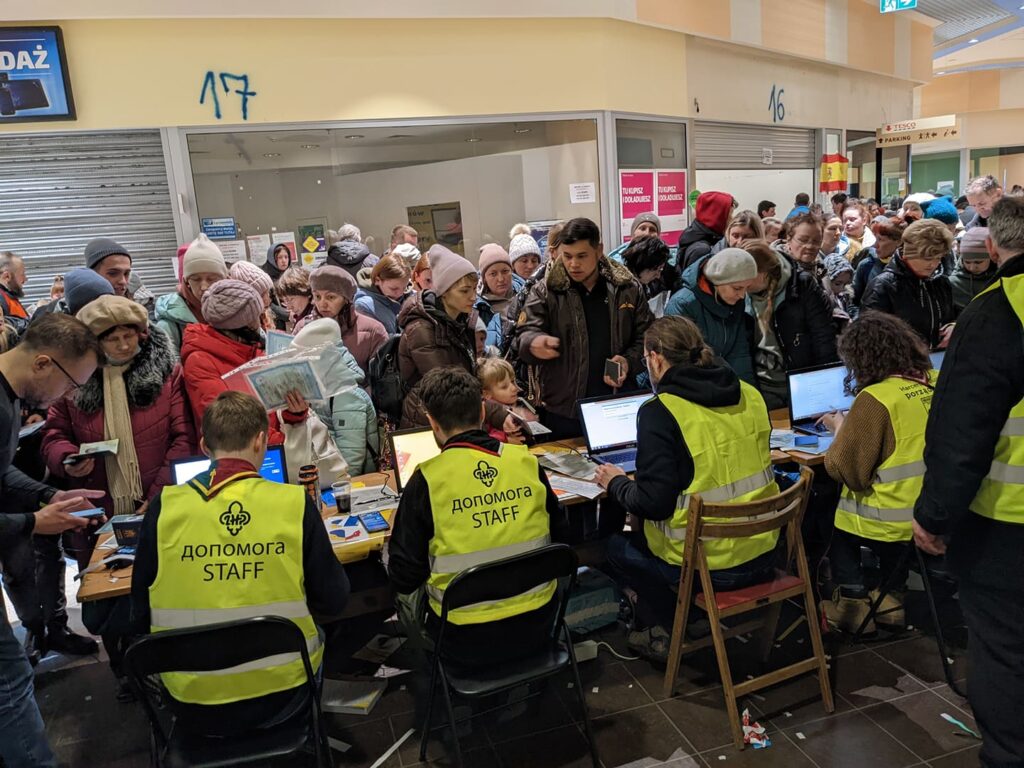
10 March 2022 – A public letter to the University of Tartu asks to reconsider Russian students decision
In the wake of Russia’s invasion of Ukraine, the University of Tartu decided on 7 March that it will not accept new students with Russian and Belarusian citizenship in the next academic year, unless they already have a temporary resident permit or long-term visa. Over 1,200 people have now signed a public letter that asks the university to reconsider the decision.
10 March 2022 – Less than fifty Estonians remain in Ukraine
According to the Estonian foreign ministry, forty-eight Estonian citizens are still in Ukraine. Around half of them have notified the ministry about their decision to stay for the time being, observe the situation and wait for a suitable moment to leave. The rest want to leave the country as soon as possible. Several Estonian journalists are also in Ukraine.
The Estonian citizens in Ukraine can register their stay on the foreign ministry’s homepage or by e-mail: konsul@mfa.ee. If necessary, people can also contact the ministry by calling the 24/7 emergency number: +372 5301 9999.
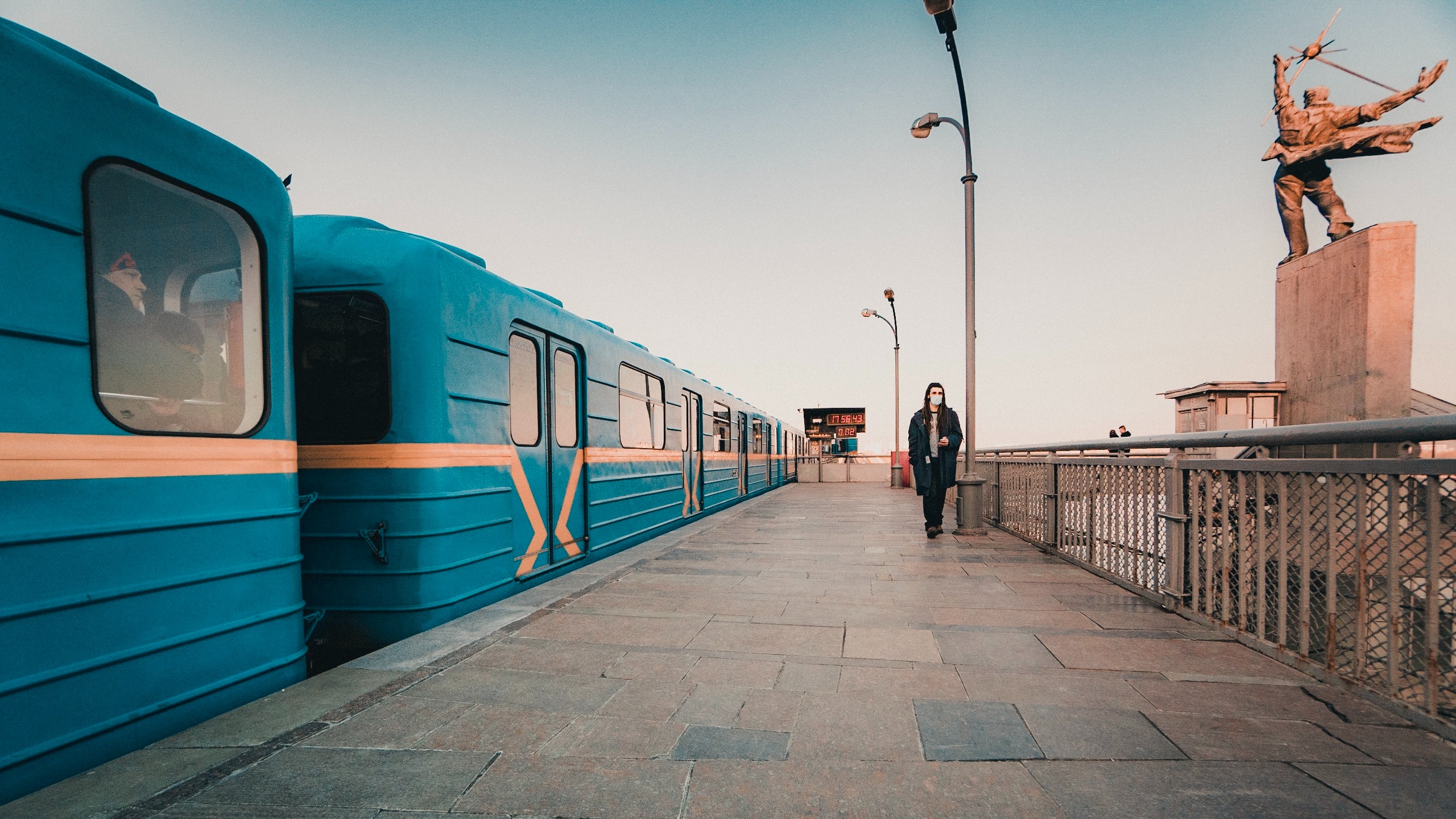
10 March 2022 – Estonia’s representations in Russia and Belarus suspend issuing Estonian visas
Starting from 10 March, the Estonian representations in Moscow, Saint Petersburg, Pskov and Minsk, as well as the visa centres of the external service providers in the Russian Federation and Belarus stop receiving visa applications, the Estonian foreign ministry announced. However, those wishing to visit their family members in Estonia will still be able to do so.
“The decision was made because of technical difficulties in the payment of visa fees and service fees, as well as other unforeseen restrictions arising from the current situation in Russia and Belarus. We shall continue receiving visa applications by Russian and Belarusian citizens wishing to visit family members in Estonia, as well as on humanitarian grounds, e.g., serious illness or funeral of a close relative. Based on the purpose of the visit, these individuals are exempt from the visa fee,” the ministry said, adding that all visas issued to date shall remain valid until the date of expiration.
10 March 2022 – The EU leaders meet in Versailles, France
The European Union leaders meet today and tomorrow at the Palace of Versailles – where in June 1919, Germany signed a peace treaty with the allied powers of France, the UK, the US, Russia, Italy and Japan to end the First World War. This time around, the adversary is Russia, that is, however, absent from the negotiating table.
The EU heads of state and government, including Estonia’s Kaja Kallas, will talk about Russia’s military aggression against Ukraine, “security issues and matters related to boosting defence capabilities”. The leaders will discuss the next steps to be taken by the EU, including further sanctions and supporting Ukraine and its refugees.
The leaders will also debate on “how to strengthen the EU’s economy by reducing the union’s raw materials and energy dependency and diversifying its supply chains”.
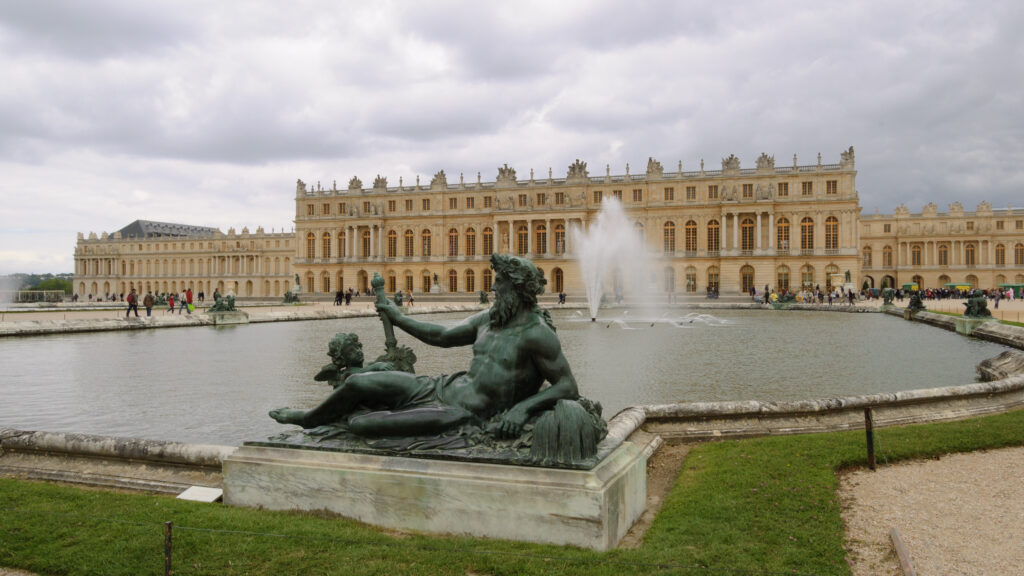
10 March 2022 – Ukrainian war refugees can ride free of charge on Tartu city buses
Tartu, Estonia’s second largest town, is granting Ukrainian war refugees the right to travel for free by city bus for a whole year.
The right to free travel for a period of one year will be issued to Ukrainian war refugees on the basis of a personal identification code together with a personalised bus card. If a refugee already has a bus card, the right to travel free of charge will be transferred to the existing card.
War refugees can apply for free travel at the reception point in the Raadimõisa Hotel (Mõisavärava Steet 1), the Town of Tartu Information Centre (Raekoja Square 1a) or the Tartu Welcome Centre (Ülikooli Street 17).
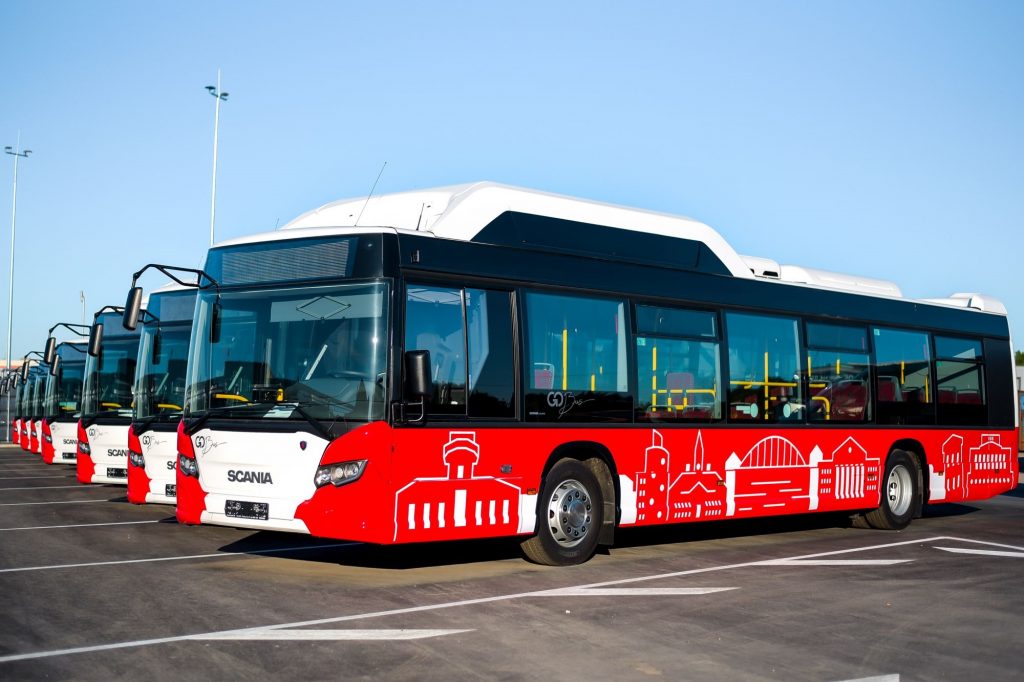
9 March 2022 – Estonian MEP together with former Western military leaders demand air defences for Ukraine
The Estonian member of the European Parliament and the former commander of the Estonian Defence Forces, Riho Terras, together with other former Western military leaders, urge immediate action to provide the Ukrainian Armed Forces with a viable mid- and high-altitude air defense capability. The petition was signed by 15 former military leaders from the US, the UK, Latvia, Germany and Lithuania – including Philip M. Breedlove, a former Supreme Allied Commander Europe of NATO.
Supplying these weapons to Ukraine would help them shoot down the enemy’s aircraft and missiles that are invading the Ukrainian air space. Air defence systems are something that the Ukrainians have asked for from the Western countries for some time.
Last week, Terras said he was going to send a letter to Josep Borrell, the EU’s foreign policy chief, asking for him to resign over the empty promises given to Ukraine. Borrell promised the “EU will send fighter jets” to help Ukraine, but ultimately left the Ukrainians empty-handed.
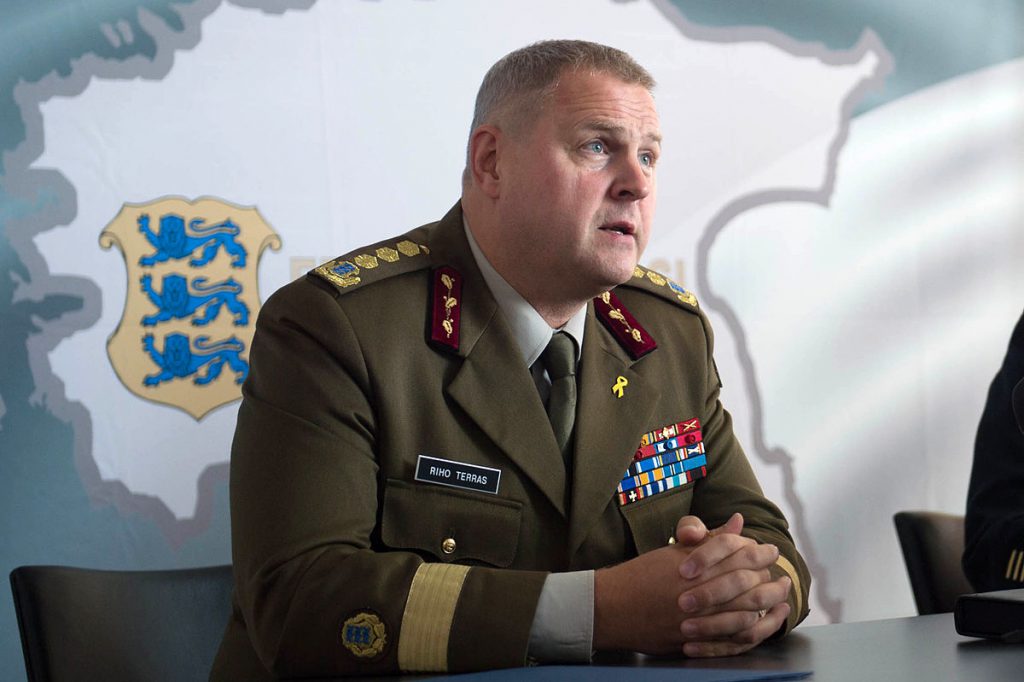
9 March 2022 – Enterprise Estonia opens a website for Ukrainian companies
Enterprise Estonia’s foreign investment centre has set up a website that is providing answers on how can Ukrainian companies bring their workers to Estonia and how to work from Estonia. The website is in both Ukrainian and English.
9 March 2022 – Tallinn collects donations for war refugees
In order to better match the donations of helpful citizens of Tallinn with the urgent needs of war refugees from Ukraine, Tallinn is organising a collection of everyday items in the district administrations from Thursday, 10 March.
The vast majority of those arriving are women of all ages and children and adolescents of both genders, so the following items are particularly needed.
For women of all ages:
clean, decent, ironed, new-like everyday clothes;
brand new underwear;
new socks, stockings, knee-highs;
very well cared for or new shoes for different sizes – outdoor shoes (mainly spring), comfortable indoor shoes, new slippers;
toiletries (especially shampoo, conditioner or 2in1, face cream, deodorant, sanitary towels, tampons, toothpaste, toothbrush, scrubs, nail scissors, new manicure products, etc.);
sock-knitting needles, crochet hooks, yarn, crochet thread and other craft materials;
puzzles and other leisure activities.
For children and adolescents (both girls and boys):
clean, ironed, new-like clothes (for babies, toddlers, school children, adolescents up to 18);
shoes for children of different ages (even up to size 48/50 for young men);
brand new underwear;
brand new socks for all ages, children’s tights (new and/or very well kept);
toys for children of all ages (including soft toys, Legos);
board games, e.g. dominoes, checkers, “Circus”, etc. (NOTE: boxes of puzzles must be taped shut, without boxes, put food wrap over puzzles);
children’s books for different ages (in English, Ukrainian, Russian or Estonian);
new sets of crayons and drawing paper blocks, drawing books, colouring books;
toiletries for adolescents (including disposable razors for boys);
nappies for babies of different ages, wet wipes;
pregnant women’s clothing, baby accessories (including feeding bottles and teats); baby food (powdered milk, canned food, etc.).
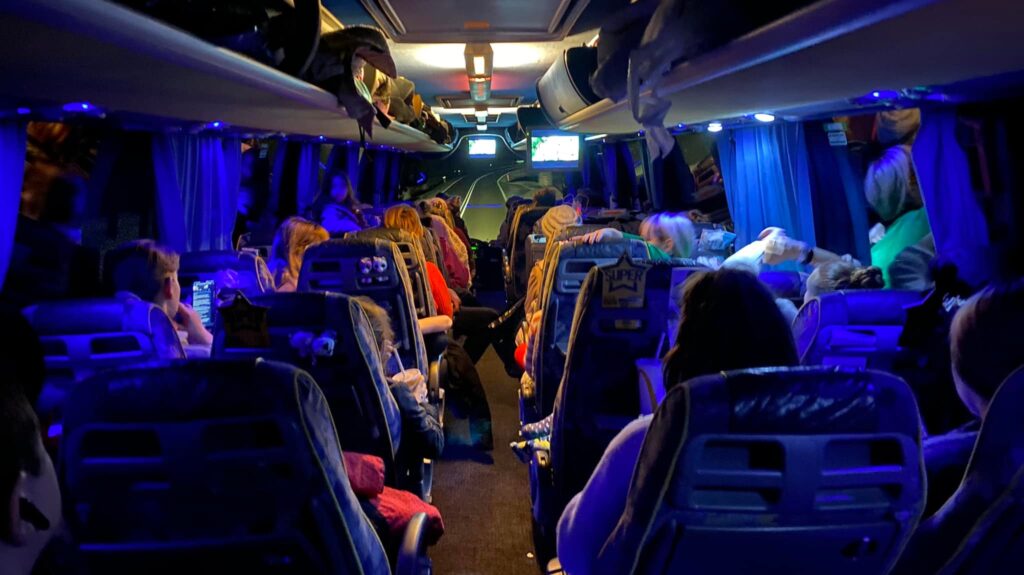
9 March 2022 – The RAF deploys two F-35s to Ämari Air Base
The UK’s Royal Air Force has deployed two F-35B Lightning aircraft to Ämari Air Base in Estonia, in support of NATO’s Baltic air policing mission.
“It’s fantastic to have the RAF here. For the Estonians, having extra allied aircraft and troops is a great support to them, particularly with regards to the regional security situation,” Ross Allen, the British ambassador in Estonia, said, according to the Royal Air Force’s press. “It adds to both deterrence and reassurance, so having the extra capability here is much appreciated. The reassurance that NATO has given has been absolutely crucial to the Estonians.”
The UK’s F-35 deployment follows that of the US, that deployed six F-15 fighter jets and also two F-35s to Ämari in January and February.
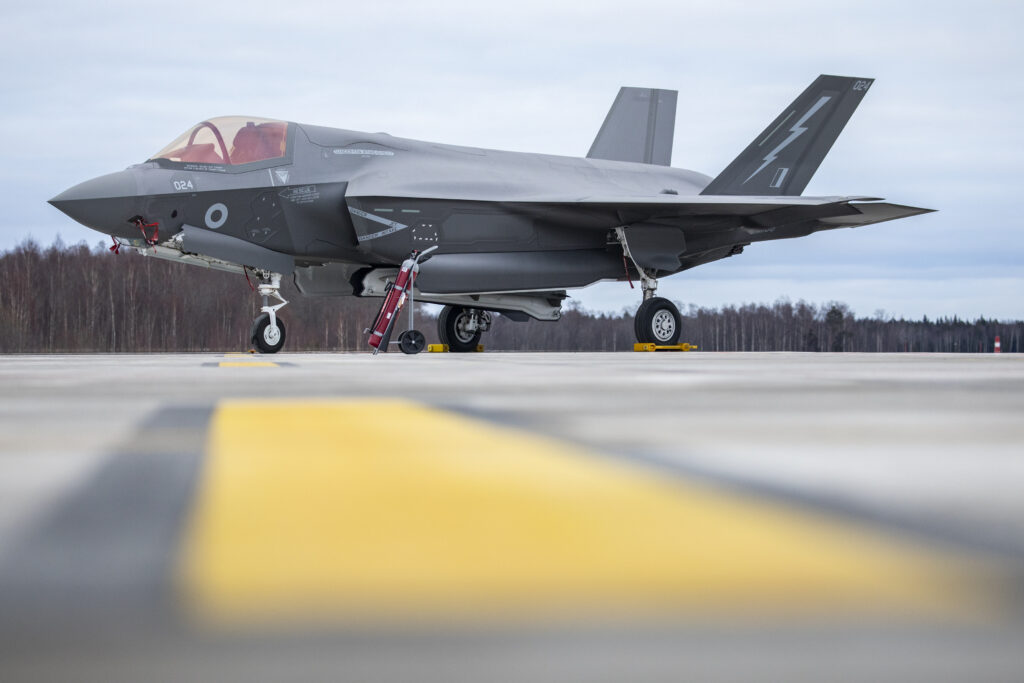
9 March 2022 – Tallinn allocates €150,000 to support Kyiv and Odessa
The Tallinn city government decided today to allocate €150,000 from the reserve fund to support the Estonian capital’s partner cities of Kyiv and Odessa in Ukraine.
A wide range of food produce, hygiene products and basic necessities are planned to be sent to the two cities as humanitarian aid, organised by the Red Cross. The city government will allocate €100,000 to cover the purchase of goods and the transport costs of humanitarian aid to Kyiv and €50,000 to support the people of Odessa.
The city government is also organising a donation of three ambulance vans to Ukraine.
9 March 2022 – The Estonian Gun Owners’ Association: suspend gun licences of the Russian citizens who live in Estonia
The Estonian Gun Owners’ Association has proposed that the gun licences of foreigners living or having the right of residence in Estonia who hold citizenship of the Russian Federation and its allies should be suspended immediately. As of 2020, there are 1,300 citizens of the Russian Federation living in Estonia who hold Estonian gun licences and firearms.
A representative of the Estonian Internal Security Service (known as KAPO in Estonian) told the public broadcasting that the proposal to revoke the gun licences of Russian citizens living in Estonia “deserves discussion”.
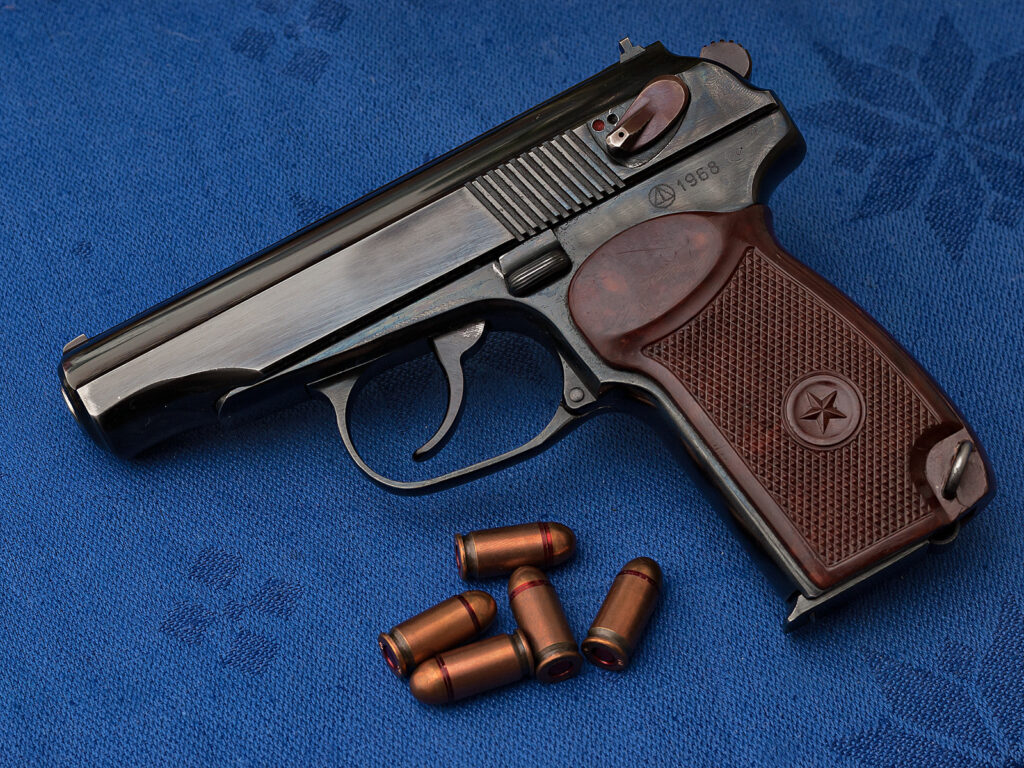
9 March 2022 – Estonia suspends e-residency applications from Russia and Belarus
The Estonian government has suspended the granting of Estonian e-residency status to Russian and Belarusian citizens to “prevent sanctions evasion and possible illegal activities”.
The admission of new e-residents from Russia and Belarus will be suspended and pending applications will be rejected. The Russian and Belarusian holders of a valid e-residence digital identity card will retain it, but the interior ministry said they will be “under the heightened scrutiny”. An independent e-residents association has condemned the decision, however.

9 March 2022 – Estonia commemorates the March 1944 bombings
Estonia has also experienced aerial bombings in the past. On 9 March 1944, the Soviet Air Forces started to bomb the Estonian capital, Tallinn, that, at the time, was occupied by Nazi Germany. Some 600-700 civilians died, over 600 were wounded and some 20,000 people were left homeless. Estonian World published an excerpt from the upcoming book, “Darkness in Tallinn: World War in Europe’s Forgotten City”, by Ian Thomson, an English writer.
8 March 2022 – What do Russians in Estonia think about the war in Ukraine?
In Estonia, fear of a Russian invasion is increasing; many ethnic Russians live in the town of Narva – Deutsche Welle is looking into what do they think.
8 March 2022 – Estonia allows Ukrainian refugees to apply for temporary protection
The Estonian government today approved a provision that allows Ukrainian citizens and their family members fleeing from the war to apply for temporary protection in Estonia. The aim of temporary protection is to simplify the living and work conditions for Ukrainian war refugees in the EU member states.
The opportunity to apply for temporary protection means simplified residence permit procedures can be applied to Ukrainians fleeing the Kremlin terror. In most cases, the decision is made within one day. Temporary protection can be applied upon arrival in Estonia by Ukrainians who lived in Ukraine prior to 24 February. The order will take effect on 9 March.
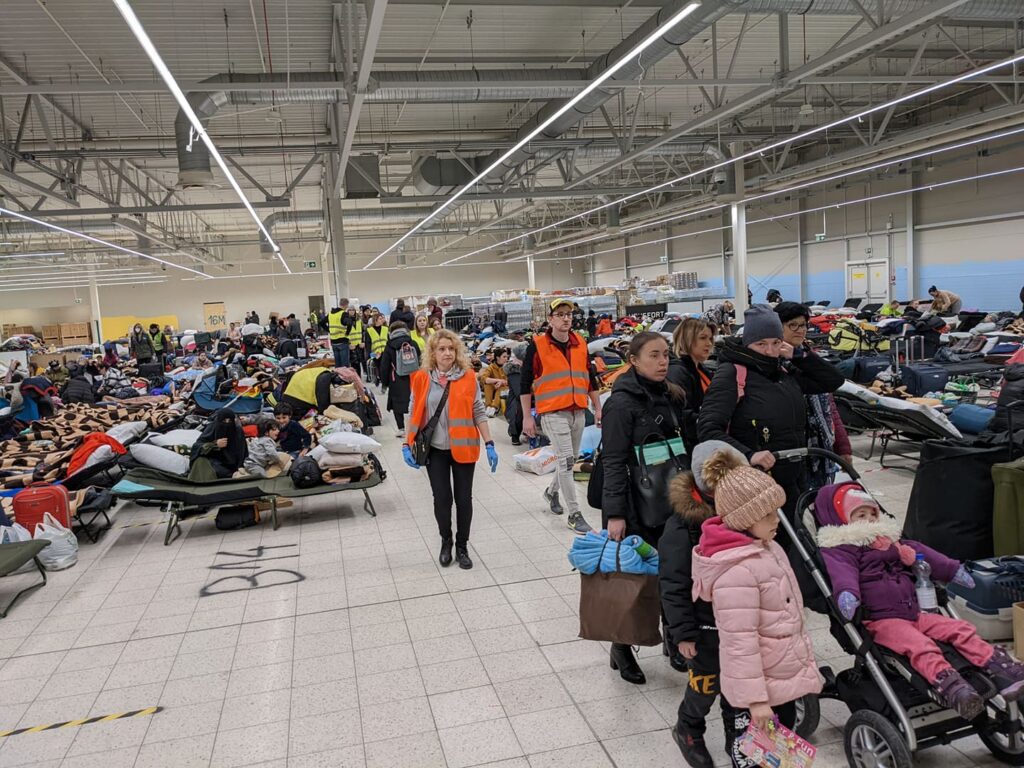
8 March 2022 – The US secretary of state, Antony Blinken, in Estonia
The US secretary of state, Antony Blinken, is on a visit to Estonia on 8 March; Blinken and the Estonian prime minister, Kaja Kallas, also gave a joint press conference.
At the press conference, Blinken reiterated that the US and NATO “will defend every inch of the NATO territory”. Kallas said, in reference to the Russia’s aggression, that “we need to be prepared for the worst”.
Kallas said “NATO needs to adapt quickly as well”. “Decisions we must make in the coming weeks and months need to include an upgraded strategy for defence in our region. This means permanently strengthening our defence on land, in air and at sea. That is why I also asked today to establish a permanent and meaningful NATO’s forward defence in the Baltic region,” she noted.
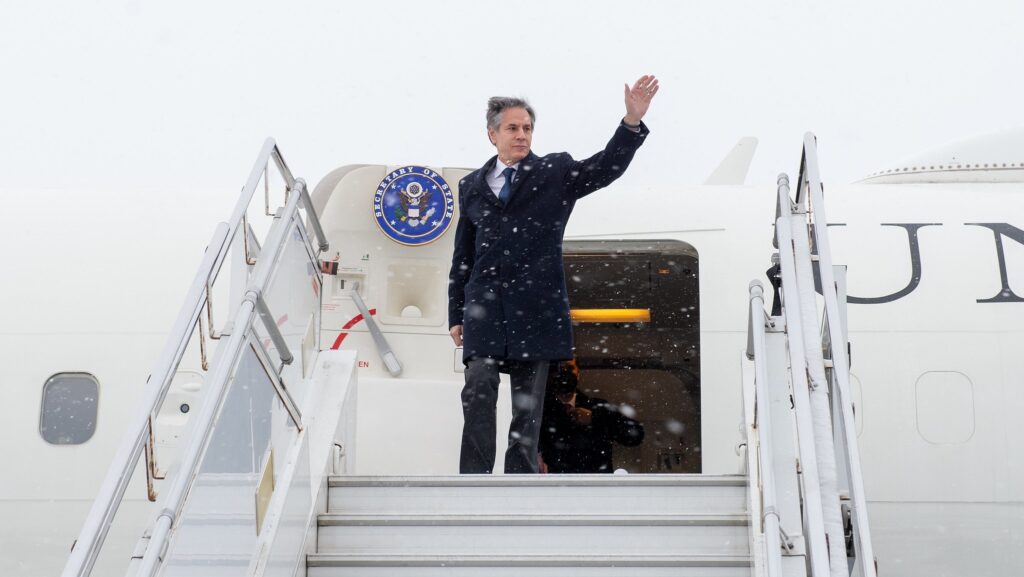
8 March 2022 – Arvo Pärt to Ukrainians: Forgive us for failing to protect you
Estonian composer Arvo Pärt issued a statement, in which the maestro addressed the Ukrainians and among other things, said, “forgive us for failing to protect you from a disaster unimaginable in our time”.
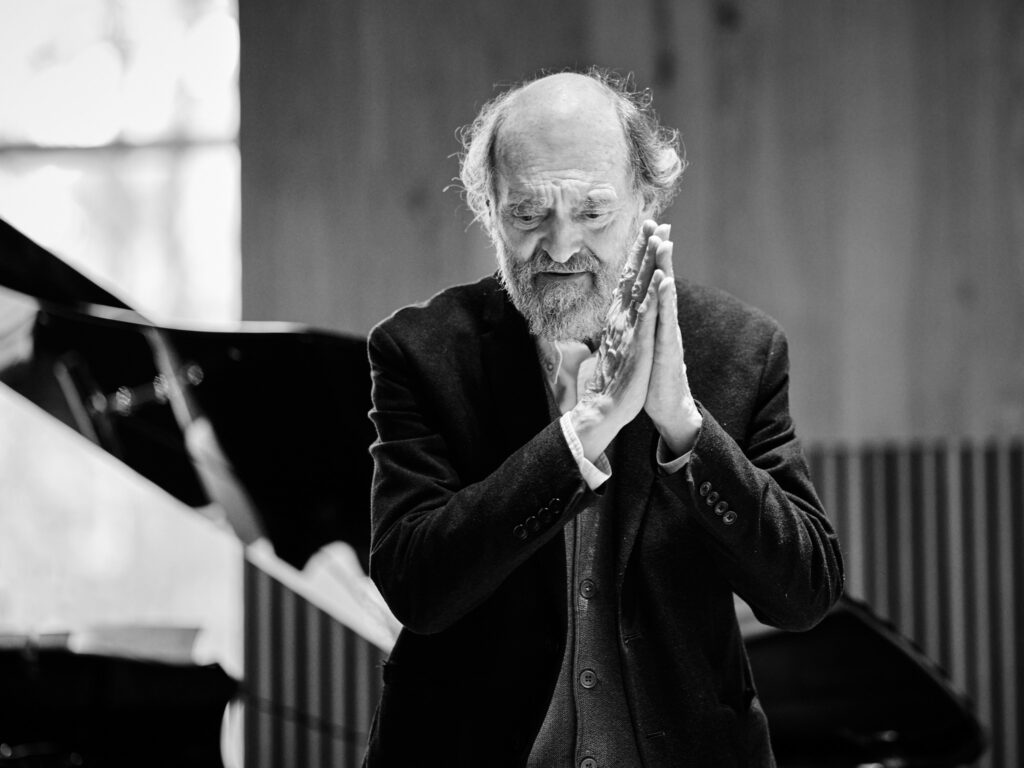
7 March 2022 – Over 5,000 Ukrainian refugees have arrived in Estonia, seek work
As of 6 March, 5,607 Ukrainian refugees have arrived in Estonia and they’re planning to stay in the country. They’re seeking work and the local Ukrainian community advises them to send their kids to Estonian-language schools, the Estonian daily, Eesti Päevaleht, writes.
“People have come to us, in the first days of their arrival, they come to the unemployment office and say, ‘I’m a nurse, how can I work?’,” Katrin Liivamets, an official at the unemployment office, told the newspaper. The employers are also very interested in offering work to the Ukrainian refugees, many have contacted the unemployment office and asked, how can they help them. Liivamets said one of the reason for the employers’ interest is the shortage of qualified workers that the Estonian employers have been facing.
In addition to the job seekers, around 2,000 children have come to Estonia and they will need to go to school. The Estonian education minister, Liina Kernsa, told the newspaper that the Estonian Ukrainian community suggested the kids shouldn’t go to Russian-language school, but Estonian ones.
7 March 2022 – The US considers sending air defence systems to NATO allies in Eastern Europe
The US is considering supplying critical air defence systems to NATO allies in eastern Europe as anxiety mounts that the Russians could consider launching missiles or aircraft against the alliance’s eastern flank, according to a US official familiar with current administration thinking.
There is no specific plan yet, but the idea centers around the concern that Russian missiles or aircraft might deliberately attack targets inside NATO territory at some point, if the Russian dictator, Vladimir Putin, decides those nations are a risk to his invasion because of their support for Ukraine. And because of close proximity of the airspace, there is also concern that air defence be available if there is inadvertent straying into NATO airspace.
The most likely systems that could be deployed by the US are likely to be the Patriot and the THAAD (Terminal High Altitude Area Defense) system that have successfully been used in the Middle East to help shoot down incoming ballistic missiles.
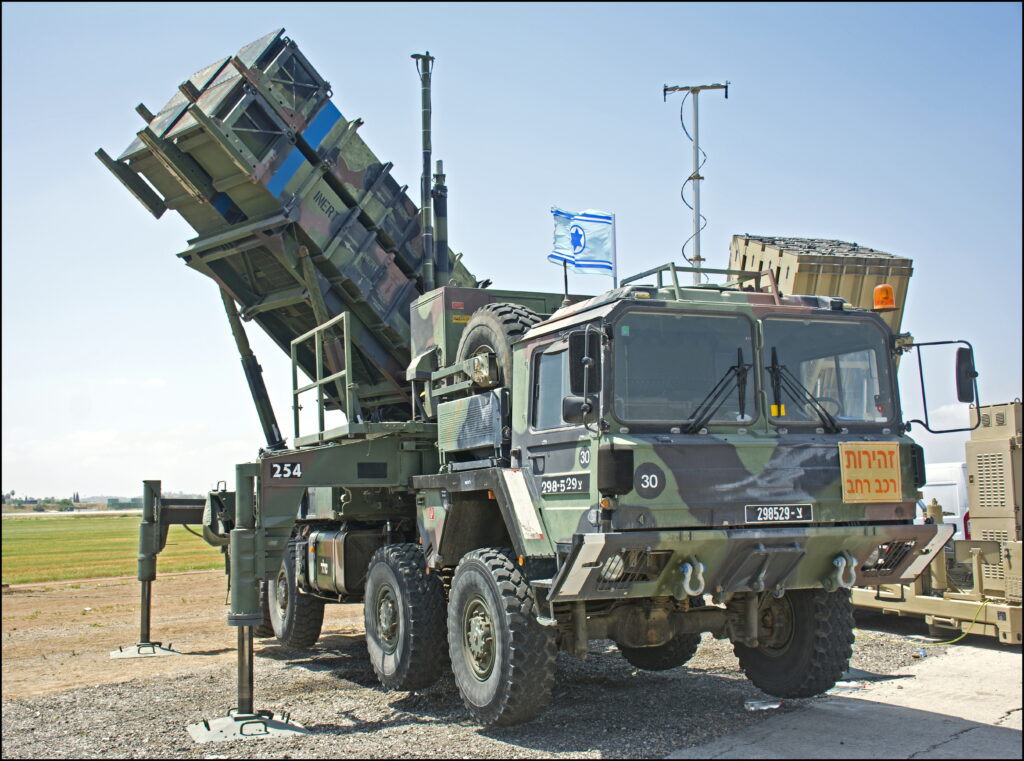
7 March 2022 – Europe launches a platform for reporting sanction violations
The European Commission has launched an online platform for reporting violations of sanctions – a so-called whistleblower tool. Whistleblowers can use the platform to anonymously report past, current or planned EU sanctions violations.
The EU has more than forty sanction regimes in place and their effectiveness relies on their proper implementation and enforcement, including in thwarting circumvention and evasion of sanctions. As the guardian of the EU treaties, the European Commission is in charge of monitoring the enforcement of EU sanctions across the Union.
7 March 2022 – The Bank of Estonia: the war in Ukraine affected energy prices
According to the Bank of Estonia, the country’s central bank, the Russian war against Ukraine has increased tensions in the commodity markets and this has particularly affected the price of natural gas and the electricity produced from it. Partly because of that, the consumer basket price in Estonia rose by 12% in February, and energy prices were up by 36% year-on-year.“
The economy has been performing well, but high inflation may start to slow economic growth down. Production by companies is affected by the decline in the Russian economy, as access to commodities is hindered and export opportunities are restricted. This may cause a short-term rise in prices until alternative suppliers are found. Growth in the Estonian economy will receive a boost as higher natural gas prices make oil-shale energy more competitive.”
7 March 2022 – Estonian PM Kallas: Estonia welcomes Finland’s accession to NATO with open arms
The Estonian prime minister, Kaja Kallas, had a meeting with her Finnish counterpart, Sanna Marin, in Tallinn this afternoon. Following the meeting, Kallas said at a press conference that “if the Finnish people decide to join NATO, we (Estonians) will be your biggest friends in the alliance, we’re welcome this decision with open arms”.
The Finnish prime minister, Sanna Marin, said there’s “no direct military threat against Finland”, but because of Russia’s action against Ukraine, the “mindset of Finnish people has changed” and the Finns are also discussing on how their relationship with Russia has changed. Marin said that with regards to Finland joining NATO, there will be “debates in the parliament and discussions in every parliamentary party, everything will happen in order”.
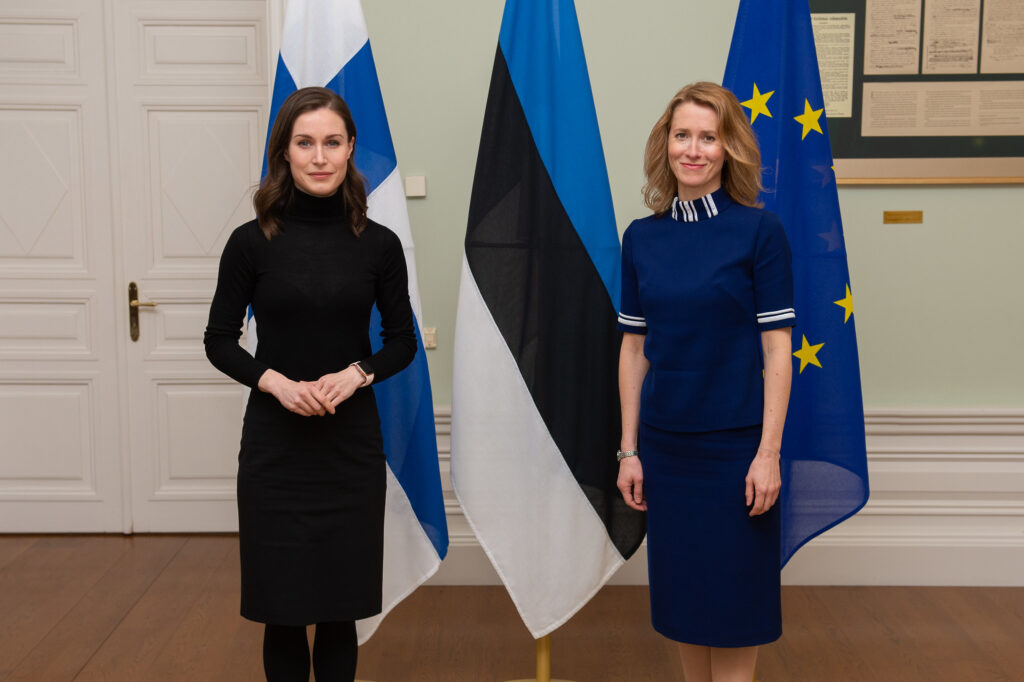
7 March 2022 – Over fifty Estonian citizens are still in Ukraine
The Estonian foreign ministry has information about more than one hundred Estonian citizens who have left Ukraine and are on their way to or have arrived in Estonia already, another fifty-one citizens have informed the ministry they were currently still in Ukraine. Twenty-three people have notified the ministry about their decision to stay for the time being; twenty-eight want to leave the country. Several Estonian journalists are also in Ukraine.
The number of people who have been able to cross the border to neighbouring countries is growing daily. At the same time, there are also new registrations by people who have not come forward before. The Estonian foreign ministry forwards information about the various possibilities to those wishing to leave, using text messages, e-mail or phone. “We ask all Estonian citizens who are currently in Ukraine and want to leave, let the [foreign ministry] know and regularly check their e-mails and phones, if possible. The situation is volatile and chances to leave may come and go rapidly, thus information may come at short notice.”
“We ask Estonian citizens still in Ukraine to leave as soon as possible and return to Estonia. In the light of Russia’s military aggression, we advise against all travel to Ukraine. If you have decided to go to Ukraine despite the state of war, please note that the possibilities of the [foreign ministry] to provide assistance are limited.”
7 March 2022 – Estonia’s defence minister: I personally support a no-fly zone over Ukraine
The Estonian defence minister, Kalle Laanet, said at the Estonian Television’s morning programme that he personally supports the closure of the airspace over Ukraine.
“If you send fighters to actually defend the airspace, that is an additional argument for intervention. At the end of the day, I dare not say whether NATO’s decision will be either way. But if you ask my opinion, personally I would make that move. My opinion is yes,” Laanet said.
He specified that if the airspace of Ukraine was to be defended, this would require the agreement of the 30 NATO member states. “This means that these 30 member states, NATO, will take military action against Russia. It also means that Estonia will then be at war with Putin’s Russia. This decision is being discussed, but it is not an easy decision to make. I would not dare to say today that there will be no decision – who knows, maybe one day there will be.”
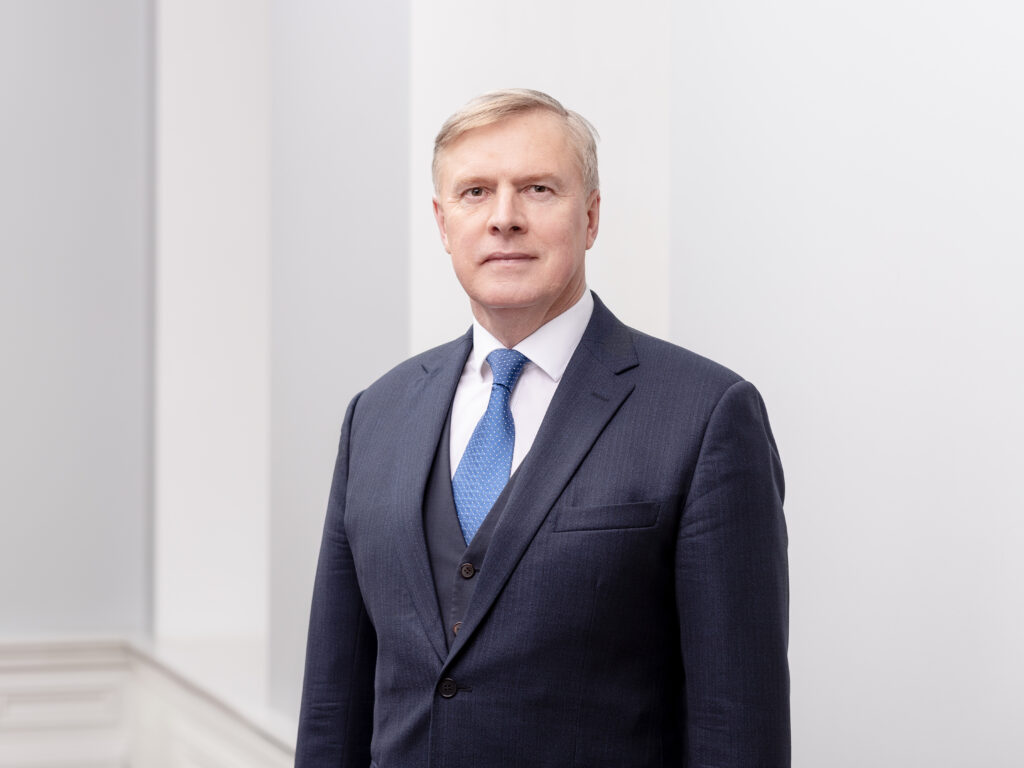
7 March 2022 – Public survey: Seventy-seven per cent of the Estonian people support accepting Ukrainian refugees
According to a poll conducted by Turu-uuringute AS, a public opinion research company, 77 per cent of Estonian people are in favour of accepting war refugees from Ukraine if necessary. Among the ethnic Estonians, 91 per cent are in favour. However, just 48 per cent of respondents from other nationalities support accepting the Ukrainian war refugees.
The poll also shows that 58 per cent of respondents believe that Estonia is also threatened by Russia’s attempts to regain influence in neighbouring countries. This view was shared by 73 per cent of ethnic Estonians and 27 per cent of respondents of other nationalities.
The likelihood of ethnically or religiously motivated clashes between ethnic groups is not seen as a very likely threat, with 36 per cent of respondents fearing this. Perceived security also fell – just 54 per cent of respondents feel safe in Estonia, while 70 per cent feel personally safe.

7 March 2022 – Estonia ready to take 10,000 Ukrainian refugees
The Estonian social protection minister, Signe Riisalo, told the Estonian Public Broadcasting Estonia was ready to provide safe haven for 10,000 Ukrainians. So far, approximately 4,500 Ukrainians – a third of them children – who have fled the Russian attacks, have arrived in Estonia. The state has accommodated 806 refugees temporarily in hotels.
According to the minister, the main concern about accepting refugees is financial and how the European Union could help Estonia and other countries financially to support refugees is “currently under discussion”. The minister also emphasised that rather than donating goods, the best way to help Ukrainian refugees is to donate money to aid organisations that then sort out the rest.
There are currently reception centres in Tallinn and Tartu, but the minister said that if the need increase, reception centres will be opened also in Rakvere and Pärnu. Estonia is also offering psychological support to people affected by the war.
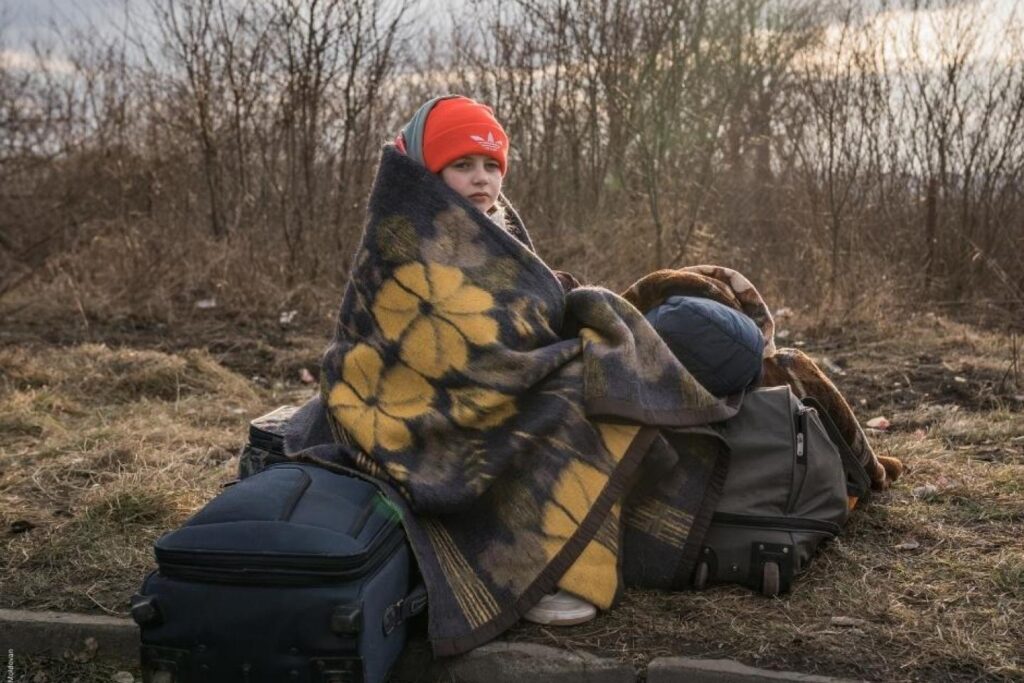
7 March 2022 – Estonian interior minister: Putin wants to split the society with false information
Kristian Jaani, the Estonian interior minister, said that Russia’s messages about “anti-Russian psychosis” are propaganda lies of the regime of the Russian president, Vladimir Putin, that is being used to split the Estonian society.
“Estonia is serious about guaranteeing the safety of all Estonian people and the diplomats of other countries currently here,” Jaani said, according to Delfi. “Let’s remember that what’s happening in Ukraine is Putin’s war, not of the Russian people. People of many ethnicities live in Estonia and Putin has made them all suffer with his war. We’re all Estonian society – we’re here together with Estonians, Russians, Ukrainians and many other ethnicities. All these people of different ethnicities who live in Estonia are our people.”
“These times we all need to care about each other, understand and together peacefully stand against Putin’s war. The false information of Putin’s regime is meant to split us and reduce our sense of security. Reduce our strength among the peoples of the world who are against Putin’s war.”
6 March 2022 – Officials: there is no threat against Estonia
The director-general of the Estonian defence ministry, Kusti Salm, and the chief of the country’s military intelligence, Margo Grosberg, today said at a press conference that there was no threat against Estonia as of now. According to Salm, Russia has deployed its forces from the Estonian border to Ukraine, NATO has increased its readiness and the number of the troops, and Estonia has a strong reserve force that can be deployed within 48 hours and they’re well armed and motivated.
“Altogether, in the recent weeks, the number of the NATO forces has increased by 15,000. In addition, there are over 100 fighter jets at NATO’s eastern flank and 120 ships in the sea. The British have deployed an additional battalion to Estonia and it should arrive in the beginning of next week,” Salm said.
However, he added that even though there is no military threat against Estonia, there is danger in the information front. “Please be critical of your sources. Check where you’re getting your information. Don’t share suspicious information in social media.”
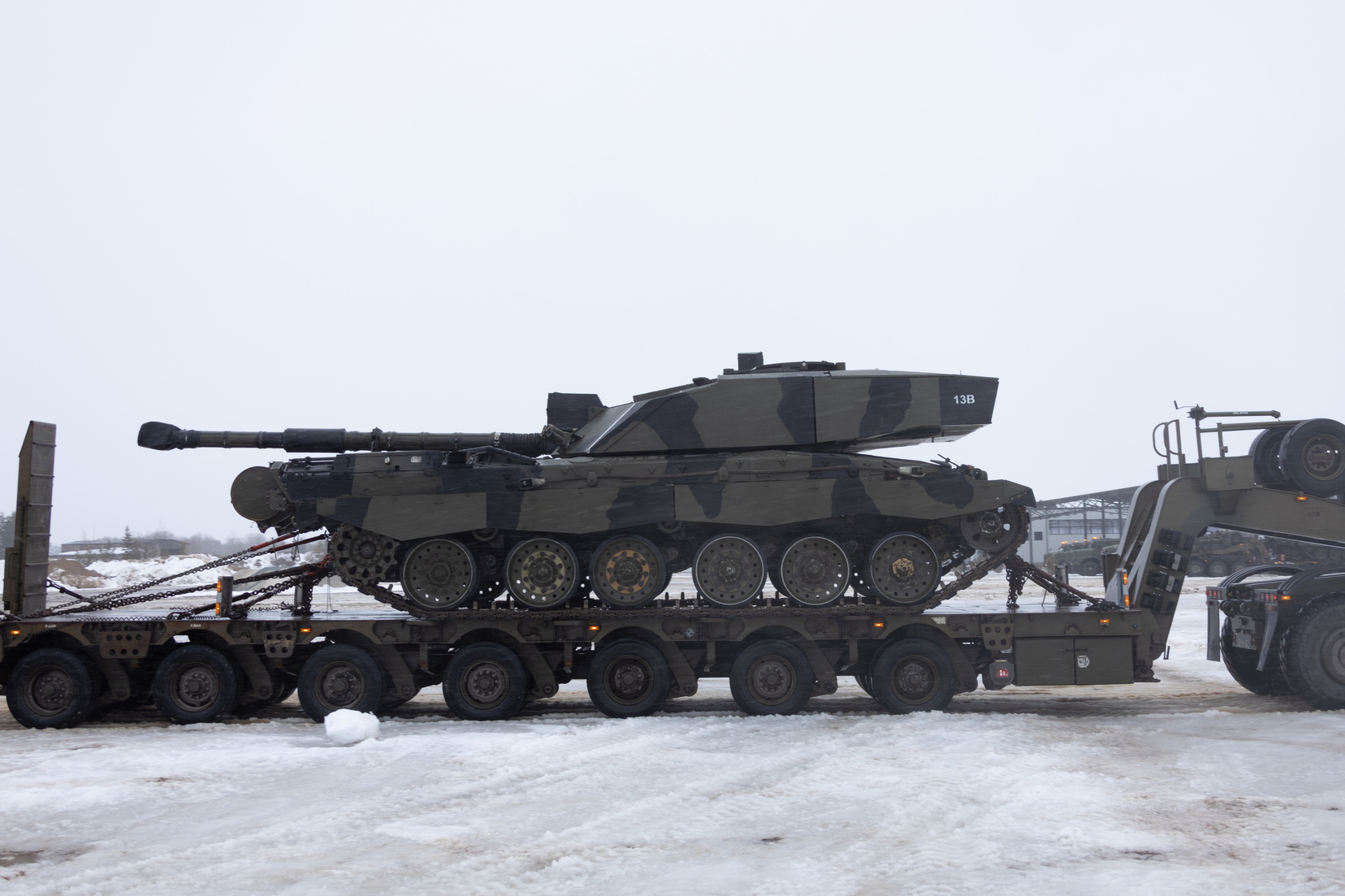
6 March 2022 – Estonian ambassador leaves Ukraine
The Estonian ambassador to Ukraine, Kaimo Kuusk, left the country today and is going to Tallinn, the Estonian capital, where he’ll continue his work. Earlier, he left the embassy in Kyiv and went to Lviv.
“Taking into the account Estonia’s and its allies’ assessments of danger and the opportunities to work in Ukraine, we decided that I’ll temporarily continue work outside of Ukraine. Ukraine is in a war with Russia and there are no safe places left in the country. It was a deliberate decision to leave the risk area. I suggest others do that as well – think over your necessity to be in Ukraine and, if an opportunity arises, leave the country,” Kuusk said, according to Delfi. He’s planning to return to Ukraine the first chance he gets.
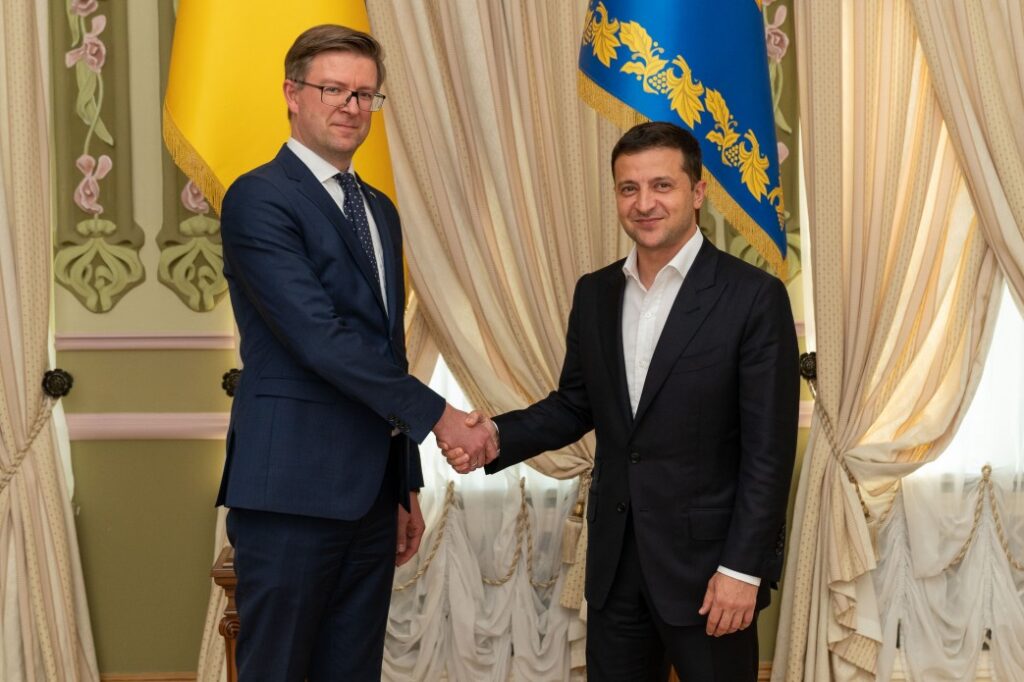
6 March 2022 – Estonian security expert: looks like Putin’s entire army is stuck in an elevator
Estonian security expert Eerik-Niiles Kross is writing in Eesti Päevaleht that much of the news coming from Ukraine are, at least these days, good, and there’s too much positive to get depressed.
“We have reports about at least four Russian so-called elite units being defeated by the Ukrainians. The so-called elite units are turning themselves in [to the Ukrainians]. Russians all over the country are stuck in the mud with their motorcades, they’re out of gas, the boys don’t understand where they are, their tanks are being destroyed. In many places, [the Ukrainians have] taken back territory and Kyiv is less surrounded today than it was yesterday. The situation is still very complex, but Kyiv holds ground,” Kross wrote.
“The number of volunteers joining the army is growing. The Ukrainian defence ministry claims they have 700,000 men and women in their armed forces. And in Kherson, that was declared having been conquered by the Russians, a massive demonstration happened where people dominated the city with Ukrainian flags. At the same time, some Russian soldiers who wanted to go on the roof of a skyscraper to ‘control the situation’ were left stuck in an elevator. There’s a funny photo of them, taken from the security camera.”
“Its starting to feel like Putin’s entire army is stuck in an elevator.”

6 March 2022 – Estonia’s military intelligence chief: don’t take Russia’s threats too seriously
The chief of the Estonian military intelligence, Colonel Margo Grosberg, told Delfi after Russia’s threats about the Baltic states’ “anti-Russian psychosis” that he wouldn’t take Russias threats too seriously. “They are relatively vocal and it’s not the first time they’re making such threats,” Grosberg said, adding that holding the Baltics “responsible” would be first and foremost an attack against a NATO member and that would have completely different consequences than the current war in Ukraine.
6 March 2022 – Latvian-produced Stolichnaya vodka changes its name to Stoli
The Latvia-based producer of the world-famous Stolichnaya vodka has changed its name to Stoli, saying it’s denouncing the Russian aggression and “unequivocally condemn the military action in Ukraine and stand in support of the Ukrainian people”.
“I have personally experienced persecution by Putin’s regime and I share the pain of Ukraine and its people,” Yuri Shefler, the founder of Stoli Group, said.
Shefler was born in Oryol, Russia, but in 2000, he was exiled from the country because of his opposition to the Russian president, Vladimir Putin. He moved the production of Stolichnaya vodka from Russia to Latvia in 2001. He has not returned to Russia since. “Today, we have made the decision to rebrand entirely as the name no longer represents our organisation,” Shefler said. “More than anything, I wish for ‘Stoli’ to represent peace in Europe and solidarity with Ukraine.”

5 March 2022 – Fake news about Ukrainians attacking Russians in Estonia circulate in social media
Fake news about Ukrainians attacking Estonian Russophones circulate in social media – both on Facebook and Instagram; police say none of these are true, according to the Estonian Public Broadcasting.
“Today’s examples are shared posts about an elderly lady being attacked in a bus to Kopli [in Tallinn]. They’re specifically saying it was bus number 73 that actually does go to Kopli. There was an example of a woman being attacked in Pae Park, actually, being stabbed. There was an example of Ukrainians humiliating Russophones at Reidi Road. None of these events were true, police have checked them all,” Aivar Alavere, the police board’s crisis manager, told the public broadcasting.
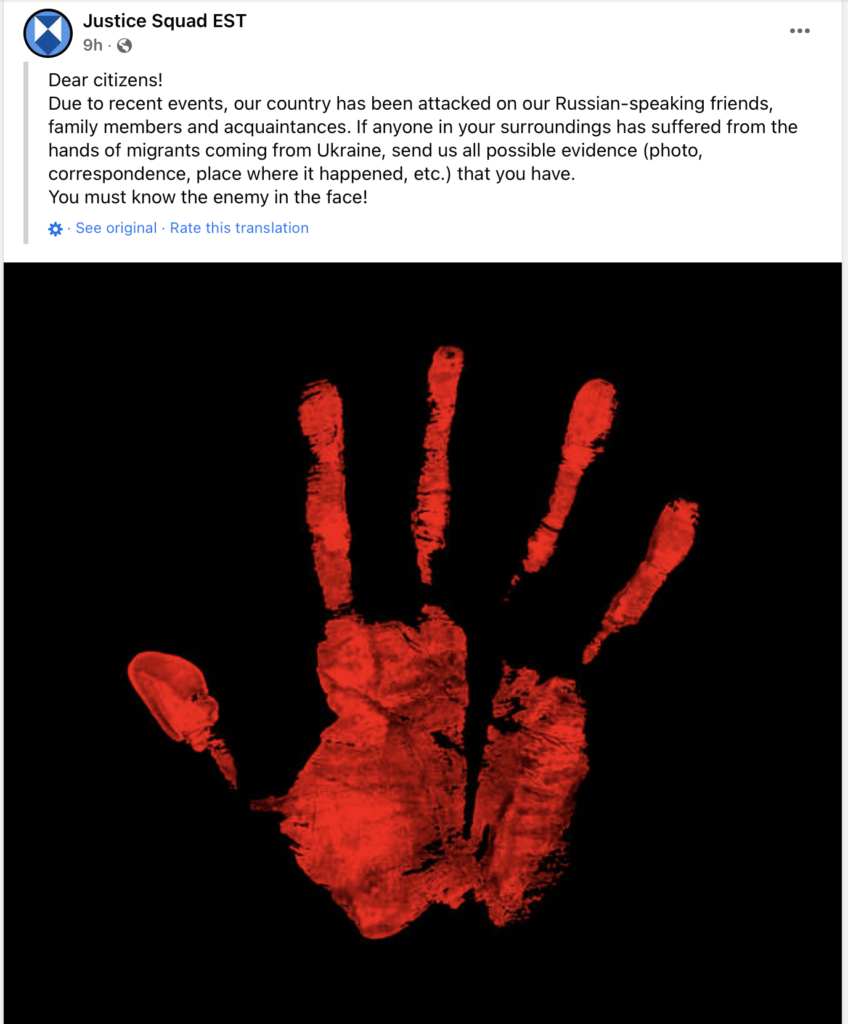
5 March 2022 – Russia warns the Baltics about the consequences of “anti-Russian psychosis”
A representative of the Russian foreign ministry, Maria Zakharova, announced today that due to the “situation in Ukraine”, the hostility “from the countries in the front row of anti-Russian hysteria – Latvia, Lithuania and Estonia” has significantly grown, adding that Russia has been “poured over with lies, slander and forgeries” by the Baltic states.
“We’re warning Vilnius, Riga and Tallinn that they’re responsible for the consequences of their anti-Russian psychosis. We’re demanding these countries’ authorities immediately take measures to protect Russia’s diplomatic and consular offices and their employees,” she said. She added that statements by the leaders of the Baltic states are full of “caveman-like Russophobia” and they’re offensive towards Russia, its leadership and people. “There are dangerous calls for using force against Russia. The Russian president, Vladimir Putin, has already been very clear about that. We hope that his words calm down the fireheads.”
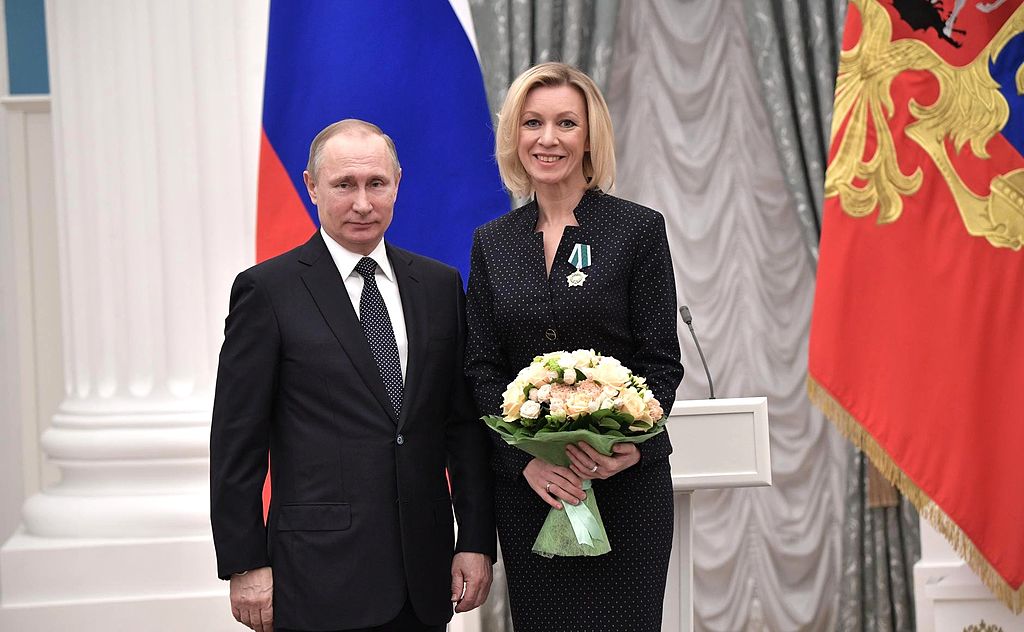
5 March 2022 – Ukraine to be accepted as a contributing participant to NATO CCDCOE
The NATO Cooperative Cyber Defence Centre of Excellence – also known as the CCDCOE – has agreed to Ukraine’s membership in the organisation as a contributing participant.
“Ukraine’s presence in the centre will enhance the exchange of cyber expertise, between Ukraine and CCDCOE member nations. Ukraine could bring valuable first-hand knowledge of several adversaries within the cyber domain to be used for research, exercises and training,” Colonel Jaak Tarien, the director of the NATO Cooperative Cyber Defence Centre of Excellence, said in a statement.
The CCDCOE is a NATO-accredited cyber knowledge hub, research institution, and training and exercise facility. The Tallinn-based international military organisation focuses on interdisciplinary applied research, as well as consultations, training and exercises in the field of cyber security.
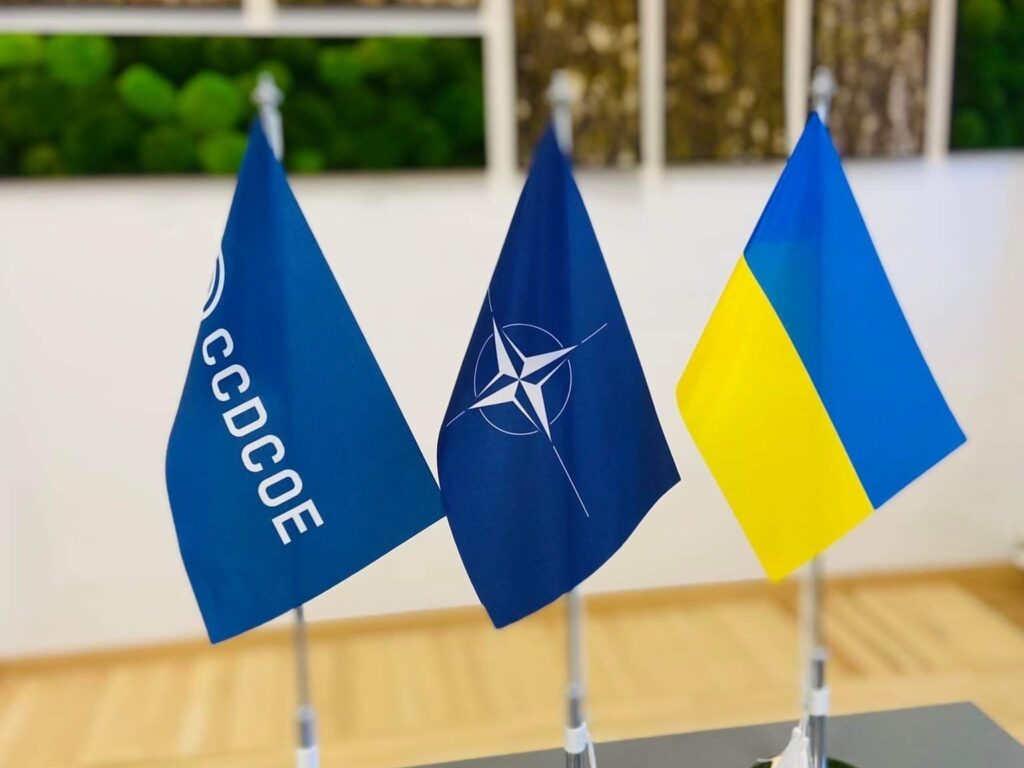
5 March 2022 – Estonians have donated almost €6 million to Ukraine
As of yesterday afternoon, the biggest organisations helping Ukraine had collected €5.9 million in donations from Estonia; since there are also a number of smaller charity projects, the sum of the Estonian donations is probably larger and it’s steadily growing, the Estonian Public Broadcasting reported.
5 March 2022 – Estonian police greets Ukrainian refugee children with cuddly toys
The Estonian Police and Border Guard said that “we cannot be responsible for what the eyes of these children have seen in Ukraine, but it is in Estonia’s hands that these 500 children are safe”. “Our policemen working at the Ikla and Valga border crossing points cheer up the children of the families who have come from Ukraine, with a cuddly toy,” the Estonian police said on its official Facebook page.
Approximately 2,000 people have arrived in Estonia from Ukraine in recent days, 500 of them children.
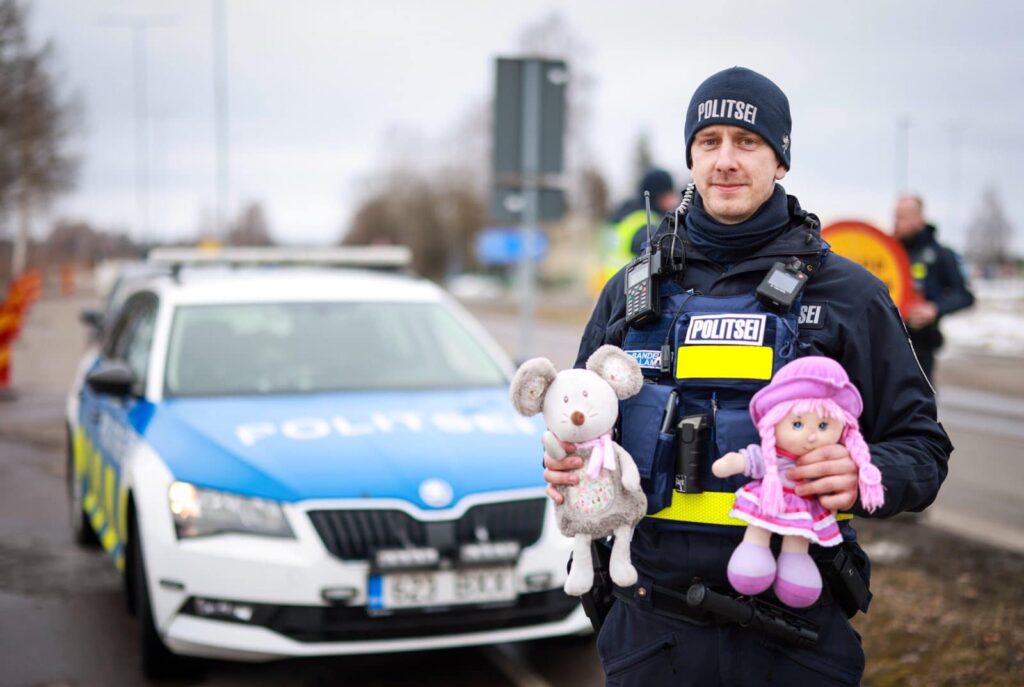
5 March 2022 – Estonian World falls victim of a cyber attack
The first time in its ten-year existence, Estonian World fell victim of a cyber attack, probably perpetrated by Russian hackers due to our ongoing coverage and our profound condemnation of the unprovoked Russian war against Ukraine. For most of 4 March, the Estonian World website was completely inaccessible, and we apologise for that to our readers and supporters.
3 March 2022 – Tallinn Centre Party and Social Democrats against holding Putin responsible as a war criminal
The Tallinn City Council today adopted a resolution that condemns the Russian war against Ukraine, but due to the votes of the members of the Centre Party and the Social Democrats, a paragraph about suing the Russian dictator, Vladimir Putin, as a war criminal, was left out of the resolution.
Estonian MP and a member of the city council, Urmas Reinsalu (Isamaa) suggested the resolution should also say that “the Russian president, Vladimir Putin, is personally with his companions responsible for a war crime that doesn’t expire and should be held responsible”. Just 25 city council members voted for the addition, 42 voted against and nine didn’t vote. According to Delfi, the city council members who voted against the amendment were largely from the Centre Party and the Social Democrats.
3 March 2022 – Estonian-owned cargo ship sinks near Odessa, Ukraine
Estonian-owned cargo ship Helt sank today near the Ukrainian port city, Odessa, evidently because of an explosion aboard. The ship was sailing under the flag of Panama and didn’t carry any Estonian crew members. The Estonian foreign ministry told the country’s public broadcasting that what caused the ship to sink was unclear; however, all six crew members were rescued.
According to Reuters, the ship sank after an explosion. The British tabloid, the Daily Mail, reported that it hit a mine. The Ukrainian authorities say the Russian naval forces wanted to use the ship as a shield.
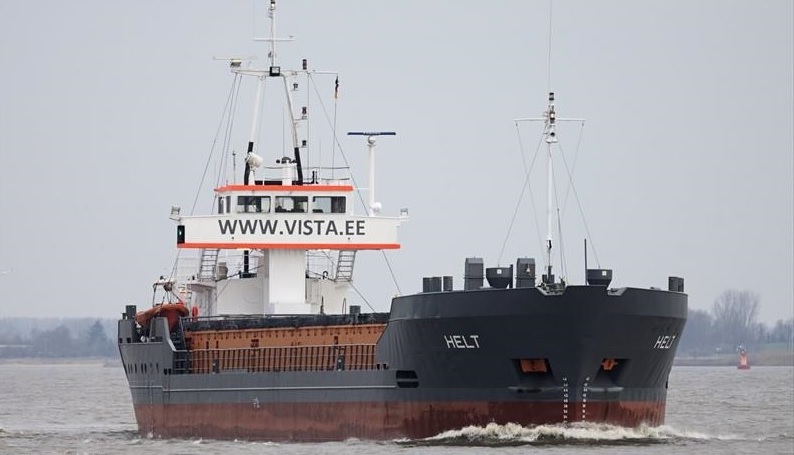
3 March 2022 – Estonia opens border checkpoints to help Ukrainian refugees
Estonia is imposing a temporary control on the Estonian-Latvian border with the purpose of streamlining the entry of the people fleeing the war in Ukraine and their initial contact with the country.
The Estonian interior minister, Kristian Jaani, said that with the re-establishment of temporary checkpoints, assistance for Ukrainians fleeing the war could already start at the border. “Checks at the border can be a bit time-consuming and we apologise for that in advance, but our goal is, by no means, to disrespect Ukrainian citizens. On the contrary, it gives us a better overview of the arrivals and we can provide war refugees with the information they need already at the border and direct them to basic services. For the last week, we have done a lot to make Ukrainians arriving in Estonia feel welcome and safe here,” he said.
The temporary checkpoints will be re-established between Estonia and Latvia at four locations, three in Valga and one in Ikla, for an initial period of ten days. Citizens of Estonia and the European Union must also be prepared to show their identity documents at the checkpoints.
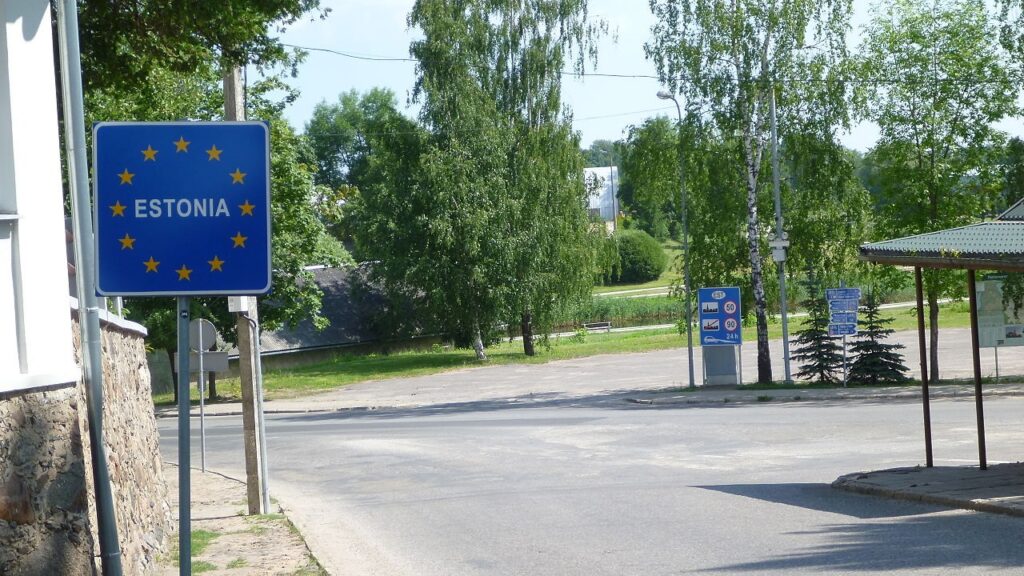
3 March 2022 – Estonia bans assisting Russian and Belarusian armed forces
The Estonian government today banned joining, providing military or non-military assistance to, or otherwise participating in the activities of the armed forces or armed units of Russia or Belarus. The purpose of the sanction is to protect Estonian security and to support international security and the restoration of peace by preventing the recruitment of new people to the aggressors of the conflict or providing them with any form of assistance.
“The prohibition to join, assist in, or otherwise participate in the activities of the armed forces or armed units of Russia or Belarus applies to everyone in the territory of Estonia, as well as to Estonian citizens and legal entities registered in Estonia abroad. The Penal Code allows for a fine or up to five years’ imprisonment for violating a government sanction,” the government said.
3 March 2022 – Over a hundred Estonian citizens have left Ukraine
Over a hundred Estonian citizens have left Ukraine and are on their way to Estonia or already in Estonia, the Estonian foreign ministry said. There are still 61 Estonian citizens in Ukraine who have let the foreign ministry know of their location, and 23 of them have reported that they’re staying the country. According to the ministry, 38 Estonian citizens have expressed their desire to leave Ukraine. Many of them are already on their way towards the Ukrainian western border.
“We ask that all Estonian citizens in Ukraine, wishing to leave, would inform the foreign ministry and tend to their emails and phone calls. The situation is volatile and the options for leaving arise and change very quickly, so it’s impossible to give long-term information,” the foreign ministry said.
3 March 2022 – Tartu ends cooperation with Russian sister cities
The Tartu town government today submitted to the town council a draft decision proposing the ending of cooperative relations with Pskov and the Vasileostrovsky District of St Petersburg.
According to the mayor of Tartu, Urmas Klaas, under the present circumstances the only option is to end such cooperation. “We consider the military aggression of the Russian Federation in Ukraine and the war crimes committed there to be unacceptable, and therefore it is not possible to continue our current cooperative relations,” Klaas said.
The agreement on cooperation and development of friendly relations was signed with Pskov in 2000, and in 2004, Pskov was declared an official twin town of Tartu. The Declaration of Cooperation between Tartu and the Vasileostrovsky District of St Petersburg was signed in 2006.
3 March 2022 – Estonia supports giving Ukraine a clear signal of its EU membership prospects
The Estonian government today confirmed its support for giving Ukraine a clear signal of its prospects of becoming a member state of the European Union and granting it the status of a candidate country.
3 March 2022 – Estonian MEP Terras asks Borrell to resign over the “EU fighter jets for Ukraine” blunder
Riho Terras, an Estonian member of the European Parliament (Isamaa) and a former commander of the Estonian Defence Forces, said he was going to send a letter to Josep Borrell, the EU’s foreign policy chief, asking for him to resign over the empty promises given to Ukraine; Borrell promised the EU will send “fighter jets” to help Ukraine, but ultimately left the Ukrainians empty-handed.
On Sunday, Borrell said at a press conference that the EU countries would send “fighter jets” to Ukraine at Kyiv’s request to help it counter the Russian air and land assault. “We’re going to provide even fighting jets. We’re not talking about just ammunition. We are providing more important arms to go to a war,” Borrell said. But it turned out to be an empty promise, angering Ukrainians who are currently fighting hard to defend their country against the Russian military forces.
Riho Terras said on Wednesday at an online discussion, organised by his party’s Parempoolsed (Right-Wingers) wing, that he will send a letter to Borrell, demanding his resignation due to his blunder about the promised fighter jets.
2 March 2022 – Ukraine has received the second batch of Javelin anti-tank missile systems, donated by Estonia
The second batch of Javelin anti-tank missile systems donated by Estonia has reached Ukraine, the Estonian defence ministry has announced. The first batch arrived in Ukraine on 18 February, bolstering the country’s defensive military capabilities.
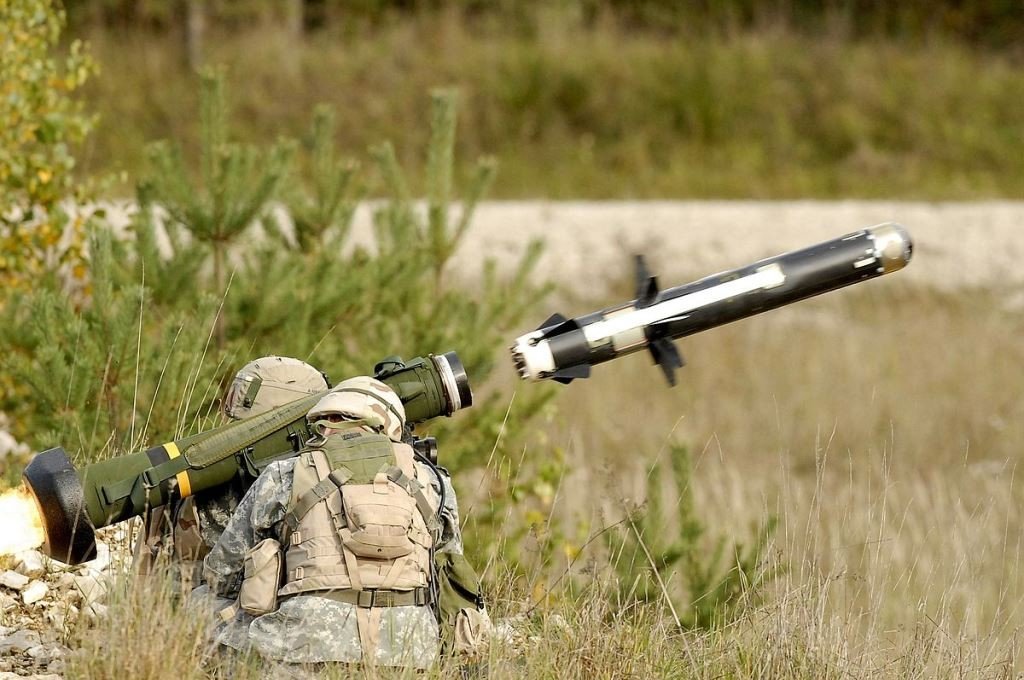
2 March 2022 – The US secretary of state, Anthony Blinken, to visit Estonia
The US secretary of state, Antony Blinken, will travel to Belgium, Poland, Moldova, Latvia, Lithuania and Estonia from 3 to 8 March. “The trip continues extensive consultations and coordination with our NATO allies and European partners about the Russian Federation’s continued premeditated, unprovoked, and unjustified war against Ukraine,” the US Department of State said in a statement.
Blinken will travel to Tallinn on 8 March and is due to meet with the Estonian president, Alar Karis, the prime minister, Kaja Kallas, and the foreign minister, Eva-Maria Liimets.
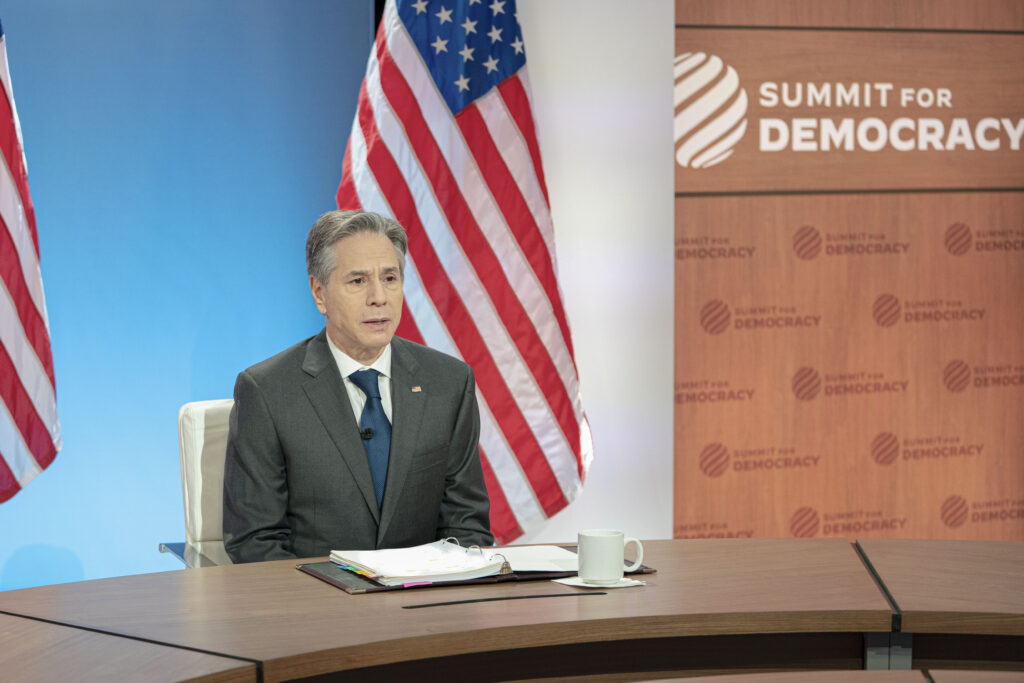
2 March 2022 – Estonian conductor Tõnu Kaljuste: In NATO, we are like classmates who will look away, when a guy from a parallel class gets beaten up
Tõnu Kaljuste, a Grammy-award winning Estonian conductor, expressed his frustration at the Russian invasion of Ukraine and about NATO’s seeming inability to stop the war, in a Facebook post.
“In NATO, we are like classmates who have sworn on oath to protect every one of our classmates who gets beaten up at the school party. In case someone is beaten up in a parallel class, we will supply him with boxing gloves and plasters. But, if he is beaten up so badly that he is bleeding, we will look at the beaten person and say: ‘It’s a pity you are not in our class, otherwise we could help you more, so just resist!’,” Kaljuste wrote.
2 March 2022 – Tallinn’s refugee reception centre to help Ukrainian refugees
The city of Tallinn runs a refugee reception centre, where the city and the Estonian Refugee Council cooperate to meet the primary needs of the refugees from the war in Ukraine.
2 March 2022 – Tallinn University of Technology starts a scholarship fund to support Ukrainian students
Tallinn University of Technology – also known as TalTech – has established a scholarship fund with the aim of supporting both international students who are Ukrainian citizens and already studying at the university, and those whose studies have been interrupted due to the Russian invasion of Ukraine and who want to continue their studies in TalTech’s study programmes.
2 March 2022 – Estonia co-hosts a large economic development summit to support Ukraine
Estonia is to co-host one of the largest economic development organisations’ summits on 3 March that is to explore ways that the international economic development community can navigate the crisis while supporting Ukraine. Among others, two Ukrainian ministers – Aleksander Griban, a deputy minister at the economy ministry and Anatolii Kutsevol, a deputy state secretary – will be speaking at the event.
2 March 2022 – Estonian NGOs that are helping Ukrainians
Several Estonian NGOs are helping the Ukrainians in the conflict areas as well as transporting the Ukrainian refugees to Estonia; Estonian World gives an overview of the organisations and how people can offer their help.
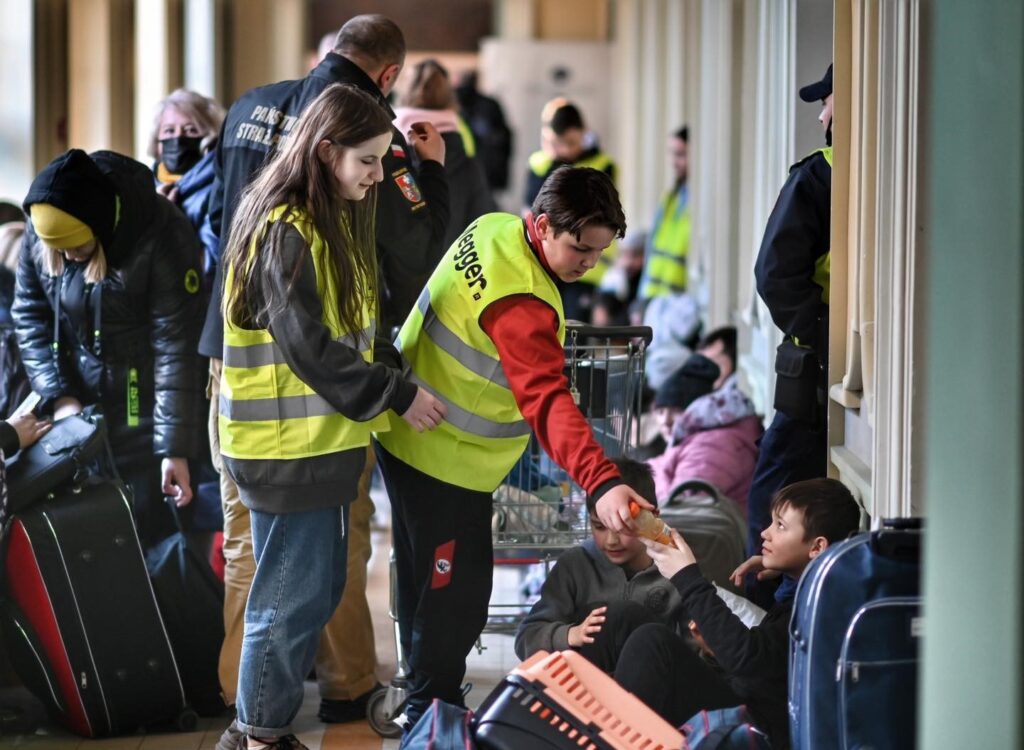
2 March 2022 – President Karis: We do not recommend Estonians to join the fight in Ukraine
The Estonian president, Alar Karis, told Estonian World that the country’s official position is that it is not advisable for Estonians to join the fight in Ukraine against the Russian invasion. “Today our official position is that it is not advisable to go to Ukraine. But understandably, people are free to make their own decisions, but nationally we do not recommend it,” Karis said, following his meeting with the NATO Secretary General, Jens Stoltenberg, in Tallinn on 1 March.
Karis emphasised that every single person could support Ukrainians through humanitarian aid, as there are now many ways to help. “If you have friends in Ukraine, call them and ask them if they need help, or check if they could come to Estonia and stay here during the crisis,” the president noted.
The president said that he had thanked Stoltenberg “for keeping NATO together”, adding that “hopefully this unity will continue not only during the crisis, but also after the crisis”. “Obviously we need to look also at a more permanent presence of NATO forces here in Estonia, not just a temporary one,” Karis noted.
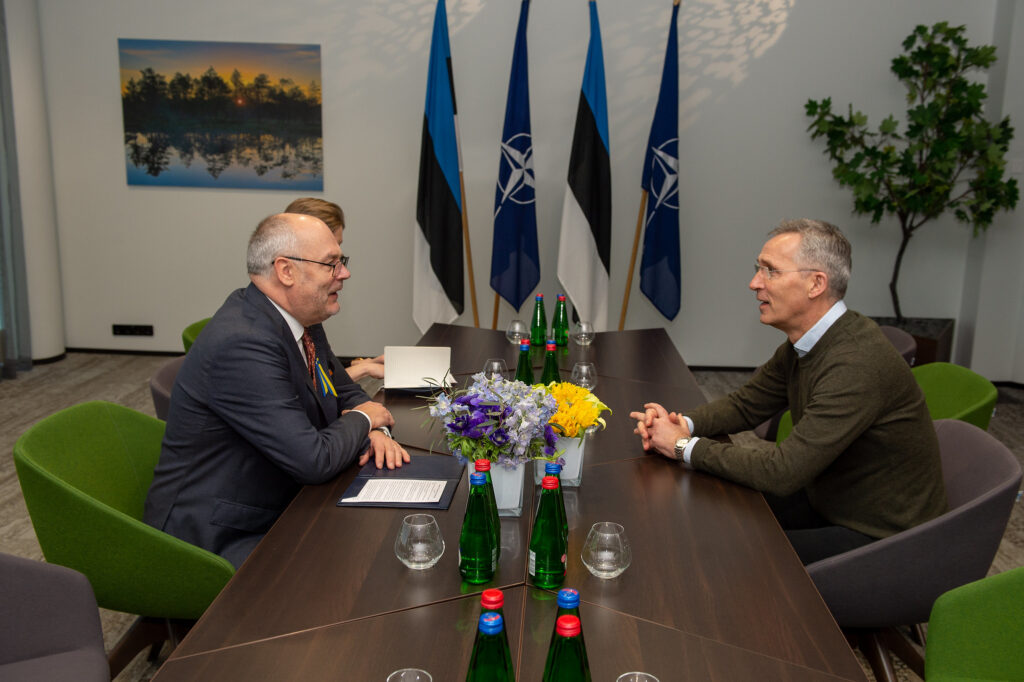
2 March 2022 – The University of Tartu establishes a scholarship fund to support Ukrainian students
Estonia’s University of Tartu has established a scholarship fund to collect and channel donations to support the studies of Ukrainian students at the university. The maximum amount of one scholarship is €2,000. Currently, 146 Ukrainian citizens study or work at the University of Tartu.
2 March 2022 – “Art Against War” fundraiser to take place in Tallinn
Organised by the local and international creative community, a fundraiser to support Ukraine is taking place at Fotografiska Tallinn on 2 March at 7 PM Estonian time.
The organisers said many Estonian artists and designers had donated their work. The auction will showcase paintings, fashion and more. The aim is to raise money for Ukraine’s “The Return Alive Foundation”. People can also join the auction online.
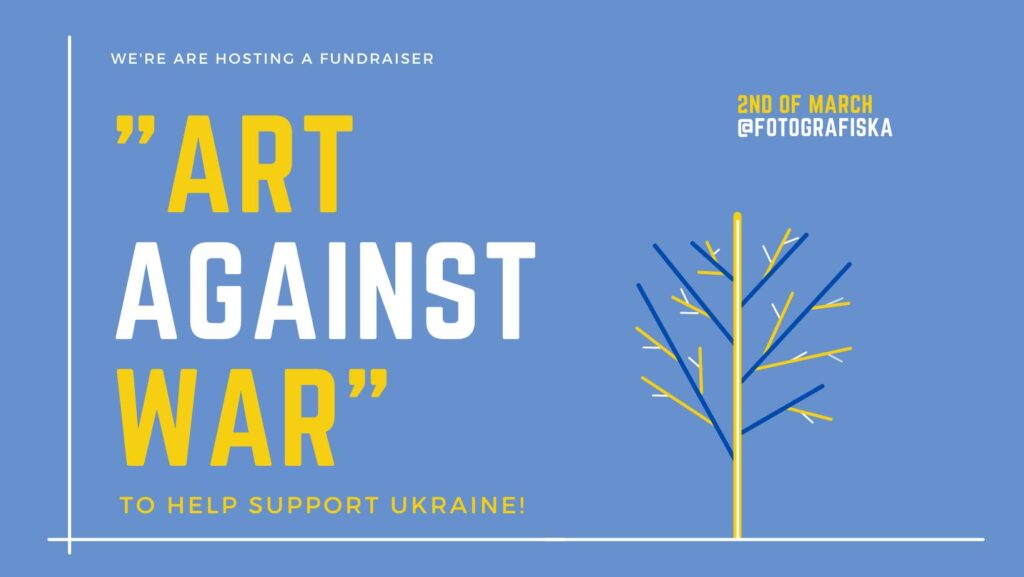
1 March 2022 – PM Kallas to VP Harris: more efforts to isolate Russia
The Estonian prime minister, Kaja Kallas, today talked on the phone with the US vice president, Kamala Harris, and she told the VP that they needed to continue their mutual efforts to deepen Russia’s political and economic isolation.
“Russia must pay a high price for the aggression. The pressure from the democratic world against the regime of [Russian president Vladimir] Putin has to grow. And we can’t forget the responsibility of Belarus – the sanctions must apply to it, too,” Kallas said, according to Postimees.
After the meeting with the UK prime minister, Boris Johnson, Kallas said Russia had become “a pariah state and must be treated accordingly”. “Our shared goal is the economic and political isolation of Putin’s regime,” she noted.
1 March 2022 – Ukrainian MPs ask their Estonian colleagues to support a no-fly zone
Oleksandr Merezhko and Mariia Ionova, two Ukrainian parliament members, today held a video meeting with their Estonian colleagues of the foreign affairs committee of the Estonian parliament. The Ukrainian MPs said Ukraine needed the support of the countries of the European Union, NATO and the United Nations in order to close the airspace above the larger cities of Ukraine and asked for the diplomatic support of all countries to achieve that, the Estonian parliament’s press release said.
According to Merezhko and Ionova, the Russian army had surrounded several cities, such as Kharkiv, Sumy, Chernihiv, Kherson, Mariupol, and had started “indiscriminate bombing” of residential areas. “People are on the streets and shout at the soldiers that these are their streets, this is their city, go away,” Ionova told the Estonian MPs. The Ukrainian MPs added it “would be impossible” for Putin to come to power in Ukraine because the “Ukrainian people are full of fighting spirit, and it would take millions of Russian troops to gain permanent control over Ukraine”.
The Ukrainian parliamentarians asked to insert influence on the Red Cross and the OSCE to provide security and help evacuate children and women from the cities. Presently, the Red Cross has refused to work in the regions that are being bombed. Getting medicines and humanitarian aid to the cities where they are needed is of critical importance. There are supplies in the western part of Ukraine, but they cannot be delivered.
The Ukrainian MPs also said Russia was blackmailing Europe with the threat of damage to nuclear power plants.
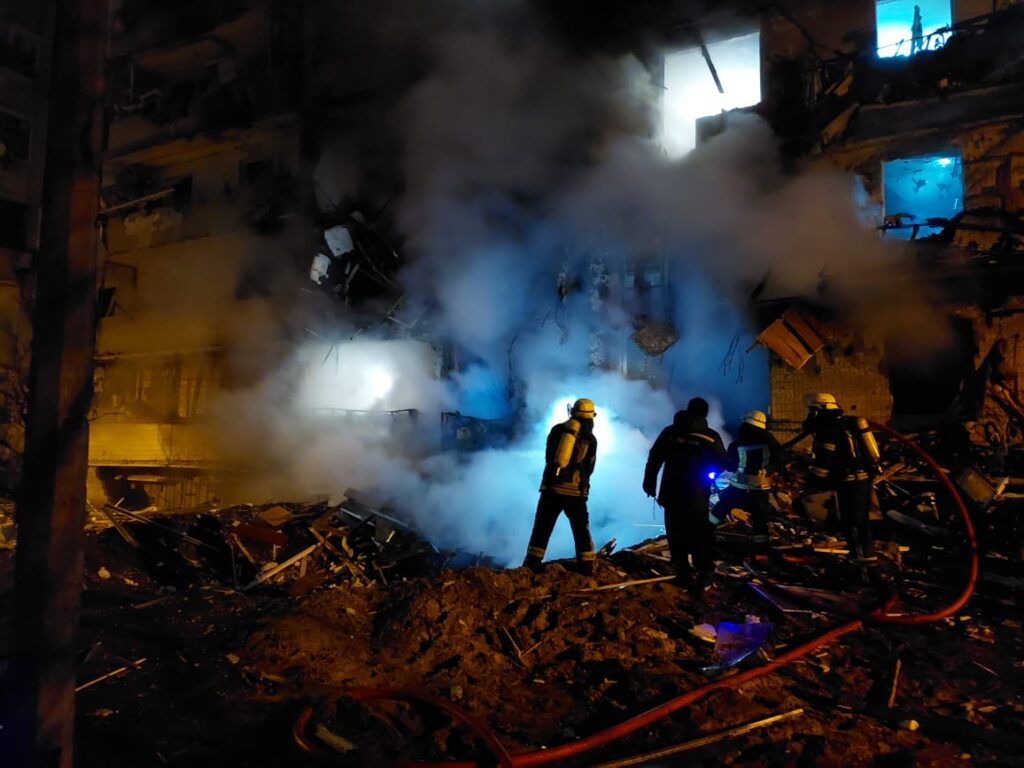
1 March 2022 – Estonia-Russia parliamentary friendship group ceases its activities
The Estonia-Russia parliamentary group in the Estonian parliament, Riigikogu, decided today to terminate its activities due to the Russian invasion of Ukraine.
“In the situation where members of the State Duma of the Russian Federation voted in favour of the Russian-Ukrainian war and the violation of the territorial integrity of the sovereign Ukrainian state, it is unfortunately not possible to continue parliamentary cooperation with them,” the chairman of the parliamentary friendship group, Aadu Must, said. “They bear the heavy co-responsibility for launching a bloody war.”
1 March 2022 – Estonia allocates €1.3 million to cover critical costs of Ukrainian refugees in Estonia
The Estonian government today decided to allocate €1.3 million to cover initial arrangements in taking in Ukrainian refugees. Approximately hundred refugees from Ukraine arrived in Estonia on Monday, with more due to arrive in coming days.
The government also decided that Ukrainian citizens, their spouses and direct dependents of all ages will not be subject to the COVID-19 restrictions put in place for those crossing the border, including the requirement to present a COVID certificate. In addition to spouses and dependents, the Police and Border Guard Board may allow others, such as partners, into Estonia from Ukraine on humanitarian grounds to keep families together.
1 March 2022 – At a press conference in Estonia, Boris Johnson rules out a no-fly zone over Ukraine
Boris Johnson, the British prime minister, said at a press conference in Estonia’s Tapa military base this afternoon that the UK will not send troops to Ukraine, nor supports its volunteers going to fight in Ukraine. He also ruled out on imposing a no-fly zone over Ukraine, saying it’s not on the agenda on any NATO member state, as it would mean a “direct confrontation” with Russia.
Johnson noted that removing Russia from among the permanent members of the UN Security Council is equally impossible, as all the member states – the US, the UK, France, China and Russia – have a right to veto any decision. Britain’s prime minister also said the UK would increase its presence in eastern and central Europe. “There will be more NATO, not less,” he stated.
The NATO secretary general, Jens Stoltenberg, and the prime minister of the UK, Boris Johnson, visit Poland and Estonia today. Estonian World broadcasted the press conference from Tapa military base in Estonia.
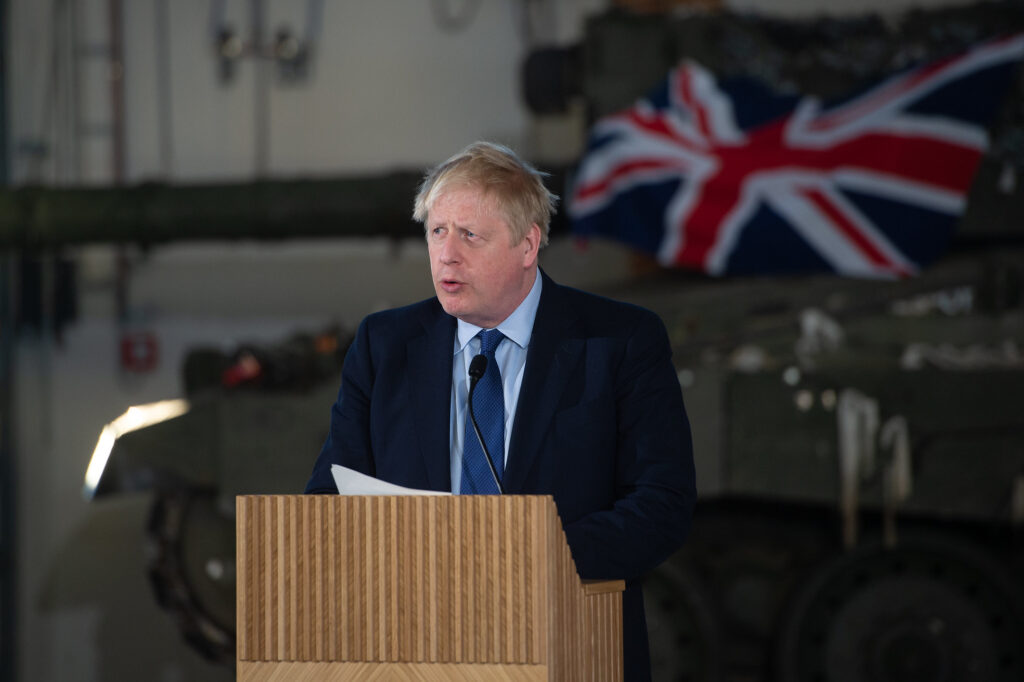
1 March 2022 – Bolt to donate €5 million to Ukraine, stop operating in Belarus
The Estonian-founded rideshare and delivery company, Bolt, will donate €5 million to Ukraine and stop all operations in Belarus that is engaged in the Russian invasion of Ukraine. “The people in eastern Europe understand the value of freedom too well. We can’t accept empty social media posts, we need real action,” Bolt’s CEO, Martin Villig, said.
The company will also remove all Russia-produced goods or goods tied to Russian companies from its Bolt Market.
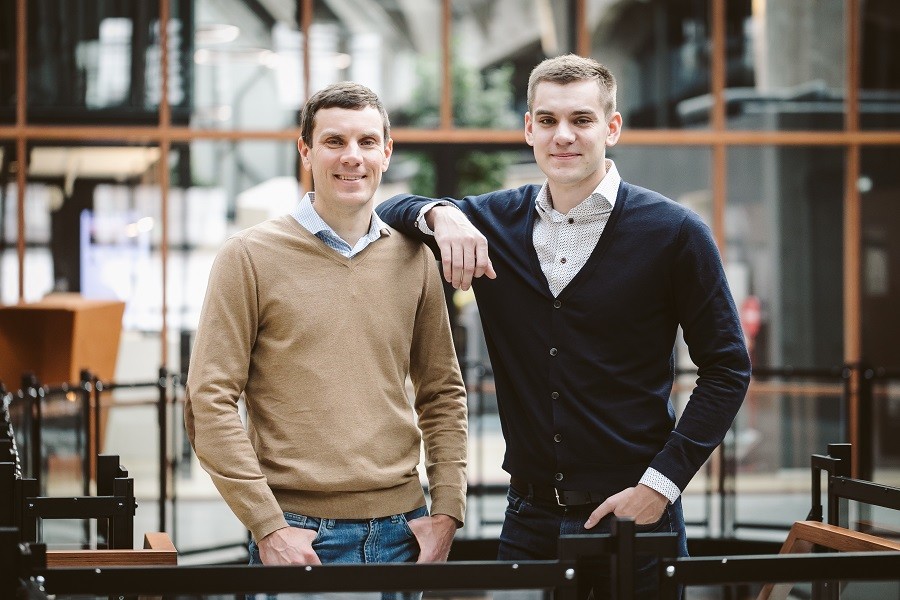
For February updates, please click on page 3 below the social icons.

